Potential ICC arrest warrants to Israel, resignation of Scottish First Minister, and Australian Prime Minister in attendance of Ahmadi martyr’s
This week has been a roller-coaster ride on a global scale – Scottish First Minister Humza Yousaf resigned just over a year after making history (due to his Muslim identity), and attempts have been (and are being) made by the International Criminal Court to finally hold Israel to account for the merciless war crimes carried out against Palestine. There was a sliver of good news too – Australian Prime Minister Anthony Albanese attended the funeral of national hero and martyr Faraz Ahmad Tahir, who tragically lost his life while defending others in a vicious knife attack.
funeral











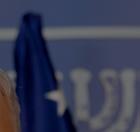
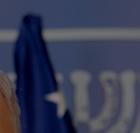












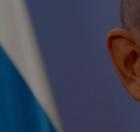

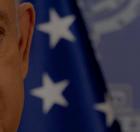

Tensions between the International Criminal Court (ICC) and Israel have escalated this week, with multiple reports suggesting the court may soon issue unprecedented arrest warrants for senior government and military officials, including Prime Minister Benjamin Netanyahu and Defence Minister Yoav Gallant. Why? Due to the horrific war crimes against Palestine. Netanyahu said ICC decisions would “set a dangerous precedent” threatening all democracies fighting ‘terrorism’, and commented: “Under my leadership, Israel will never accept any attempt by the ICC to undermine its inherent right of selfdefence”. The US has clearly condemned the ICC arrest warrants, with White House spokesperson saying, “We’ve been really clear about the ICC investigation. We do not support it”.







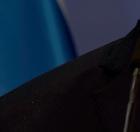
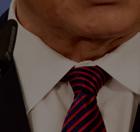












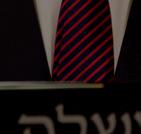

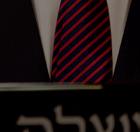





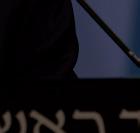

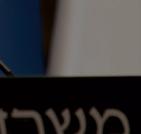

Any arrest warrants issued would serve




as a major moral rebuke and blow to Israel at a time when pro-Palestine support is growing rapidly around the world. The narrative is slowly shifting with the rise of
Ahmadiyya Archive & Research Centre (ARC), 22 Deer Park Road, London, SW19 3TL, UK info@alhakam.org | ISSN 2754-7396 THE WEEKLY www.alhakam.org A AL HAKAM | Friday 3 May 2024 | Issue CCCXX ICC arrest warrants: A test for justice or a clash of power and principles? Page 3 Divine discourse: Continuation of revelation and visions Page 9 Page 5 From past to present: The unending global migration crisis Page 8 ‘Faraz Tahir died a national hero’: Australian Prime Minister attends funeral of martyr Arrest warrants, confusion & political chaos: All in one week! Continued on next page >>
���ا ﻰﻠﺻ ��ﻨﻟا ﺮ�ذ ���ا ﺪﺒﻋ لﺎﻗ سﺎﻨﻟا ىﺮ�ﻇ ��ﺑ ﺎﻣﻮﻳ ﻢﻠﺳو ﻪﻴﻠ� ���ا نإ :لﺎﻘﻓ ،لﺎﺟﺪﻟا ��ﺴﻤﻟا لﺎﺟﺪﻟا ��ﺴﻤﻟا نإ ��أ ،رﻮﻋﺄﺑ ﺲ�ﻟ ﻪﻨﻴﻋ نﺄ� ،ﻰﻨﻤﻴﻟا ��ﻌﻟا رﻮﻋأ ﺪﻨﻋ ﺔﻠﻴﻠﻟا ��ارأو .ﺔﻴﻓﺎﻃ ﺔﺒﻨﻋ مدآ ﻞﺟر اذﺈﻓ ،مﺎﻨﻤﻟا �� ﺔﺒﻌ��ا ،لﺎﺟ��ا مدأ ﻦﻣ ىﺮﻳ ﺎﻣ ﻦﺴﺣﺄ� ﻞﺟر ،ﻪﻴﺒﻜﻨ� ��ﺑ ﻪﺘﻤﻟ ب��ﺗ ﻪﻳﺪﻳ ﺎﻌﺿاو ،ءﺎﻣ ﻪﺳأر ﺮﻄﻘﻳ ،��ﺸﻟا فﻮﻄﻳ ﻮﻫو ��ﻠﺟر ﻰﺒﻜﻨ� ﻰﻠ� اﺬﻫ اﻮﻟﺎﻘﻓ اﺬﻫ ﻦﻣ ﺖﻠﻘﻓ ﺖﻴﺒﻟﺎﺑ ��ﺟر ﺖﻳأر ﻢﺛ .ﻢﻳ�� ﻦﺑا ��ﺴﻤﻟا ��ﻋ رﻮﻋأ ﺎﻄﻄﻗ اﺪﻌﺟ هءارو ،ﻦﻄﻗ ﻦﺑﺎﺑ ﺖﻳأر ﻦﻣ ﻪﺒﺷﺄ� ﻰﻨﻤﻴﻟا ،ﻞﺟر ﻰﺒﻜﻨ� ﻰﻠ� ﻪﻳﺪﻳ ﺎﻌﺿاو اﻮﻟﺎﻗ اﺬﻫ ﻦﻣ ﺖﻠﻘﻓ ،ﺖﻴﺒﻟﺎﺑ فﻮﻄﻳ .لﺎﺟﺪﻟا��ﺴﻤﻟا
Hadith-e-Rasul – Sayings of the Holy Prophet Muhammadsa
Characteristics of the Messiah
Continued on next page >>
<< Continued from previous page
It is narrated by Hazrat Abdullahra that the Prophetsa mentioned one day in the presence of the people: “Allah is not one-eyed. However, the false Messiah, ad-Dajjal, is blind in his right eye, which appears like a protruding grape. Last night, I dreamt I was near the Ka‘bah where I saw a man whose complexion was brown, the finest one might see among such complexions. His hair was long, extending down to his shoulders, damp with water, as he placed his hands on the shoulders of two men while circumambulating the Ka‘bah. I enquired, ‘Who is this?’ They replied, ‘This is Jesus, son of Mary.’ Following him, I saw a man with very curly hair, blind in the right eye, resembling Ibn Qatan in appearance. He was placing his hands on the shoulders of a man as he too performed tawaf around the Ka‘bah. I asked, ‘Who is this?’ They answered, ‘The Masih ad-Dajjal.’” (Sahih al-Bukhari, Kitab ahadithi al-anbiya, Bab wa-dhkur fi l-kitabi maryama idh intabathat min ahliha, Hadith 3439)
Hazrat Mirza Ghulam Ahmadas, In His Own Words
Iztirar in prayer
“The effectiveness of prayer in being accepted emerges when it reaches a state of extreme anguish and fervour [iztirar]. Once this profound iztirar is established, signs and means of its acceptance begin to manifest from Allah the Almighty. First, preparations are made in the heavens, and thereafter, they reveal their effects on earth. This is no minor matter but a grand reality; indeed, the truth is that anyone who wishes to witness divine manifestations should engage in prayer.” (Al Hakam, Vol. 8, Bo. 13, 24 April 1904, p. 6)
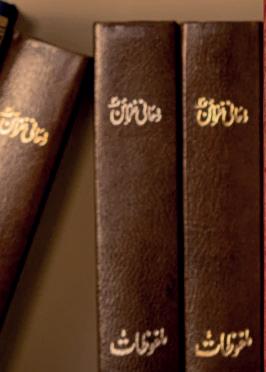
Dire state of the world, continuous need for prayers, and an Australian martyr
During his Friday Sermon, delivered on 26 April 2024, Hazrat Mirza Masroor Ahmad, Khalifatul Masih Vaa said:
“Continue to pray for the state of the world. May Allah Almighty protect every Ahmadi from all kinds of evil [Amin].”
Following this, Huzooraa spoke of the late Faraz Ahmad Tahir Sahib, who was recently martyred in Australia while fearlessly saving the lives of people. Huzooraa said that Faraz Ahmad Tahir Sahib is being hailed by many as a national hero of Australia. While mentioning him, Huzooraa further stated: “His sacrifice shows that he did not leave Pakistan out of fear of death, but rather due to the religious restrictions imposed on Ahmadis, which made him leave a country where [Ahmadis] are prevented from uttering the name of Allah and His Messengersa.”
<< Continued from previous page
free speech on social media which is offering unbiased unfiltered on-the-ground footage to viewers across the world. Warrants by the ICC could energise the movement criticising Israel’s military actions and result in increased support for Palestine and the opposite for Israel.
Closer to home, the political landscape of Scotland took a sudden turn with the resignation of First Minister Humza Yousaf ahead of two no-confidence votes. Yousaf, who made history just over a year ago as Scotland’s youngest elected leader and the first Muslim leader of a major UK political party, stepped down as he said he was “not willing to trade [his] values and principles or do deals with whomever simply for retaining power”.
His departure came as his party, the Scottish National Party (SNP), faced two potential no-confidence votes in the Scottish Parliament just days after he ended a power-sharing agreement with the proindependence Scottish Green Party. This move infuriated Green Party leaders, who signalled they would support removing Yousaf as First Minister in the looming no-confidence votes. With the backing of the Greens, Yousaf’s minority SNP government would have likely fallen. By his own admission, the First Minister had “clearly underestimated” the damage his decision would cause. Among the potential candidates to succeed Yousaf are veteran SNP members like John Swinney (who previously served as party leader in the early 2000’s), Alex Salmond and Kate Forbes.
On a lighter note, Hamza Yousaf left those disappointed who wished to see a British Prime Minister of Indian origin and Scottish First Minister of Pakistani origin
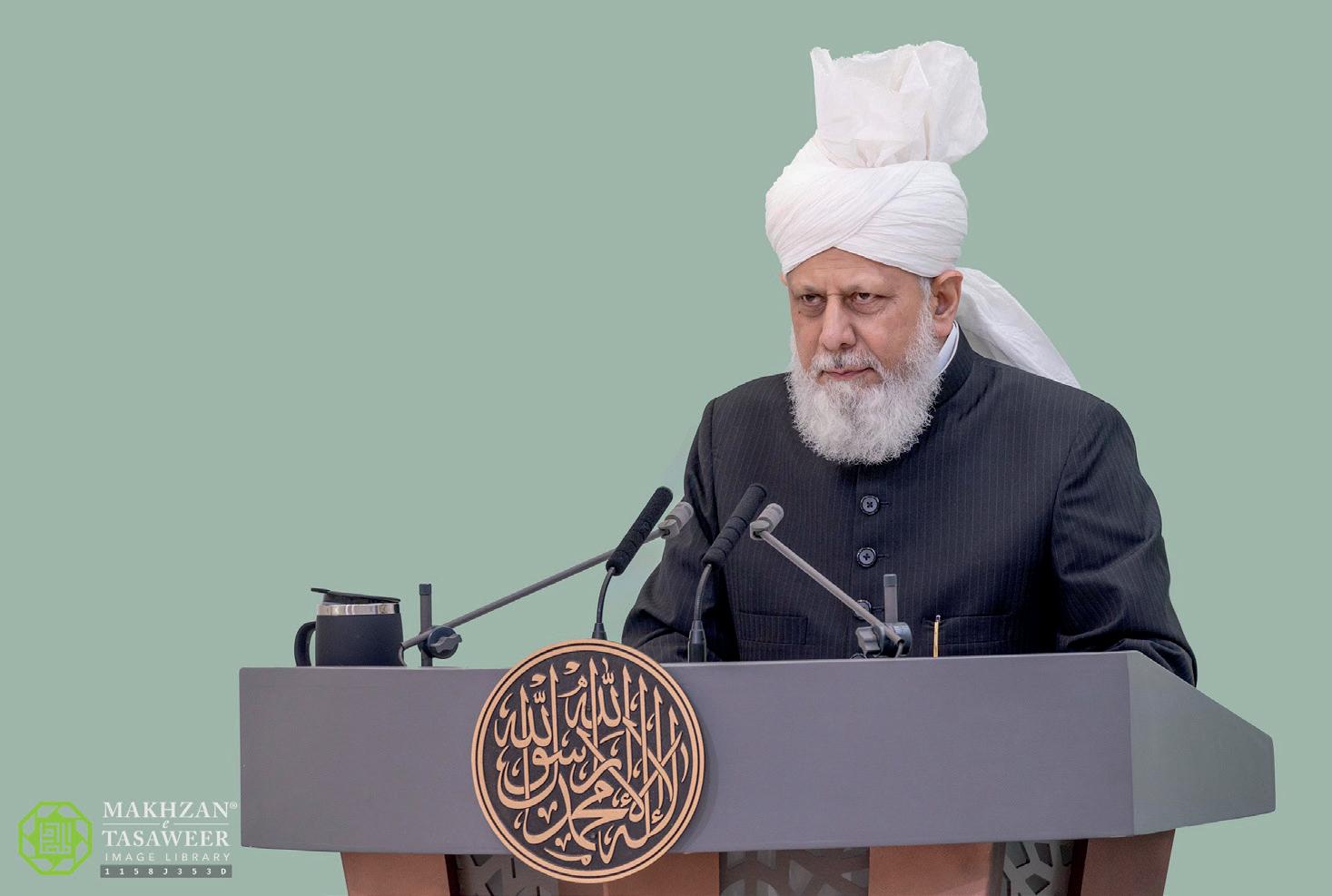
decide the fate of the United Kingdom. All whilst conflict and tensions flared, the world also recently witnessed a shining example of courage and selfless sacrifice.
Faraz Ahmad Tahir, a refugee Ahmadi Muslim working as a security guard in Sydney, Australia, tragically lost his life while attempting to protect others in a knife attack at a busy shopping centre. His funeral took place this week – Prime Minister Anthony Albanese personally attended and paid tribute to Tahir, stating “Without question, Faraz Tahir died a national hero.”
The Ahmadiyya Muslim Community Australia has chosen to honour Tahir’s profound legacy by launching “Faraz’s Gift,” a national blood donation campaign aimed at aiding their fellow Australians in times of need.
In what is the greatest tribute of all, Hazrat Mirza Masroor Ahmadaa, Khalifatul Masih V, the Worldwide Head of the Ahmadiyya Muslim Community, highlighted Faraz Ahmad Tahir’s indomitable spirit and principled sacrifice in last week’s Friday Sermon delivered (26 April 2024). Huzooraa recognised Faraz as a shining example of faith and bravery under adversity, saying, “His sacrifice shows that he did not leave Pakistan out of fear of death, but rather due to the religious restrictions imposed on Ahmadis, which made him leave a country where [Ahmadis] are prevented from uttering the name of Allah and His Messengersa.” Furthermore, Huzooraa led his funeral prayer in absentia.

Friday 3 May 2024 | AL HAKAM 2
Photo courtesy of Suhaib Ahmad
The premises of the International Criminal Court in The Hague, Netherlands. The ICC moved into this building in December 2015 | Wiki Commons
ICC arrest warrants: A test for justice or a clash of power and principles?
Dr Afzal Ashraf International Security Specialist, UK
The conflict in Gaza appears to be the most asymmetric conflict in the recent history of warfare. It is a war between a state with an army and powerful international backing against a non-state people without an army and without powerful international backers. Given this situation, moves for a peaceful outcome in Gaza are being spearheaded by poor and weak countries who look to the International Court of Justice for a solution, at least in principle.
Unusually for its relatively short history, the Chief Prosecutor of the International Criminal Court (ICC) intervened at the outset of the conflict with warnings to all parties of the importance of adhering to humanitarian principles as enshrined in international law, particularly the laws of war. It could be said that this is a war between power and principles.
As the world awaits the possible issue of arrest warrants for those involved in this horrendous conflict, it is worth looking at the factors that led to the establishment of the ICC and considering the likely outcomes of any actions it takes. By doing so a fascinating link emerges between modernity, power, war and inhumanity of leadership on the one side and the innate humanity, shared values and empathy of ordinary people on the other. At the heart of these issues are two of the mission aims of the Promised Reformeras of the age: to reconnect man with God and to put an end to war. (Lecture Lahore, p. 42; Sahih alBukhari, Hadith 3448)
Background to the ICC
The International Criminal Court (ICC) was established as a permanent tribunal to prosecute individuals for genocide, crimes against humanity, war crimes, and the crime of aggression. It was established by the Rome Statute, which entered into force on 1 July 2002 in The Hague, Netherlands. The roots of the ideas of an ICC go back to the aftermath of World War I with calls for an international justice mechanism. The Treaty of Versailles in 1919 proposed the establishment of a special tribunal to try the German Emperor Wilhelm II for “a supreme offence against international morality and the sanctity of treaties.” This proposal failed due to a lack of international consensus based on the political beliefs of the time which created difficulties for establishing an international court in a world dominated by notions of absolute sovereignty and the traditional rights of states. (Bassiouni, M. Cherif, “A Draft International Criminal Code and Draft Statute for an International
Criminal Tribunal,” Revue Internationale de Droit Pénal 58, no. 3-4 (1987): 355-533)
These ideas of power relate to what political philosophers call realism, the belief that the world is in a “state of nature” and, like the jungle, nations must maximise their power to survive. (Articulated by Thomas Hobbs as being characterised by the “‘war of every man against every man,’ a constant and violent condition of competition in which each individual has a natural right to everything, regardless of the interests of others.” See Munro, André, “State of Nature”. Encyclopedia Britannica, 28 Mar. 2024, www.britannica.com/topic/state-ofnature-political-theory, Accessed 29 April 2024.) A world in which power is paramount and war is inevitable. However, modern warfare was proving to be destructive and costly and so a mechanism had to be found to mitigate the likelihood of war.
The League of Nations was one of the international institutions designed to increase the chances of peace and reduce the likelihood of war. It was the first of what are called liberal institutions where collective principles are supposedly given prominence over individual power interests. However, the League failed because realist power interests were in actuality given prominence over equality of justice.
The horrors of World War II marked a significant advancement in the pursuit of international justice with the establishment of the Nuremberg and Tokyo Tribunals to prosecute Axis war criminals. These tribunals helped establish precedents in international law, such as the definitions of genocide, crimes against humanity, and war crimes. The Nuremberg Trials were heralded for their procedural fairness and emphasis on individual accountability, principles which deeply influenced the later structure of the ICC. However, these tribunals were also criticised for their victor’s justice approach, whereby only the defeated nations were prosecuted. (Taylor, Telford, The Anatomy of the Nuremberg Trials: A Personal Memoir, Knopf Doubleday Publishing Group, 1992)
The Nuremberg and Tokyo Tribunals initially generated momentum for a permanent international criminal court, but the onset of the Cold War stymied these efforts. It was not until the 1990s, with the end of the Cold War and the genocides in Rwanda and the former Yugoslavia, that the international community seriously revisited the idea. The ad hoc tribunals established for these latter conflicts demonstrated the need for a standing body to address such crimes continuously rather than on a caseby-case basis. This led to the adoption of the Rome Statute in 1998, establishing the ICC. (Schabas, William A, The International
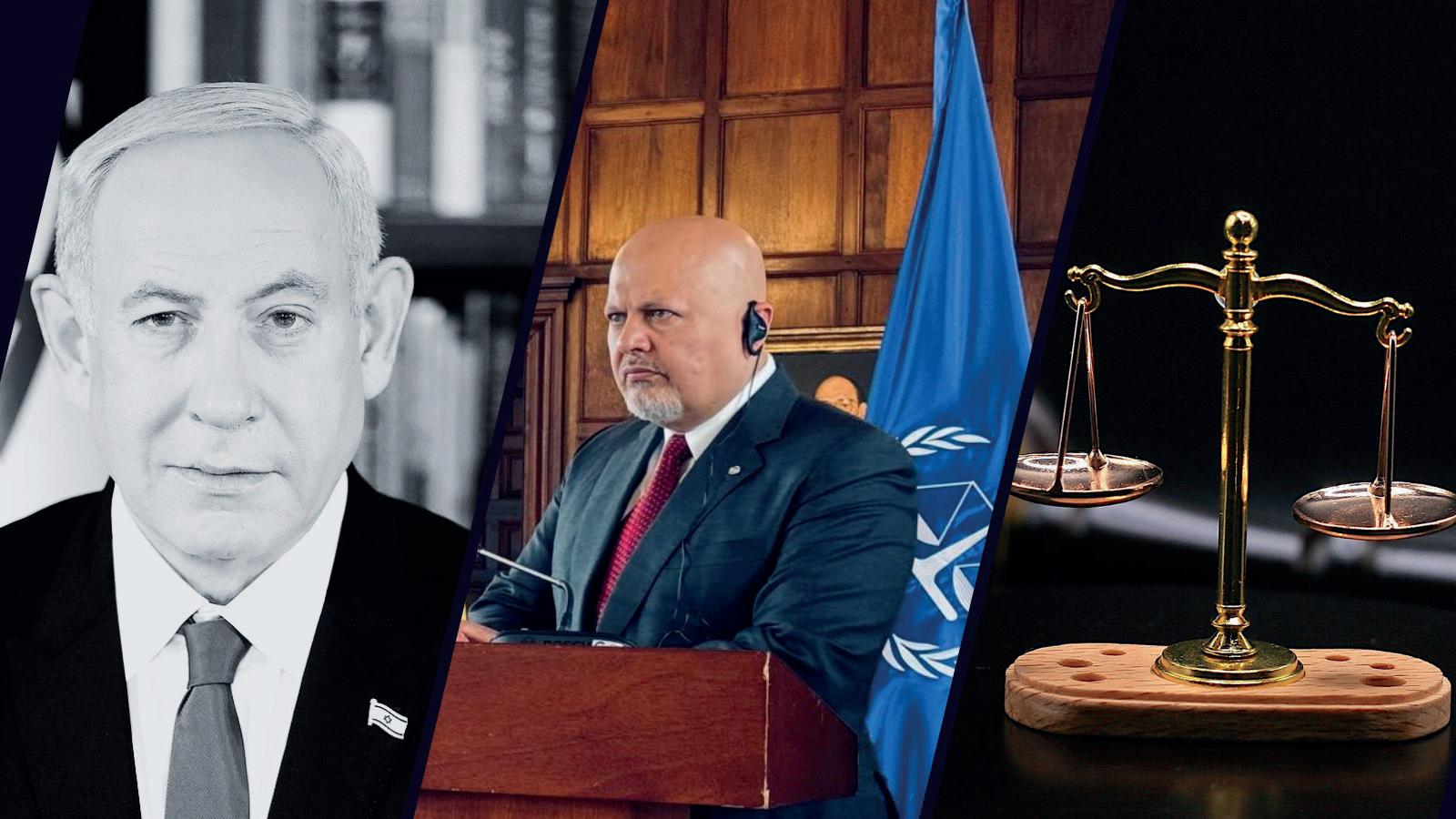
Criminal Court: A Commentary on the Rome Statute, Oxford University Press, 2010)
Since its formation, political debate has often centred around concerns of national sovereignty and the potential for misuse of power by the ICC against national interests, particularly among major powers like the U.S., China, and Russia. (Schiff, Benjamin N, Building the International Criminal Court, Cambridge University Press, 2008)
Ethically, the argument for the ICC was framed around the need for justice for victims of grave crimes, where local systems may fail. Advocates for the court argued that it would serve as a deterrent against future atrocities. Critics, however, worried about the potential for political manipulation and the implications for national judicial autonomy. (Bosco, David, Rough Justice: The International Criminal Court in a World of Power Politics, Oxford University Press, 2014)
Consequently, the establishment of the ICC involved extensive legal deliberations over its jurisdiction and the principle of complementarity, which ensures that the ICC acts only when national jurisdictions are unable or unwilling to prosecute. The legal framework had to carefully define the scope of crimes like genocide, war crimes, and crimes against humanity, with the crime of aggression being particularly contentious. (Akhavan, Payam, The International Criminal Court in Context: Politics and the Struggle for Justice, Harvard International Law Journal, 2009)
At a fundamental level, the ICC, along with other liberal international institutions, is a response to the horrors of realism and its inevitable wars. The UN represents a more cooperative approach than the failed League of Nations, which it replaced, but it too is dominated by power interests through the UN Security Council and the exercise of the veto. Apart from using the UN, the ICC and other international
organisations to support and supplement their power interests, major powers need these institutions to give credibility to their policies, especially those associated with conflict and war. This is especially true of Western liberal democracies whose internal policies are based on liberal principles of equality under the law. For example, the US Constitution declares that “all men are created equal, that they are endowed by their Creator with certain unalienable Rights, that among these are Life, Liberty and the pursuit of Happiness.”
The roots of these principles of equality, rights and obligations are explained in Sir Zafarulla Khan’sra 1967 book on Islam and the International Declaration of Human Rights. It asserts that the compatibility of the Declaration and Islam reflects the belief that all religions derive from the same Divine source. Similarly, the capacity for human philosophical reasoning is also viewed as an innate, divinely inspired quality. Consequently, religious teachings and nonreligious philosophical reasoning converge on common basic moral principles which most humans hold to be self-evident truths.
Western leaders have, therefore, to present their self-interest power policies in terms of legally legitimate purposes and to delegitimise their opponents as acting in the interest of power outside the ‘rules-based order’ or the law. This is precisely what the German Chancellor, Olaf Shultz, did on 27 February 2022, following the Russian invasion of Ukraine. He said:
“We are living through a watershed era. And that means that the world afterwards will no longer be the same as the world before. The issue at the heart of this is whether power is allowed to prevail over the law.” (“Germany to meet 2% NATO spending threshold next year, Scholz announces”, www.euronews.com)
3 AL HAKAM | Friday 3 May 2024
Continued on next page >>
Image: Library
<< Continued from previous page Ossetian and Russian forces. In June 2022, the ICC issued arrest warrants for three South Ossetian officials who were charged with multiple war crimes, including unlawful confinement, torture, and the forcible transfer of ethnic Georgian civilians. This case further illustrates both the reactive nature of the ICC and the length of time it can take between a crime and trial, let alone conviction.
The close proximity of the Ukraine and Gaza wars has presented Western powers with narrative manipulation challenges that have exposed what many refer to as double standards. These emerge most significantly in how politicians frame the laws of war differently in both conflicts because of their different power interests in each conflict. Their narratives often clash with public perceptions, particularly of the idealist younger generations, which are driven by their innate beliefs in equality.
ICC’s performance
The ICC aims to ensure that grave international crimes do not go unpunished and to promote international justice and the rule of law, with objectives to deter future war crimes, crimes against humanity and genocide by holding leaders accountable and to provide justice to victims. The ICC’s success is perceived differently by various stakeholders. It has been praised for bringing several high-profile perpetrators to justice and for promoting international legal norms. However, it has also faced criticism for its limited number of convictions, long trial durations and for being disproportionately focused on African states.
For example, Thomas Lubanga, of the Democratic Republic of Congo, was the first person convicted by the ICC in 2012. He was found guilty of conscripting and enlisting children and using them to participate in hostilities. This case was seen as a success and set a precedent for addressing grave violations against children in conflict zones. Other African cases have not been so successful. Significant challenges were faced in prosecuting Kenyan officials accused of inciting postelection violence in 2007-2008. Cases against Uhuru Kenyatta, William Ruto, and others eventually collapsed due to a lack of evidence and alleged witness tampering, highlighting issues of political interference and the difficulty in securing reliable witness testimony. (Clark, Phil, Distant Justice: The Impact of the International Criminal Court on African Politics, Cambridge University Press, 2018)
Omar al-Bashir, the former President of Sudan, was indicted for crimes against humanity, war crimes, and genocide in Darfur. Significantly, he was the first sitting president to be issued an arrest warrant by the ICC. However, enforcement of the arrest warrant has been unsuccessful, demonstrating the challenges the ICC faces in exerting its authority over noncooperative member states. (Kersten, Mark, Justice in Conflict: The Effects of the International Criminal Court’s Interventions on Ending Wars and Building Peace, Oxford University Press, 2016)
Cases involving non-African states are beginning to emerge. The ICC authorised an initial investigation into alleged crimes committed during the 2008 Russo-Georgian War shortly after the war. That initial investigation found sufficient evidence in 2016 to trigger a full investigation into allegations including attacks against civilian populations, murder, forcible transfer of population and persecution. These allegations encompassed all sides of the conflict implicating Georgian, South
Success, failure and limitations of prosecutions
The Lubanga case is a prime example where the ICC effectively used its mandate to address grave injustices. However, the ICC’s failures are typically marked by insufficient availability of evidence, witness tampering and lack of cooperation from local governments, as seen in the Kenyan cases and the ongoing challenges with arresting Omar al-Bashir.
Overall, the ICC’s effectiveness is influenced by the international community’s political will to support its mandates and the cooperation of states where the ICC seeks to operate. The mixed outcomes of its cases reflect the complex interplay between international law, state sovereignty, and global politics. These issues are particularly significant because the ICC lacks its own police force to arrest suspects, relying instead on member states to enforce its arrest warrants, which can be problematic if states are unwilling or unable to comply.
In practice, the Court is proving less limited by its jurisdiction. This is limited to crimes committed on the territory of a state party to the Rome Statute or by its nationals unless a situation is referred by the UN Security Council. Although, some major countries, including the United States, China, and Russia, are not party to the Rome Statute, on 17 March 2023 the ICC issued arrest warrants for Russian President Vladimir Putin and Maria Lvova-Belova, the Commissioner for Children’s Rights in the President’s office. The charges include the unlawful deportation of children and the unlawful transfer of population from occupied areas of Ukraine to the Russian Federation. These acts are alleged to constitute war crimes under articles 8(2)(a)(vii) and 8(2)(b)(viii) of the Rome Statute. The warrants mark a significant step as President Putin is one of the highestranking officials and the first leader of a permanent member of the U.N. Security Council to be indicted by the ICC for such crimes. It is unknown to what extent, if any, Western states were involved in influencing the ICC’s decision to investigate and issue warrants for Russian officials. It is certain that they were involved in facilitating the investigation which was partly conducted on Ukrainian territory during the war.
ICC and the current conflict
Another evolution in the ICC’s modus operandi emerged at the start of the war in Gaza. The office of the Chief Prosecutor, Karim Khan, issued several public statements calling on all sides for restraint and compliance with internal laws. This appears to be the first occasion when the ICC has proactively moved to avoid legal violations in a conflict rather than reactively after crimes have been committed.
However, this move, which came after the atrocities committed by Hamas and others on 7 October 2023, appears to have had no effect on reducing human suffering. Instead, it has been suggested by some observers that the early interventions by the office of the Chief Prosecutor may have inadvertently raised public expectations. This heightened anticipation appears to have led to some disappointment and even criticism regarding the effectiveness of the office’s approach.
In recent days, reports suggest that the ICC will issue warrants against Israeli officials (presumably also against Hamas leaders). These reports have been followed by statements from Israeli Prime Minister Netanyahu in Hebrew and English on social media stating, “While decisions made by the court in the Hague will not affect Israel’s actions, they will set a dangerous precedent that threatens soldiers and public figures.” (“Netanyahu says ICC decisions will not affect Israel’s actions, set dangerous precedent”, www.reuters.com) Subsequently, reports suggest that President Biden is involved in diplomatic actions to prevent the issuing of the expected warrants. (“Israel, US said working to prevent ICC arrest warrant against Netanyahu”, www. timesofisrael.com)
Regardless of the accuracy of these claims, two things are evident. Firstly, if no warrants are issued as expected, the ICC will come under severe criticism for buckling under pressure and this will lead to a loss of credibility of both the Court and the office of the Prosecutor.
Secondly, and most significantly, the mere possibility of arrest warrants appears to have had a worrying impact on Israel and its supporters who style themselves as liberal democracies. Their domestic narrative, which justifies their foreign policies often resulting in gross violence and huge amounts of human suffering, is predicated on the belief in moral, ethical and legal superiority. Any prosecution will weaken the already declining public and international support these governments enjoy. It is conceivable that these warrants targeting Israeli and likely Hamas leadership may empower the already vibrant opposition in that country as well as anti-war movements in the USA and Europe and among the Palestinian people leading to a radical change of policy and approach to the Palestine issue. Therefore, the ICC’s greatest and most positive impact may occur in the court of public opinion, long before any ICC trial ever takes place.
Justice and law vs justice and love
While Western Liberal values acknowledge their origins in Judeo-Christian teachings, they are increasingly understood and applied in a secular form. For example, the presumption that “all men are created equal, that they are endowed by their Creator with certain unalienable Rights” is ignored in favour of the phrase that precedes it “We hold these truths to be self-evident.” For the leadership, at least, any situation which threatens their power is perceived as a selfevident existential threat. Such situations, they argue, call for ‘exceptional’ measures which mean the suspension of normal values and laws. For example, ‘American exceptionalism’ is the idea that the United States of America is a unique and even
morally superior country for historical, ideological, or religious reasons. (See Encyclopaedia Britannica www.britannica. com/topic/American-exceptionalism) The possession and declared use of nuclear weapons, which intentionally contradict international humanitarian and armed conflict law, is a case in point. Similarly, many believe that a threat to the security of Israel is an existential threat and requires exceptional measures to eradicate it by all means possible.
Chancellor Shultz is right when he says that, “We are living through a watershed era. And that means that the world afterwards will no longer be the same as the world before.” (“Germany to meet 2% NATO spending threshold next year, Scholz announces”, www.euronews.com) The conflict between Realism and Liberalism is a conflict between fear and faith. Shapers of Realist thinking acknowledge that fear is the driving emotion for realists. Thomas Hobbes believed fear drove the creation of social institutions; Machiavelli wrote that it was better for a leader to be ‘feared than loved’ because the ‘dread of punishment’ never fails; and ancient Greek writer, Thucydides wrote ‘prestige, fear, and self-interest’ motivate political decisions. Realism, therefore, promotes a parochial and selfish worldview, which is driven by the fear of temporal loss. These drive a love for self and hatred for the other.
Conversely, scriptures tell us that faith demands an inclusive and self-sacrificial approach motivated by the creative power of love. In the Holy Bible, Micah 6:8, we read:
“He has shown you, O mortal, what is good. And what does the Lord require of you? To act justly and to love mercy and to walk humbly with your God.” (NIV) Each Friday, during the Jumu‘ah sermon, Muslims are reminded of the following verse of the Holy Quran, i.e., Surah an-Nahl, chapter 16, verse 91:
“Verily, Allah enjoins justice, and the doing of good to others; and giving like kindred; and forbids indecency, and manifest evil, and wrongful transgression. He admonished you that you may take heed.”
Whatever the world chooses to do, Muslims are obliged to constantly heed God’s commandment to link justice with love, in all of its manifestations from beneficence to unconditional love. Ahmadi Muslims, in particular, have a duty to fulfil the Promised Messiah’sas mission to reestablish the link between man and God and to eradicate war so that justice for all has an opportunity to prevail. We may be limited in our actions to prevent injustice, but we are free to persuade people by explaining a common-good approach to peace and justice through love for all and hatred for none.
About the author: Afzal Ashraf has practitioner experience as a senior officer in the UK Armed Forces and in the Foreign and Commonwealth Office. He has a PhD from St Andrews University in International Relations. He is currently teaching International Relations and Security at Loughborough University.
Friday 3 May 2024 | AL HAKAM 4
نِعَ یہٰنۡیَوَ ی رۡقُلۡا یذِ یآتَیَاوَ نِاسَحۡاِلۡاوَ لِدۡعَلۡابِ رُمُایَ ہَلّٰلا نِا نِوَرُکَّذَتَ مۡکُلَّعَلۡ مۡکُظُعَیَ یغۡبَلۡاوَ رُکَنۡمُلۡاوَ ءِآشَحۡفَلۡا
Opinion
From past to present: The unending global migration crisis
Migration has always shaped humanity’s journey, with early humans venturing from Africa as far back as 120,000 years ago. The ‘mitochondrial Eve’, a common ancestor who lived between 100,000 and 200,000 years ago in southern Africa, is a testament to our shared heritage. (“Found: closest link to Eve, our universal ancestor”, https:// www.newscientist.com)
Even today, human migration continues to shape our world, driven by factors such as conflict, persecution, economic opportunities, and environmental changes. The numbers are staggering, with over 108 million people forcibly displaced in 2022, including 62.5 million people displaced internally from their homes. (“WHO WE PROTECT – Internally Displaced People” , www.unhcr.org) have profoundly shaped the major faiths across history. The Book of Exodus, a cornerstone of the Jewish faith, recounts the Israelites’ exodus – their crossing of the Red Sea to escape pursuing Egyptians, led by Mosesas. Jesusas, too, was a migrant, journeying to escape persecution by the Romans and to minister to the twelve tribes of Israel spread throughout the region, even reaching what is now Kashmir.
Migration holds a significant place in Islam (Surah an-Nisa Ch.4: V.98, 101, a-Hajj Ch.22: V.58-59, al-Isra Ch.17: V.71). It is rooted in the Prophet Muhammad’ssa journey from Mecca to Medina, which was not merely a physical relocation but a profound transformation that led to the establishment of a new, just society. This historical event – also known as Hijra –provides meaningful lessons applicable to modern-day patterns of human migration, where individuals and families are often compelled to leave their homes under dire circumstances.
In the contemporary context, nonreligious migration experiences encompass those who move for a better quality of life. The religious dimensions of migration, however, are particularly significant. They emphasise the moral duty to migrate from a place of injustice to a place where one can lead a peaceful life and practice their faith without persecution.
The recent refugee crisis that appears to plague Europe has its roots in decisions made by the Western nations that removed existing roadblocks to migration. These roadblocks had previously helped stem the flow of migrants, but their removal has now allowed the passage of refugees not only to continue but to increase as well.
Fundamentally, people facing misery and persecution in their homelands are left with two options: stay and wait for conditions to improve or move in search of a better life elsewhere. However, no matter
what policies are enacted at the borders, the root causes driving this mass migration will persist. It is important to note that these root causes are often shaped by the policy decisions of Western nations that affect the regions where migrants originate from (“Migration and asylum pact”, www. consilium.europa.eu).
The situation in Africa illustrates this clearly. The destabilisation of Libya, a key transit country with the closest border to Europe, has enabled human traffickers and warlords to facilitate the movement of migrants towards the European continent. This destabilisation is, for a large part, the result of Western military interventions that toppled the Gaddafi regime. Similarly, the destabilisation of Syria, driven by the spillover effects of the Iraq War, was a critical factor in the refugee crisis that unfolded there, with people able to freely move towards European borders.
The Rohingya crisis provides another convincing example. The Rohingya people, a minority group in Myanmar, faced severe persecution and violence. This mistreatment was allowed to happen because Western countries did not strongly oppose the actions of Myanmar’s government against the Rohingya. In some cases, Western powers even quietly supported or went along with Myanmar’s mistreatment of the Rohingya minority. This silent compliance created conditions that forced the Rohingya to flee en masse to neighbouring Bangladesh and beyond, regardless of efforts to restrict their movement. (“Rohingya Refugee Crisis Explained”, www.unrefugees.org)
Unless the international community works to address these fundamental drivers of displacement – be it armed conflicts, human rights abuses, or environmental degradation – the cycle of refugee crises will continue unabated. Mere border control measures are insufficient to resolve these deep-seated challenges (“Has the World Learned the Lessons of the 2015 Refugee Crisis?”, www.worldpoliticsreview.com). Establishing – and practising - absolute justice and protecting the God-given rights granted to all humans is crucial for preventing such forced displacements that violate the sanctity of human life.
It is unfortunate that in the current day and age, absolute justice is often spoken about, but no steps are taken to accomplish it. It is to this fact that Hazrat Mirza Masroor Ahmad, Khalifatul Masih Vaa spoke: “Only in Islam do we find such an unequivocal and peerless principle of absolute justice, and it is a cause of great regret that even modernday Muslim governments are failing to govern according to this Islamic standard.” (“Annual Convention of the Ahmadiyya Muslim Community in Germany”, www. alislam.org)
Ultimately, the persistent flow of

refugees, despite restrictive policies, emphasises the need for a more comprehensive approach. This approach should prioritise addressing the root causes of forced displacement rather than focusing solely on gatekeeping the border. The first step in such an approach will require acknowledging the role that Western policy decisions have played in shaping these crises in the first place.
Major drivers of this human migration include armed conflicts like the devastating war in Syria that displaced over six million refugees and Russia’s invasion of Ukraine, which created a massive new refugee crisis in Europe. Persecuted minority groups like the Ahmadi Muslims facing violence in Pakistan, Algeria and Indonesia have also been forced to flee their home countries. Additionally, climate change-induced drought, famine, and natural disasters, as well as economic deprivation and lack of opportunities, continue to push many to seek better lives elsewhere, sometimes at the cost of their lives!
These mass movements have strained destination countries and fueled antiimmigrant populist backlashes.
In the EU, asylum applications exceeded 100,000 for multiple months in 2022, with over 1.1 million new applications lodged across the bloc – an 18% annual increase and the highest level in seven years. Additionally, 4.4 million Ukrainians received temporary protection status, compounding the arrivals in need of asylum. This sustained inflow has overwhelmed reception capacities and processing systems, enabling farright parties to weaponise migration fears through hardline rhetoric. (“Number of Refugees to Europe Surges to Record 1.3 Million in 2015”, www.pewresearch.org)
The US has oscillated between Trump’s restrictive policies and Biden’s insufficient efforts to address root causes in Central America driving migration.
While discussing the impact of migration on host societies, it is crucial to consider the perspectives of both residents and newcomers. The balance of rights
and responsibilities is vital to successful integration. Reflecting on this balance, Hazrat Mirza Masroor Ahmadaa, the worldwide Head of the Ahmadiyya Muslim Community, addressing the 43rd Annual Convention (Jalsa Salana) in Germany in 2018, emphasised the reciprocal nature of this relationship:
“… Another major concern for existing citizens is that hosting refugees is a huge financial undertaking by the state. In this regard, no immigrant should enter another nation with a sense of entitlement; rather, they should ponder over what they can offer the local society. I have said many times before that immigrants should consider themselves indebted to the nation that has accepted them.” (“Muslim Migrants and Integration”, www.alislam.org)
The self-serving policies of Western nations have directly fueled the relentless flow of migrants across the globe. Military interventions and support for conflicts in regions like the Middle East and Africa have devastated local populations and opened borders to warlords and human traffickers, driving millions to flee their homes in search of safety.
Unless Western powers correct this pattern of prioritising their narrow interests over human lives, the unrelenting migration crisis will only intensify. Mere expressions of concern after unleashing such catastrophes are woefully inadequate. Western nations must take responsibility for the turmoil they have instigated and work towards lasting solutions that address the root causes of displacement. A genuine commitment to human rights and regional stability is paramount, rather than pursuing policies that breed conflict, oppression, and the forced exodus of vulnerable populations. Only then can a cohesive global framework emerge, one that secures borders while upholding humane treatment and economic integration of migrants. Failure to reckon with the West’s culpability will perpetuate a vicious cycle of instability, brain drains, radicalisation, and mass displacement now at record highs.
5 AL HAKAM | Friday 3 May 2024
Fazal Masood Malik & Farhan Khokhar Canada
Krzysztof Hepner | Unsplash

This Week in History
A glimpse into the rich history of the Ahmadiyya Muslim Jamaat
3 May 1905: On this day, Allah revealed the following to Hazrat Ahmadas:
“Alas; where has Nadir Shah disappeared?” (Al Hakam, 10 May 1905, Vol. 9, No. 16, p. 1, Tadhkirah [English], p. 748 [2018]) This proved to be a remarkable prophecy that predicted the unlikely rise to power of an ordinary person and his sudden death.
Maulvi Fateh Muhammad Sayal MA, missionary of Islam, delivered a lecture in Richmond, UK
For more details of his tabligh activities, see: “100 Years Ago… –Lectures in Richmond, Dr Luke’s conversion to Islam and a sincere letter of Abdullah Bottomley” at alhakam.org (19 June 2020, pp. 6-7).


For more details, see: “Alas! Where has Nadir Shah disappeared?”: Afghanistan and a prophecy of Hazrat Mirza Ghulam Ahmad fulfilled” at alhakam.org (29 July 2022, pp. 1214).
3 May 1920: On this day, Hazrat
3 May 1997: The first-ever three-day Jalsa Salana of Jamaat-e-Ahmadiyya Belgium concluded on this day. Before this, it was being held as a one-day or two-day event.
For more details see: “Jamaat Belgium – A glimpse into its history” at alhakam.org (14 September 2018, p. 3).

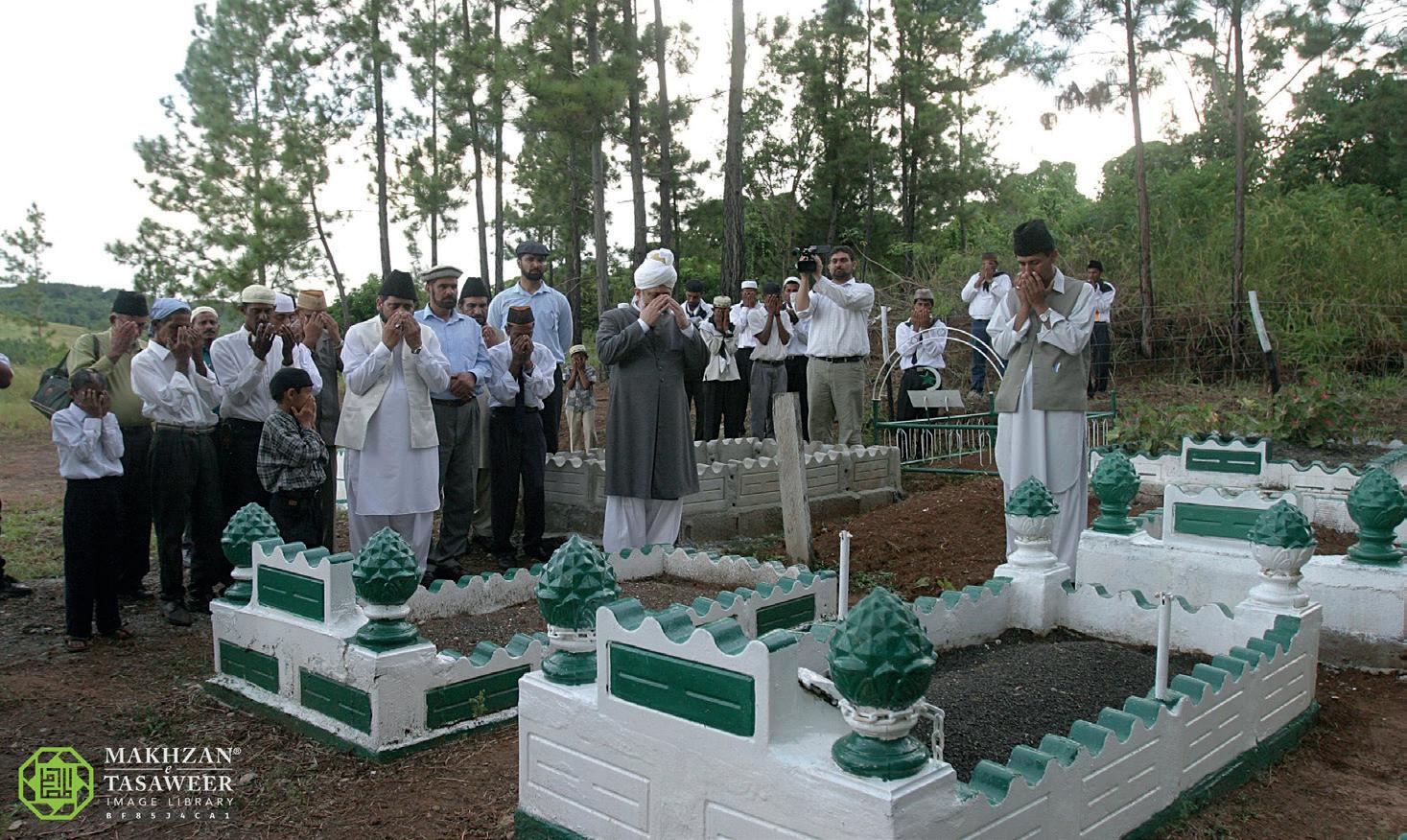
(Khutbat-e-Tahir, Vol. 3, p. 229) 5 - 6 May 4 May 3 May
4 May 1973: A resolution was presented in the legislative assembly of the Pakistan-administered region of Kashmir to declare Ahmadis as non-Muslims. In response, during his Friday sermon on this day, Hazrat Khalifatul Masih IIIrh commented on the matter, the summary of which was that a true believer’s faith in Islam is so robust that it requires neither political validation nor the endorsement of those who possess only superficial religious knowledge.
(Khutbat-e-Nasir, Vol. 5, p. 121)
4 May 1984: On this day, Hazrat Khalifatul Masih IVrh delivered the first Friday sermon at Masjid Fazl in London after migrating from Rabwah, Pakistan. During his sermon, he called upon Ahmadis worldwide with the question
” [Who will be my helpers in the cause of Allah?].
5 May 1931: On this day, during his visit to Delhi, Hazrat Musleh-eMaudra visited the tomb of Hazrat Nizamuddin Auliyarh
6 May 1955: On this day, Hazrat Musleh-e-Maudra delivered a Friday Sermon in Damascus.

For more details, see “A call for interfaith harmony and tabligh: Hazrat Musleh-e-Maud’s visit to Mussoorie, Dehradun and Delhi, 1931”, at alhakam.org (2 June 2023, p. 8).
6 May 1927: During the first week of May 1927, anti-Muslim riots erupted in Lahore and Muslims had to face severe oppression. Upon this, during his Friday Sermon on this day, Hazrat Musleh-e-Maudra guided the Muslims in this regard and advised them on how to address this issue.

For more details, see “Hazrat Musleh-e-Maud’s services to the Muslim cause: Guiding Muslims of the Indian subcontinent amid religious and political conflicts”, at alhakam. org (26 February 2021, p. 17).

For more details about his second tour of Damascus, see: “A brilliant sign of ‘the devotees of Syria’: Hazrat Musleh-e-Maud’s 1955 visit to Damascus” at alhakam.org (17 February 2023, pp. 9-10).
6 May 1970: On this day, Hazrat Khalifatul Masih IIIrh granted audiences to the Acting Governor and the Prime Minister of Sierra Leone. (Tarikh-e-Ahmadiyyat, Vol. 26, pp. 61-62)
6 May 2007: On this day, Hazrat Khalifatul Masih Vaa addressed a reception held concerning the launch of MTA3 Al-Arabiyya. (Al Fazl International, 25 May 2007, p. 16)
Friday 3 May 2024 | AL HAKAM 6
Silent Prayer at Ahmadiyya Cemetery in Fiji, 2006
“ہَلّٰلا ی ا یرَاﺼنِا نِمُ
�ں�ہ�رد�ہآ
3 - 9 May

9 May 2003: During his Friday Sermon on this day, Hazrat Khalifatul Masih Vaa warned of the horrific consequences of atomic warfare.
For more details, see “World War III: Hazrat Mirza Masroor Ahmad warned for almost two decades, but the world failed to take heed”, at alhakam.org (4 March 2022, p. 8).

9 May 2005: On this day, Jalsa Salana Tanzania commenced. This was the first Jalsa Salana of Tanzania in which a Khalifatul Masih was present. (Al Fazl International, 3 June 2005, p. 11)
9 May 2016: On this day, Hazrat Khalifatul Masih Vaa delivered the keynote address at a special reception held in his honour at the Hilton Hotel in Copenhagen, Denmark. (“Head of Ahmadiyya Muslim Community delivers historic address in Copenhagen”, www. pressahmadiyya.com)
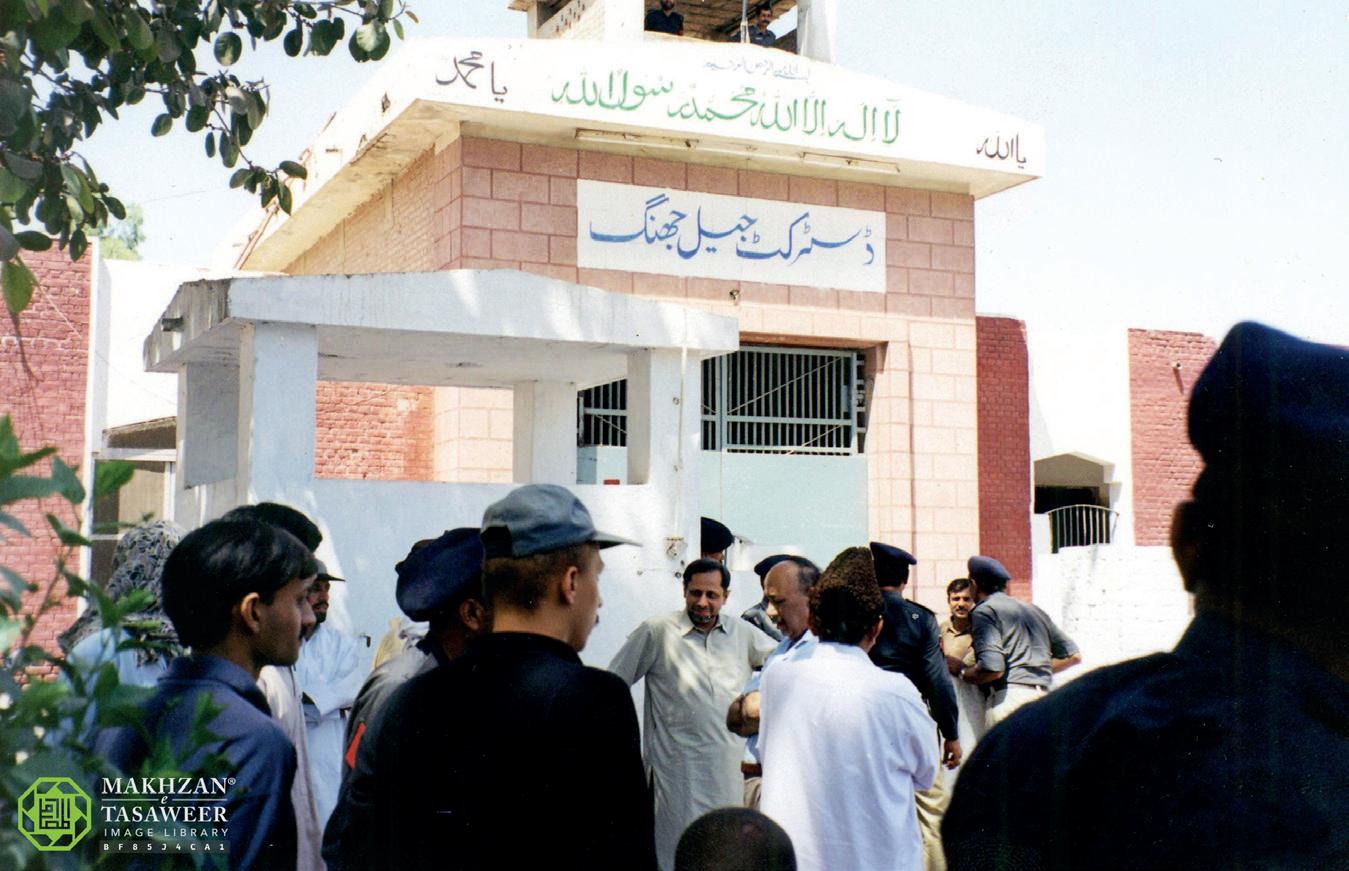
9 May 8
May
8 May 1970: On this day, Hazrat Khalifatul Masih IIIrh inaugurated the Nazir Ahmad Ali Mosque in Sierra Leone. On the same day, Huzoorrh graced a reception held in his honour by the Muslim Congress of Sierra Leone. (Tarikh-e-Ahmadiyyat, Vol. 26, pp. 63-64)
8 May 2005: On this day, Hazrat Khalifatul Masih Vaa was interviewed by a Kenyan national newspaper. On the same day, in the next leg of the visit, Huzooraa travelled to Tanzania by air. This was
Huzoor’saa first visit to Tanzania. In the evening, Huzooraa also inspected the arrangements for Jalsa Salana Tanzania. (Al Fazl International, 3 June 2005, p. 16)
8 May 2006: On this day, during his tour of the Far East, Hazrat Khalifatul Masih Vaa arrived in Tokyo, Japan after travelling from New Zealand. Huzooraa was warmly welcomed by Ahmadis at Japan’s Narita Airport. (Al Fazl International, 30 June 2006, p. 3)
7 May
7 May 1933: While the Kashmir Movement was achieving great success, the opponents of Ahmadiyyat, particularly the Ahrar started a campaign against Hazrat Musleh-e-Maudra, without thinking about the interest of the Kashmiri Muslims, and demanded that the president of the All India Kashmir Committee should not be an Ahmadi.
Observing this situation, Huzoorra called a session of the Kashmir Committee on this day, at the Cecil Hotel Lahore, and during the meeting, resigned from the presidency. This was a big loss to the Kashmir cause, but Huzoorra did not stop his efforts for the Kashmiri Muslims.
For more details, see “Hazrat Musleh-e-Maud’s services to the Muslim cause: Guidance for Turkey, peace in the Arab world and the Kashmir Movement” and “Historical analysis of Ahrar’s anti-Ahmadiyya agitation – Part 2”, at alhakam.org (19 February 2021 and 13 October 2023).

7 May 2005: On this day, during his visit to Kenya, Hazrat Khalifatul Masih’s Vaa granted an audience to the then Minister of Environment and Natural Resources, Hon Kalonzo Musyoka. (Al Fazl International, 27 May 2005, p. 9)
7 AL HAKAM | Friday 3 May 2024
(Hazrat) Sahibzada Mirza Masroor Ahmad as an Aseer-e-rah-e-Maula (prisoner for the sake of Allah) following release from District Jail Jhang, Pakistan, 1999
‘Faraz Tahir died a national hero’ Australian Prime Minister attends funeral of martyr
Naosheyrvaan Nasir
Secretary MASQ, Australia
‘Without question, Faraz Tahir died a national hero’. These are the words of Australian Prime Minister, the Honourable Anthony Albanese MP, that forever cemented a refugee Ahmadi security guard’s place in Australian history. The Premier of the state of New South Wales, the Honourable Chris Minns MP, reflected upon Faraz as ‘a man of great character as well as courage’.
A refugee who arrived in Australia through the UNHCR programme a little over a year ago, Faraz Tahir became employed as a security guard at the Westfield Shopping Centre in Bondi Junction, a profession that is a tried and tested pathway to financial freedom for many migrants seeking a second chance at life in Australia. For those not familiar with Bondi, it is Australia’s equivalent of Miami in the United States or Dubai’s Palm Jumeirah in the United Arab Emirates, with its lush beaches and warm weather attracting visitors from not just across Sydney, but across the globe.
Muhammad Taha, the other security guard who was stabbed but survived, recounted Tahir’s final words as “Let’s find out what’s going on.” Such last words are only ever uttered by a soul who has absolute courage to walk into the unknown and puts the safety of his fellow human beings above his own.
On 13 April, in the late afternoon, 40-year-old Joel Cauchi began deliberately targeting people with a large knife. His actions were not deemed to be a terrorist attack as judged by the government and the relevant law enforcement agencies. The incident was reported to have been triggered by Cauchi’s chronic mental health issues, which prompted the federal government to concede their measures to address such issues were inadequate. In total, six people were killed. Five of them were women, with Faraz being the sole male. Many more were injured.
The respected Amir and Missionaryin-Charge of Ahmadiyya Muslim Community Australia, Inamul Haq Kauser, extolled the virtues of Faraz Tahir and how his actions can serve as a role model for all Ahmadi Muslim youth. He said that “[Faraz was] setting an example for all” and that “his sacrifice has been
recognised by all Australians, although he was a stranger in this country.”
In response, Majlis Khuddam-ulAhmadiyya Australia the Ahmadiyya Muslim Youth Association Australia) has launched a national blood donation campaign titled, Faraz’s Gift. Per the association’s president, Adnan Qadir, “What could be better than donating our blood to assist our fellow Australians in difficult times.” His brother, Mudasar Bashir added that “he gave his life to protect others, he gave his blood to protect the public and we want everyone to pray for him” making the national blood drive a very fitting way to honour Faraz’s legacy.
The Holy Quran’s chapter 2 verse 155 says, “And say not of those who are killed in the cause of Allah that they are dead; nay, they are living; only you perceive not.” With all the tribute that the late Faraz Tahir has been afforded posthumously, it makes sense that he is remembered, and this verse of the Holy Quran beautifully captures his act of selflessness and bravery. The blood drive in his name speaks to his legacy being well and truly alive, even though Faraz as a human being is no longer physically with us. Death is a phenomenon that will eventually overcome us all, but those who give their lives for the sake of humanity indeed have died for a cause that is far greater than them.
“Australia will always be grateful to Faraz Tahir. May he rest in eternal peace”, said the Prime Minister, the Honourable Anthony Albanese MP.
In what can be considered the greatest tribute of all, Hazrat Mirza Masroor Ahmadaa, Khalifatul Masih V, the Worldwide Head of the Ahmadiyya Muslim Community, highlighted Faraz Ahmad Tahir’s indomitable spirit and principled sacrifice in his Friday sermon delivered today (26 April 2024). Huzooraa recognised Faraz as a shining example of faith and bravery under adversity, saying, “His sacrifice shows that he did not leave Pakistan out of fear of death, but rather due to the religious restrictions imposed on Ahmadis, which made him leave a country where [Ahmadis] are prevented from uttering the name of Allah and His Messengersa.” Furthermore, Huzooraa led his funeral prayer in absentia. (@ AlHakamWeekly via X)

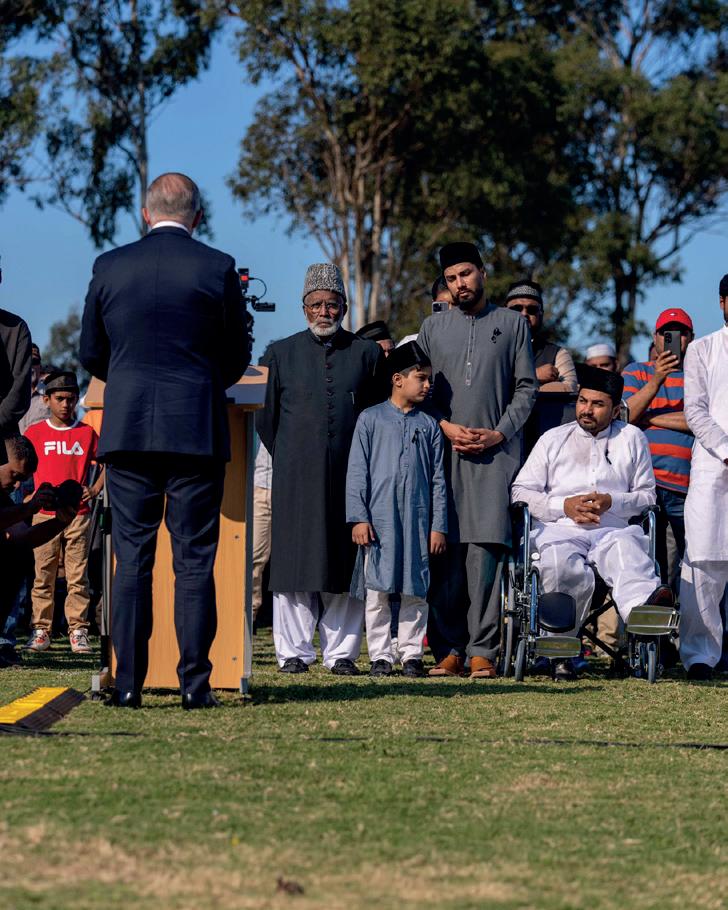

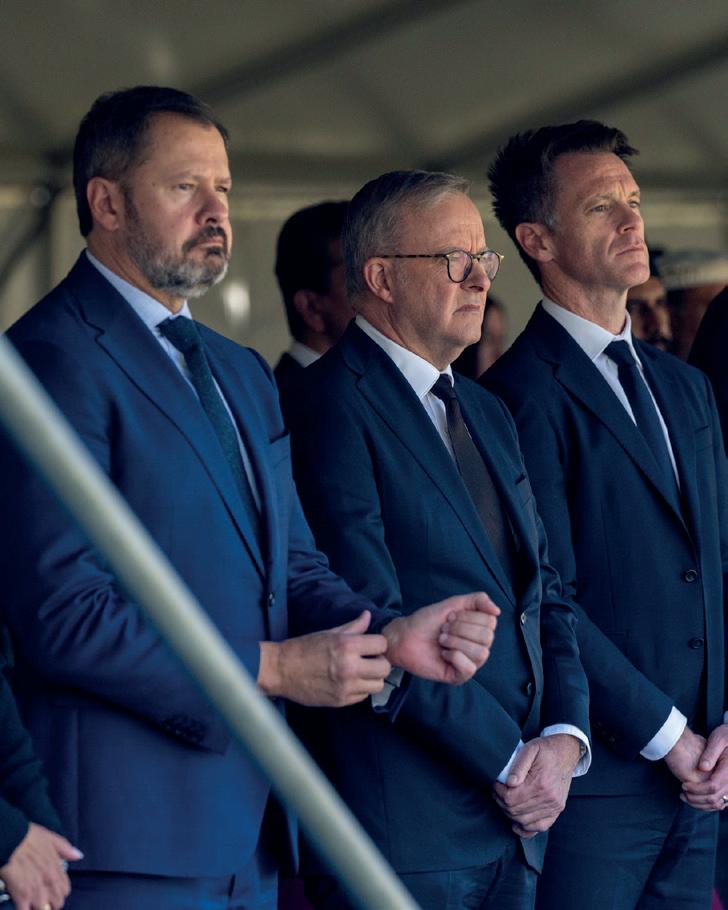


Friday 3 May 2024 | AL HAKAM 8
Courtesy of X/@AlboMP
Divine discourse: Continuation of revelation and visions

world that:
God still grants the blessing of His communion to whomsoever He pleases. In the Holy Quran, Allah says:
“And it is not for a man that Allah should speak to him except by revelation or from behind a veil or by sending a messenger to reveal by His command what He pleases.”
(Surah ash-Shura, Ch.42: V.52)
Like every other prophet, Allah opened the treasures of divine insights, visions, revelations, and hidden truths in abundance to Hazrat Mirza Ghulam Ahmadas, the Promised Messiah and Mahdi. These revelations and visions were not bringing a new law, rather they supported Islam and revived the original teachings of the Quran and sunnah
The Companions and followers of the Promised Messiahas were also blessed with this favour of communion with Allah the Almighty, and they continue to witness these blessings of God Almighty even after the passing of Prophet Ahmadas
The Promised Messiahas appeared at a time when belief in Tawhid (Oneness of God) was on the decline and people were forsaking Islam for Christianity; a religion that openly advocated the concepts of trinity, the divinity of Jesus and atonement. Consequently, God sent the Promised Messiahas to make it manifest upon the
“That God still grants the blessing of communion [with Him] – whomsoever He wills, and He still speaks with them –whomsoever He loves.”
“Hearken! Why would God discontinue the treasure of revelation? This stands as the only source of honour and glory for the Faith!”
“This [revelation] is the key to unlock the gates of heavens. This is the mirror that helps witness the Beloved’s countenance.”
(Durr-e-Sameen, p. 136)
Throughout his life, Hazrat Ahmadas conveyed this message with great fervour that God continues to converse with His beloveds in the same way He did in the past. He brought this fact to the fore that communication with Allah the Almighty, divine visions, and revelations were not only spiritual signs of a living faith but also indicators of God’s blessings upon humanity that would continue forever.
Explaining how God Almighty showers His divine light upon His creation and enhances their spirituality, the Promised Messiahas states:
“The fact is that when the Imam of the age appears in the world, thousands
upon thousands of lights accompany him and heaven is filled with joy. With the dissemination of spirituality and light, the right potentialities become alive. Anyone who has the capacity begins to experience a series of revelations. […]
“All these blessings are in fact the outcome of the spiritual radiation which comes with the Imam of the age and descends upon the heart of every ready and eager person. This is a general law and a Divine practice to which we have been guided by the Holy Quran and authentic Hadith, and our personal experience has testified to it.
“The age of the Promised Messiah, however, has an even greater distinction in that it is recorded in the books of earlier Prophets and Hadith of the Holy Prophetsa that, at the time of his advent, this radiation of spirituality will become so universal that women too will begin to receive revelations, minors will make prophecies, and ordinary people will be inspired by the Holy Spirit.
“All this will be a reflection of the spirituality of the Promised Messiah. This is just like the light of the sun which falls upon a wall and illuminates it, and if the wall is white-washed with lime, it becomes all the more radiant. And if it is inlaid with mirrors, the light becomes too intense even for the eyes to behold. The wall, however, cannot claim this light as its own, for after sunset, not a trace of it remains. Likewise, all revelational light is a reflection of the light of the Imam of the age.” (The Need for the Imam [Darurat-ul-Imam], pp. 6-7)
The Promised Messiah’sas Companions,
Khulafa, and followers not only bore witness to these divine revelations but also personally experienced this blessed phenomenon of God Almighty. Their first-hand encounters are a testament that revelation continues to persist in extraordinary forms to guide and lead people to their Creator. Moreover, the conclusion of the Promised Messiah’sas life did not mean the end of divine communication. Rather, it marked the beginning of a new period in which the words and blessings of Allah the Almighty continue to be manifested in the hearts of His faithful servants, therefore extending the eternal path leading to the One God.
Blessings and wonders
The Promised Messiahas was promised by God Almighty that his Companions and followers will be granted divine blessings and wonders, as Allah the Almighty said:
“[I] shall raise your followers above those who disbelieve, till the Day of Judgment. This means that: ‘I shall give victory to your followers and Companions over others in arguments, reasoning, and blessings.’” (Tadhkirah [English], p. 127)
In another revelation, Prophet Ahmadas was given the following glad tiding: “Tell the Companions that the time for showing wonders upon wonders has arrived.” (Ibid., p. 865)
9 AL HAKAM | Friday 3 May 2024
M Adam Ahmad
Al Hakam
بٍاجَحۡ ءِآرَوَ نِمُ وَا ایًحۡوَ اِلۡا ہَلّٰلا ہُمُلَّکَیَ نِا رُشَبَِ لۡ نِاکَامُوَ ءِآشَیَامُ ہُنِذِابِ یحِوْیًفَ اِلۡوْسُرَ لَسُرُیَوَا
.
کلیمہےچاجسےہےتابنابھیبااخدہو رپیاہےتاکرہوسےجسہےلتابوسےسابھیبا
کرشہوہےتاڑتوںکیواخدِحیِوِہرِگو رفتخااوّ� عِزّئےجاہےکیلئےیںدیہیکا
کھلیںردکےںسماآسےجسحمفتاہےہویہ رنگائےورلیںیکھدسےجسہےئینہآہویہ
ۃِمُیًقِلۡا مِوْیَ ی ا اوَرۡفَکَ نِیَذَلۡا قَوْفَ کَوْعَبَتَا نِیَذَلۡا لَعَاجَوَ
Joe Dudeck | Unsplash
Revelations to Promised Messiah’s Companions
Expressing that his Companions, both men and women, were blessed with revelations of God Almighty, the Promised Messiahas says:
“The truth is that there are many such people among my followers, and the revelations of some of them would constitute a whole book. Syed Amir Ali Shah, for instance, sends me a whole page of revelations every week. There are also women who bear witness to my claim and receive revelations in Arabic, without having learned a word of Arabic. […]
“On 28 September 1898, I received a few of her [Ghulam Fatima’s] revelations in a letter through her real brother, Fateh Muhammad Buzdar.
“Many other followers of mine are also recipients of revelation. One of them resides in Lahore.” (The Need for the Imam, p. 50)
Khutba Ilhamiyyah and divine visions
Prophet Ahmadas records that God instructed him to deliver an address in Arabic. On 11 April 1900, the day of Eid-ulAdha, the Promised Messiahas was informed by Allah the Almighty that he had been given the ability to speak in Arabic and that “this discourse has been made eloquent by the Noble Lord.” (The Philosophy of Divine Revelation [Haqiqatul Wahi], p. 457) This revelation was communicated to Maulvi Abdul Karimra, Hakeem Maulvi Noorud-Dinra, Sheikh Rahmatullahra, Mufti Muhammad Sadiqra, Maulvi Muhammad Ali MA, Master Abdur Rahman, Master Sher Alira BA, Hafiz Abdul Alira, and many other friends. Consequently, the Promised Messiahas delivered the Eid sermon extemporaneously in Arabic after the Eid prayer, as he states:
“When this Arabic address, which has been named Khutbah Ilhamiyyah [‘The Revealed Sermon’], was delivered to the people, an audience of perhaps two hundred was present at the time. Holy is Allah! It seemed as if a fountain had begun to flow from the unseen, and I knew not whether I was the one who was speaking or it was an angel addressing through my tongue, because I was aware that I had no part in this address.” (Ibid., p. 458)
During the miraculous occurrence of this Revealed Sermon, a series of divine visions were witnessed by the Companions of the Promised Messiahas. Hazrat Khalifatul Maish Vaa states:
“Regarding this Khutbah Ilhamiyyah [The Revealed Sermon], two dreams have been observed, penned by the blessed hand of the Promised Messiahas, which are also recorded in Tadhkirah
“Under the date 19 April 1900, the Promised Messiahas wrote about a dream of Mian Abdullah Sanaurira in which Mian Abdullah Sanaurira said that the late Munshi Ghulam Qadir of Sanaur had come there. Mian Abdullah asked him about the gathering. He said there was a great clamour up there [in the heavens].
“This dream is in exact accord with the dream of Syed Amir Ali Shah, because he had seen that when the Arabic address was being delivered on Eid day, the Holy Prophetsa, Hazrat Isa [Jesusas], Hazrat Musa
[Mosesas] and Hazrat Khidras were present among the audience listening to the sermon. He was shown this as a divine vision while he was sitting and listening to the sermon.” (Friday Sermon, 11 April 2014)
Impressions of some other Companions of the Promised Messiahas about the Revealed Sermons are also recorded in the annals of history.
Hazrat Hafiz Abdul Alira narrates:
“I was present at the time of this Khutbah Ilhamiyyah. The tone of Huzoor’sas voice was somewhat different at that moment. A Syed from Sialkot District, who was a recipient of divine revelations, (he was an Ahmadi Syed who used to receive revelations), was sitting beside me. He was saying that, ‘Even the angels were present to listen [to this Revealed Sermon].’” (Ibid.)
Revelations
Hazrat Maulana Ghulam Rasul Rajekira had such a relationship with Allah the Almighty that God would frequently manifest Himself to Hazrat Maulana Rajekira through visions, dreams, and revelations. Hazrat Ghulam Rasul Rajekira narrates, “I went for preaching [in a village named Dodra], their Mulla Muhammad Alam would obstruct people from listening to my words and would announce the fatwa of disbelief that was imposed upon me. Eventually, he incited Jiwan Khan, a strong young man of that area, who was dominant over all the landlords of the village in terms of their numbers and strength. He incited him against me to the extent that they threatened my life, sending me a message that if I valued my life, I should not set foot in their village, or else I would regret it. Upon receiving this message, I stood in prayer for supplication, beseeching God fervently, and in that state of prayer, Allah revealed to me regarding Jiwan Khan and Mulla Muhammad Alam that:
“Perished be the two hands of Abu Lahab, and he will perish. His wealth and what he has earned shall avail him not.”
(Hayat-e-Qudsi, Vol. 1, p. 26)
Consequently, Mulla Muhmmad Alam was first expelled from his village and then fell ill, eventually dying a miserable death. On the other hand, Jiwan Khan also suffered from a disease but recovered when he repented and sought forgiveness. Maulana Ghulam Rasul Rajekira prayed for him and he fully regained health.
Hazrat Abdur Rahim Nayyarra saw these words, “No tournament, no games,” in written form as a revelation by God Almighty. Following this, he fell ill and could not personally participate to conduct a high school tournament as he was the head of the sports department. However, on the day of the tournament, rain came down in buckets and they had to cancel it altogether. (Register Riwayat-e-Sahaba [unpublished], Vol. 11, p. 312-13)
Once, in Masjid Aqsa, some Companions of the Promised Messiahas were gathered, and Hazrat Sahibzada Abdul Latifra, who later became a martyr, was also present there. Due to some reason, he went outside for a moment. In the meantime, Hazrat Maulvi Noor-ud-Dinra arrived and, upon seeing the vacant place, sat in the
place of Hazrat Sahibzada Abdul Latifra When he returned, Hazrat Sahibzada Sahibra expressed his displeasure. Hazrat Maulvi Sahib was about to get up from that place when immediately Hazrat Sahibzada Abdul Latifra said:
“No, no, you may stay seated. I have just received a revelation that:
“‘Argue not with the beloved servants of Allah.’” (Al Fazl, 24 June 2005, p. 3)
Successors of the Promised Messiahas
The Khulafa or Successors of the Promised Messiahas also received their fair share of visions and revelations by the sheer grace and blessings of Allah the Almighty.
Hazrat Khalifatul Masih I, Hakeem Maulvi Noor-ud-Dinra was the closest companion and the best friend of the Promised Messiahas, and he was thus blessed with countless divine manifestations of God Almighty. Once, expressing to Nawab Khan Sahib Tehsildar, Hazrat Khalifatul Masih Ira said:
“I have benefited greatly from the bai‘at of the Promised Messiahas, but one of the greatest benefits I have received is that previously I was granted visitation of the Holy Prophetsa only in dreams, but now I experience it while awake [in a semiconscious state].” (Hayat-e-Nur, p. 194)
Mentioning how God Almighty revealed to him about the discomfort of a fellowcompanion through Prophet Muhammadsa, Hazrat Khalifatul Masih Ira writes:
“Once, I saw the Holy Prophet, peace and blessings of Allah be upon him, in a divine vision. Hazrat Muhammadsa said, “Your meal is at our house, but I am very worried about Nabi Baksh.’” (Mirqat alYaqeen fi Hayat Noor-ud-Din, p. 122)
Hazrat Hakeem Maulvi Noor-ud-Dinra narrates that after the above revelation, he tried and tried but could not find Nabi Bakhsh Sahib. Several days later, he met Nabi Baksh Sahib and asked him if he could assist him in case of any discomfort. Nabi Bakhsh Sahib replied that he was going through a really tough time, but then he secured some work and got some money to make ends meet. (Ibid.)
Hazrat Khalifatul Masih II, Mirza Bashir-ud-Din Mahmud Ahmadra, who was born following a grand prophecy of the Promised Messiahas, also witnessed countless visions and received a great number of revelations from Allah the Almighty.
Hazrat Syed Sarwar Shahra, who was one of the teachers of Hazrat Sahibzada Mirza Mahmud Ahmadra, narrates:
“Hazrat Khalifatul Masih IIra was taught by me and so one day I asked him, ‘Mian! Your father receives revelation in abundance. Do you receive revelations and dreams, etc.?’ Mian Sahib replied: ‘Maulvi Sahib! I have witnessed many dreams and there is one dream I see nearly every day. From the moment my head touches the pillow to the moment I wake up in the morning. I dream that I am leading an army. And sometimes I see crossing oceans to fight an adversary. And many times, it has happened that if I have nothing to make the crossing with, I make a boat out of reeds, etc., and with it make the crossing to attack
the enemy.’
“When I [Hazrat Syed Sarwar Shahra] heard this dream from him, the thing imprinted on my heart since then was that this man will lead the Jamaat (Ahmadiyya Community) some time in the future. From then on, I stopped teaching him while sitting in the classroom. I would sit him in my chair while I sat in his place and began to teach him. Upon hearing the dream, I also requested him that, ‘Mian! Please do not forget me when you get older, please keep me in your loving sight.’” (Fazl-e-Umar, pp. 85-86; Al Fazl, 16 February 1968)
Once, Hazrat Mirza Mahmud Ahmadra saw in a dream that the Promised Messiahas had received the following revelation:
“I shall come to you with a host of angels at a time that no one would think that such a tribulation is about to happen.” (Tadhkirah [English], p. 714)
The following morning, Hazrat Sahibzada Mirza Mahmud Ahmadra mentioned this to the Promised Messiahas who confirmed that he had received that revelation. (Ibid.)
The details of this particular incident can be read in our article, titled “How the Promised Messiah’s revelations, visions and dreams were recorded”, published on 19 March 2021 in The Weekly Al Hakam
On the subject of receiving revelation at an early age, one of Hazrat Khalifatul Masih II’sra childhood friends relates:
“Maybe this fact has been recorded or has been printed somewhere, but I feel it important to mention that when he was studying with me in the Talim-ul-Islam school, he stated that he had received the following verse in revelation:
“‘I will place those who follow thee above those who disbelieve until the Day of Resurrection’.
“And he also stated that he had mentioned it to the Promised Messiahas that, ‘I have received this revelation.’” (Fazle-Umar, p. 86)
The son-in-law of Hazrat Musleh-eMaudra narrates:
“When Hazrat Khalifatul Masih IIra was about to leave for the Ludhiana Jalsa, he sat me with him in his car. It rained for the entire duration of the journey. When the convoy neared the canal of Harchowal, the authorities refused to open the barrier for the convoy as, they rightly said, the route was extremely unsuitable. Even the driver of the hired vehicle of Huzoorra said that he would not risk driving it any further as the mud and water would risk damaging the car. Everyone tried their best to convince him, even offering to cover the cost of any possible damages, but he did not agree.
“At this occasion, Hazrat Musleh-eMaudra received a revelation, a moment which I was very lucky to witness. I saw an extraordinary expression on his face and sensed a change in the usual look of his eyes. However, at that time Huzoorra did not say anything. Afterwards, in a gathering, Huzoorra mentioned that while crossing the canal seemed impossible, Allah the Almighty revealed to him at that very moment, ‘There will be many means of blessings.’
“Then Huzoorra explained how the convention had been an immense success
Friday 3 May 2024 | AL HAKAM 10
بَسَکَ امُ وَ ہُلۡامُ ہُنۡعَ ینٰغۡا امُ بَتَ وَ بَہَلۡ ی ا ادۡیَ تۡبَتَ
ۃِتَغْبَ کَیًتَا جِاوْفَاِلۡا عَمُ ی أِ
despite the rain and the same rain hindered the evil plans of the opponents. So, when Hazrat Musleh-e-Maudra received this revelation, by the sheer grace of Allah the Almighty, I was with him at the time and I witnessed his state during the revelation first-hand.” (Al Hakam, 19 February 2021, Vol. 4, Issue 153)
The readers can gain insight into Hazrat Musleh-e-Maud’s elevated spiritual status and get a glimpse of his divine visions in the book, Ru’ya wa Kushuf Syedna Mahmud
Hazrat Khalifatul Masih III, Mirza Nasir Ahmadrh was bestowed with heavenly guidance and divine revelations as well.
On 18 March 1966, talking about a revelation he received following a prayer for the progress of the Jamaat, Hazrat Mirza Nasir Ahmadrh said:
“Last night, I prayed for the progress of the Ahmadiyya Community and also for members of the Jamaat. When I woke up in the morning, the following words were proceeding forth from my mouth:
“‘I will grant you beyond measure that you will be satisfied.’” (Hayat-e-Nasir, Vol. 1, p. 384)
Hence, Hazrat Khalifatul Masih IIIra proposed many schemes under the direction of Allah the Almighty and all of them met with great success. For example, Hazrat Mirza Nasir Ahmadra received the following revelation about his Talim-ul-Quran and Waqf-e-Ardhi projects:
“[And Allah has made it only as] glad tidings for you.” (Khutbat-e-Nasir, Vol. 1, p. 344)
Hazrat Khalifatul Masih IV, Mirza Tahir Ahmadrh, was also given a great share of hidden verities and divine truths by God Almighty.
In 1984, when the Ahmadiyya Jamaat was going through extreme persecution, Hazrat Mirza Tahir Ahmadra received a comforting revelation:
“Peace be upon you.” (Friday Sermon, 16 November 1984)
During the hardships in the time of Zulfiqar Ali Bhutto, Hazrat Khalifatul Masih IVrh said:
“I prayed […] that those who persecuted us be punished. I spent many sleepless nights. One night, I woke up jumping from my bed. I was in the grip of a power which cannot be described, though it was an experience very similar to the revelation I had from God when I was a boy. I found that I was saying ‘Adhaa wa Aamr, Adhaa wa Aamr’ (‘more destructive, more bitter’) so strongly and powerfully that it was not in my control. I repeated it again and again. I have read about revelations of this type, when you start saying things and you have no control of the words, which you don’t even fully understand, but you are totally helpless in the hands of some power which compels you to go on repeating the words.”
(A Man of God, p. 110)
Then, two years later, when it was still dark outside, Hazrat Mirza Tahir Ahmadrh suddenly awoke and said:
“I had an intense feeling that something
had happened. I lay awake from then on until it was my usual time to get up and pray. I never normally listen to the radio in the morning, but that morning I did. The first thing that I heard was that Bhutto had been hanged.” (Ibid., p. 111)
On 28 December 1984, Hazrat Mirza Tahir Ahmad, Khalifatul Masih IVrh shared one of his visions with members of the Jamaat and said:
“Two or three days ago, I was feeling very anxious due to some news I had received. After Zuhr, I laid down to rest, when I started uttering the words ‘Jumuah, Jumuah,’ and at the same time, I saw the dial of a clock on which ‘10’ began to shine brightly at the spot where the figure of ‘10’ normally appears [on a dial]. This was not a dream, but a vision seen in a state of wakefulness.” (Khutbat-e-Tahir, Vol. 3, p. 777)
To study the above-mentioned vision in detail, see the article, Friday the 10th: A glad tiding to the Ahmadiyya Muslim Jamaat in the 23 April 2021 issue of Al Hakam. (Vol. 4, Issue 162)
Hazrat Khalifatul Masih Vaa, Mirza Masroor Ahmadaa, the present head of the Ahmadiyya Muslim Jamaat, sometimes shares the divine guidance he receives, echoing the experiences of his predecessors. Like all other Khulafa, Huzooraa has stated on numerous occasions that Allah continues to guide him in various ways. Once, while replying to a question Hazrat Khalifatul Masih Vaa stated that one of God’s ways of responding and speaking is through answering prayers. Sometimes, God discloses an answer to a prayer in a dream. Those who have a strong relationship with Allah may even hear Allah through a kashf (vision) or other means. Huzooraa added, “Allah has different ways,” and then quoted the following couplet of the Promised Messiahas:
“Through His Might does God prove His existence; this is how He unveils His invisible countenance.” (Majmu‘ah-eIshtiharat [1986], Vol. 1, p. 143)
Hazrat Khalifatul Masihaa explained that when he prays to Allah, He responds by placing satisfaction in his heart and sometimes he is granted consolation and comfort through a dream, or his heart is comforted. If Allah so desires, Huzooraa said, He can speak too, “These are Allah’s ways, as I have explained before.” (Al Hakam, 17 February 2023, Vol. 6, Issue 257)
With regard to the issue of the opposition of the Jamaat, Hazrat Khalifatul Masih Vaa said:
“On one occasion when I prayed, […] Allah told me that if the entire Jamaat starts praying fervently like the people of Yunusas for three days – every child, old and young person – cries before Allah the Almighty, then within three days this issue can be resolved.” (Al Hakam, 17 February 2023, Vol. 6, Issue 257)
On his way to address US leaders at Capitol Hill, Hazrat Khalifatul Masih Vaa recounts:
“For a second, the thought occurred to me, ‘America is a superpower of the world and I am to address the leaders and high-
ranking officials of this superpower.’ The thought had only just crossed my mind, and I did not even have a chance to ponder on it, when Allah the Almighty put in my heart with great might:
“‘Allah the Almighty assured the Promised Messiahas, بَعَرُلۡابِ تَرُصِنِ [“You have been helped with prestige”], and I am here as a representative of the Promised Messiahas.’ These words were put in my heart with such vigour and splendour by Allah that all other thoughts were brushed away. These words were vouchsafed to the Promised Messiahas through Divine revelation and the same words were put in my heart as a means of reassurance. The wisdom behind it must have been that I was not attending the event to present personal views, nor was I there to establish my supremacy. I was to present the teachings of Islam; the God that revealed Islam to mankind is a God Who is very protective of His religion.” (“Helped with Prestige (English Translation)”, Al Hakam, 25 May 2018, Vol. 1, Issue 10)
In his address of Khilafat centenary, Huzooraa said, “God Almighty gave me the reassurance a long time ago that He would prepare loyal companions in this era Himself.” Recalling the time of this glad tiding’s bestowment, Hazrat Khalifatul Masih Vaa said:
“This was a long time ago, well before my election as Khalifa. These words ‘
[‘Men whom We shall direct from heaven will help you’], were clearly shown to me when I was still a student. This promise was fulfilled on various occasions, in various ways. But the
actual meaning came to light when I was bestowed the responsibility of Khilafat.
“Similarly, on another occasion, I was shown: ‘
[‘Allah is the light of the heavens and the earth’]. I was shown this in extremely beautiful, crystal-clear and bold text in the sky. Then, I was intuitively told that the accomplishment of all tasks is made possible by Allah. In this manner, Allah intuitively puts a thought into my heart. Difficulties are overcome, and questions are answered.” (Ibid.)
Replying to the question of being blessed with direct Divine discourse, Hazrat Amriul Momineenaa said:
“The question is, what is Divine discourse? Allah has His own ways. And His ways with me are very unique. He brings thoughts to my attention with such vigour, that either all problems are solved or patience is granted. The heart feels at peace. Either that, or Allah provides guidance. Allah the Almighty completes my tasks for me. When He does my tasks, it is as if He talks.” (Ibid.)
Conclusion
Divine favours and blessings of God Almighty in various forms, i.e., true dreams, visions, revelation, etc., did not cease and will not stop in future. The arrival of prophets enhances these manifestations; however, their departure never hinders their continuation. These heavenly insights and verities persist unabated, providing humanity with a never-ending source of guidance and direction.
Promised Messiah Day events
celebrated in Sri Lanka
A Abdul Aziz Sri Lanka Correspondent
The Promised Messiah Day was celebrated at various centres of Jamaat-e-Ahmadiyya Sri Lanka. The events commenced with the recitation of the Holy Quran followed by a poem, and ended with a silent prayer.
The event in Colombo was held on 23 March 2024 at the Baitul Hamd premises. The opening speech in Sinhala was delivered by the National President, S Nizam Khan Sahib, followed by a speech by MA Anis
Ahmad Sahib, Sadr Jamaat-e-Ahmadiyya Colombo. A speech was delivered by AB Mushtaq Ahmad Sahib as well. The local president of the Colombo Jamaat read out a letter received from Hazrat Khalifatul Masih Vaa addressed to the local Jamaat.
The event in Negombo was held on 24 March at the Ahmadiyya Jubilee Hall, where a speech was delivered by Tahir Sahib, a missionary of the Jamaat.
The event in Polonnaruwa was held on the same day, where Asmath Ahmad Sahib addressed the members.

11 AL HAKAM | Friday 3 May 2024
مۡکُلۡ یرُشَبِ
مۡکُیًلَّعَ مِاِلسَلۡا
تثبوحقہےیتادكاتاذپنىاسےترقد ہےتویہیئىنماہچہركىںنشابےسا
کَرُصِنۡیَ ءِامُسَلۡا نِمُ مۡہَیًلۡا یحِوْنِ لِاجَرَ’
ضِرَاِلۡا وَ تَوْمُسَلۡا رَوْنِ ہَلّٰلا’
Image courtesy of AMJ Sri Lanka
Anti-Islam rhetoric before and after Surma-e-Chashm-e-Arya
A glimpse into the Indian press
Ata-ul-Haye Nasir
Al Hakam
In the late 1870s and early 1880s, the Arya Samajists were running a malicious campaign against Islam in which they were objecting to the teachings of the Holy Quran, mocking the miracles mentioned therein, and attempting to malign the blessed character of the Holy Prophet Muhammadsa
At that juncture, Hazrat Mirza Ghulam Ahmadas of Qadian undertook to defend the miracles mentioned in the Holy Quran, particularly the splitting of the moon, and to prove its magnificence. Thus, he penned Surma-e-Chashm-e-Arya
Announcement by Riaz-i-Hind
This book was published from the Riaz-iHind Press in Amritsar. While it was being printed, the newspaper Riaz-i-Hind of Amritsar announced:
“Risala Surma-e-Chashm-e-Arya: The printing of this magazine, written by Mirza Ghulam Ahmad Sahib — author of Barahine-Ahmadiyya — has commenced in this press. It is hoped that it will be completed by the holy month of Ramadan and available for the public to read, and the Risala Sirajul-Munir will be printed without any delay.”

(Riaz-i-Hind, 14 June 1886, Vol. 1, No. 34, p. 268)
The same announcement was published on 21 June 1886 as well.
What’s in the book?
This book carries the details of a debate between Hazrat Ahmadas and Lala Murli Dhar, Drawing Master (an Arya Samajist), which took place on 11 to 14 March 1886. At the end of the book, Huzooras invited the whole of the Arya Samaj to a comparative study of the Vedas and the Holy Quran and then suggested another way of settling the dispute by engaging in a Mubahalah (Prayer Duel). Hazrat Ahmadas extended an invitation to the non-Muslims to come to Qadian in order that he might show them heavenly signs in favour of Islam and he offered to bear all the expenses for anyone who was prepared to come to Qadian and stay for at least 40 days.
Reaction: Praise and opposition
In the beginning, the Muslim clerics would praise Hazrat Ahmad’sas services for Islam and consider him a great defender of the Islamic faith. When he wrote Surmae-Chashm-e-Arya in 1886, not only the Muslim clerics, but even the Christian press too commended his work, for instance, Nur-i-Afshan of Ludhiana wrote a review on 6 January 1887 and Maulvi Muhammad Hussain Batalwi published a review in his magazine Ishaat-us-Sunnah (Vol. 9, Number 5, pp. 145-158). Their details shall be presented later in this article.
In his book, while defending the teachings of the Holy Quran and proving the validity of the miracles mentioned therein, Hazrat Ahmadas also questioned certain beliefs of the Arya Samaj which they would attribute to their holy scripture, i.e., the Vedas. This turned them furious and they began to attack Islam more vigorously and falsely alleged Hazrat Ahmadas for initiating controversies between Arya Samaj and Islam.
However, the truth is that Hazrat Ahmadas merely defended Islamic teachings in response to the disrespectful attacks by the Arya Samaj, and showed them their own face in light of the beliefs which they proudly professed. These controversies were, in fact, initiated by the Arya Samajists themselves, even before Hazrat Ahmadas wrote Barahin-e-Ahmadiyya
Hence, before mentioning the details regarding Surma-e-Chashm-e-Arya it is
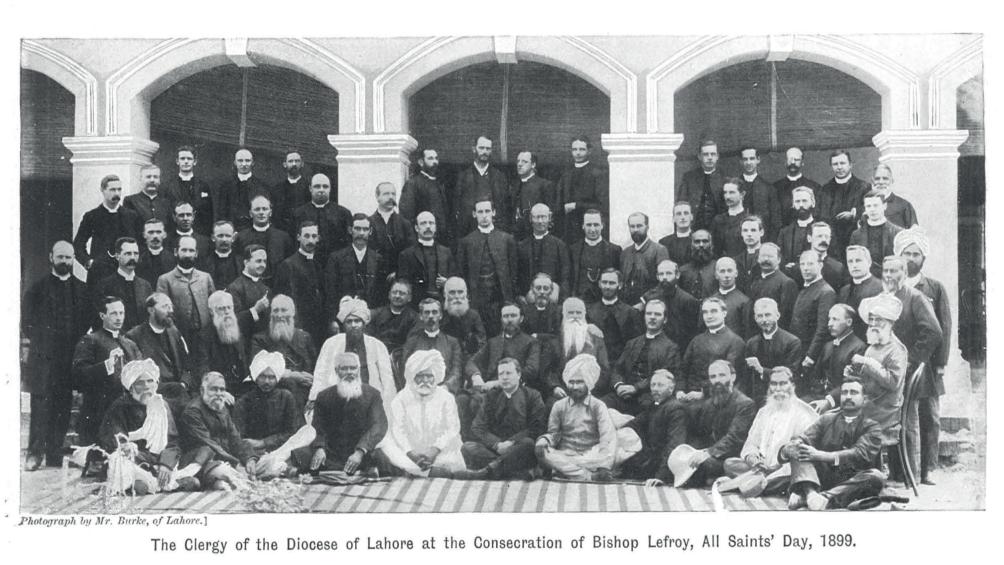
important to briefly state its background and the attacks on Islam from the Arya Samajists and the Christians.
Arya Samaj’s attacks on Islam before Barahin-e-Ahmadiyya
Hazrat Ahmadas published an announcement in May 1879, wherein he told the world about the objective of writing Barahin-e-Ahmadiyya, and said that the reason behind this book was that Pandit Dayanand, the founder of Arya Samaj had disrespected the Holy Prophet Muhammadsa, Mosesas and Jesusas, and declared the Holy Quran and Bible to be untruthful. (Majmu‘ah-e-Ishtiharat [2019], Vol. 1, pp. 19-20)
In this regard, Bob van der Linden – a historian of South Asia and global history – states:
“Although the main targets of Swami Dayanand Saraswati were orthodox Hindu practices and Christianity, he dedicated more space in his Satyarth Prakash to attack Islam than any other tradition. He further contributed to anti-Islamic agitation when
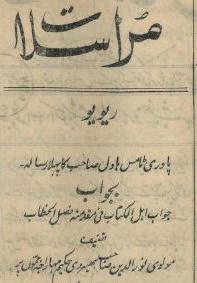
he published” his work “Gokarunanidhi (1880), interestingly based on economic rather than spiritual grounds. [...]
“In turn, importantly, large portions of Mirza Ghulam Ahmad’s[as] Barahin-iAhmadiyah argued systematically against the statements of the Arya Samaj, especially as proclaimed by Dayanand in the Satyarth Prakash. In fact, he even wrote a letter to Saraswati offering him to send a copy of the Barahin-i-Ahmadiyah to debate the truth of Islam and its superiority over Hinduism. Dayanand however did not respond and sometime later Ghulam Ahmad[as] reported a dream (as he regularly did) in which he saw Dayanand dying (as happened soon afterwards). Before that time, nonetheless, Ahmadiyahs already were considered major enemies of Punjabi Aryas, resulting in the fierce polemic relationship between Pandit Lekh Ram and Mirza Ghulam Ahmad[as].” (Tradition, rationality and social consciousness: the Singh Sabha, Arya Samaj and Ahmadiyah moral languages from colonial Punjab [2004], University of Amsterdam, p. 165)
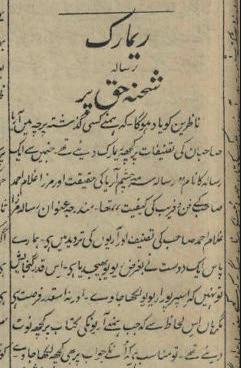
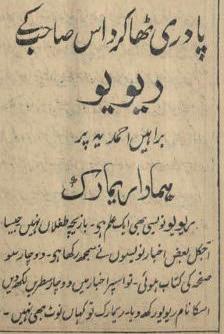
Friday 3 May 2024 | AL HAKAM 12
Anti-Islam rhetoric from the Christian and Arya clergy in 1880s
In the 1880s, the attacks on Islam from the Christian and Arya clergy were on the rise. Due to the fact that the opponents of Islam were unable to refute the arguments in favour of Islam, as presented by Hazrat Ahmadas in Barahin-e-Ahmadiyya to prove the truthfulness and magnificence of Islam. They left no stone unturned in opposing Hazrat Ahmadas in an effort to veil the greatness of Islam proved by this champion of Islam and the servant of the Holy Prophet Muhammadsa
Attacks on the Holy Quran and Holy Prophetsa by Nur-i-Afshan
On 27 May 1880, a series of articles commenced in Nur-i-Afshan of Ludhiana, by Rev. GL Thakur Das, titled “Adam Zuroorat-e-Quran” – The Redundancy of the Quran – in which he asserted that there was no need for the Quranic teachings as the other scriptures, particularly Bible, were enough for mankind’s guidance at all times. He implied that the Quranic teachings were imperfect and not compatible with every era.
Moreover, another series of articles were published by the same newspaper, titled “Wasiyyat-Nama Hazrat Muhammad Sahib” – The Will of Hazrat Muhammad Sahib (referring to the Hadith-e-Qirtas) in which the author asserted that the teaching brought by the Holy Prophetsa was not perfect and wrote on 9 February 1882 that, God forbid, the Holy Prophetsa was doubtful about the Holy Quran being the Word of God and asserted that he did not manifested any sign and miracle in reality. The author mentioned the miracle of the splitting of the moon as well.
A challenge in 1885
In March 1885, Hazrat Ahmadas gave a challenge and invited people of all religions and walks of life, both in India and the West, to stay at Qadian for a year in order to witness the signs in favour of the truthfulness of Islam. However, no one had the courage to truly accept this challenge, though a few clerics showed interest in the beginning but the later incidents exposed their real intentions.
For more details on this, see “Hazrat Ahmad’s claim to be the Promised Messiah and opposition from the religious clergy and press”, at alhakam.org (19 April 2024).
In Surma-e-Chashm-e-Arya, Hazrat Ahmadas shortened the time period to 40 days, inviting the religious clergy once again, including Lekhram, Athim, Imaduddin, Thakur Das, and Jeevan Das, and wrote that instead of one year, they should stay at Qadian for 40 days to witness a sign in favour of Islam, and in case no such sign is manifested, they would be rewarded 500 rupees. (Surma-e-Chashm-e-Arya, Ruhani Khazain, Vol. 2, pp. 309-310)
Demand for a sign from the Arya Samajists
The assaults on Islam and the noble character of the Holy Prophetsa were in full force. The Christian missionaries were exhausting all efforts to defame Islam and the opposition
of the Arya Samaj saw no end.
The Arya Samajists, like Indarman Moradabadi and Lekhram were demanding for a sign to be manifested to prove the truthfulness of Islam, hence, Hazrat Ahmadas supplicated to Allah the Almighty in Hoshiarpur for 40 nights in seclusion, seeking Divine manifestation. (“Forty nights of seclusion”, alhakam.org, 19 February 2021)
Mentioning this demand for a sign, Hazrat Musleh-e-Maudra stated during an address in Lahore on 12 March 1944:
“The Promised Messiahas has written that at that time, allegations were being levelled against Islam that it did not possess any power to show any signs. Hence, Pandit Lekhram was claiming that if Islam was a true faith, then a sign should be shown. Indarman Moradabadi was raising the same objection that if Islam was a true faith, then demonstrate a sign. Thus, the Promised Messiahas prostrated before Allah the Almighty and supplicated: ‘O my Lord! Demonstrate a sign that convinces these people of Islam who seek a sign. Show such a sign which would convince people like Indarman Moradabadi about Islam.’” (“‘God has declared me the Promised Son’: Glimpse into Hazrat Musleh-e-Maud’s speeches of 1944 in Hoshiarpur, Lahore, Ludhiana, and Delhi”, alhakam.org, 16 February 2024)
The Prophecy about the Promised Son
Thereafter, on 20 February 1886, Hazrat Ahmadas published an ishtihar, titled “Risala Siraj-e-Munir Mushtamil bar Nishaan-Haaey Rabb-e-Qadeer”, in which he mentioned a glad tiding which he received from God Almighty about a son. (Majmu‘ah-e-Ishtiharat [2019], Vol. 1, pp. 121-127)
Mentioning this ishtihar, the Sahifa-iQudsi of Delhi wrote an article on 4 March 1886, about which the Indian Newspaper Reports stated under the heading “So-called prophecies by one Ghulam Ahmad, Punjab”:
“The Sahifa-i-Qudsi (Delhi), of the 4th March, publishes a communication from one Ghulam Ahmad at Hoshiarpur, who is a native of Kadian, Gurdaspur, and has long carried on religious discussions with the Arya Samaj. The writer says that he will shortly publish a book under the name of Siraj-i-Munir, i.e., the Splendid Lamp, which will convince people of the truth of the Muhammadan religion. The book will contain prophecies relating to (1) the writer and his family, (2) his friends and some other persons, and (3) the leading members of the Arya Samaj, such as Munshi Indarman of Moradabad, Pandit Lekhram of Peshawar, &c., and some Hindus of Kadian. The writer is very desirous that God may also make some revelations to him regarding the triumph over Russia of the British Government, which has granted full liberty, peace, and security to the people, and remarks that if any such revelations are received, they will be inserted in the book. In conclusion, Ghulam Ahmad gives an account of one of the prophecies of the first class as an instance. God has promised him a handsome, noble, and learned son who will make miraculous cures, release prisoners, and make four of three, and his fame will spread far and wide. The revelation as to
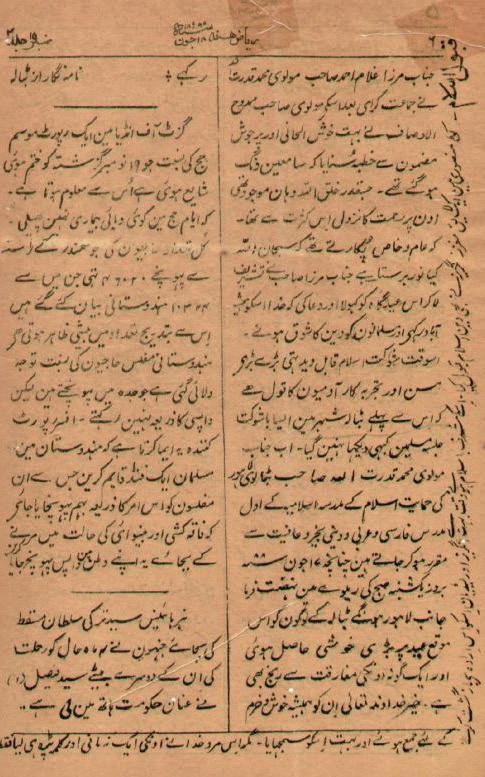




four being made of three by the son is not intelligible to the writer.” (Selections from the Vernacular Newspapers, 1886, pp. 203204)
Riaz-e-Hind’s article and its supplement
On 1 March 1886, the Riaz-i-Hind wrote under the heading “Risala Siraj-ul-Munir, Musannafa Mirza Ghulam Ahmad Sahib Raees-e-Qadian”: “Mirza Sahib’s evident characteristics and spiritual magnificence are far greater than what we can write here in our humble paper to commend it. The beautiful and apt way in which he has defended the religion of Islam and presented irrefutable arguments and clear proofs in proving the Truth, compells us to say that in terms of simplicity [salasat] and excellence of writing, he has surpassed the writings of the ulema of the past and the coming times. Hence, those who have read Mirza Sahib’s book Barahin-e-Ahmadiyya, would undoubtedly agree with us in this matter. Despite the fact that the said book has been advertised for many years and announcements for a reward of 10,000 rupees were also published for anyone who could respond to it, the opponents of Islam and those who are doubtful about the prophethood [nabuwwah] could not have the courage to step into the field of truthfulness to receive this reward. Mirza Sahib did not merely rely on written questions and answers [i.e., books in response to each other] and published special announcements in Urdu and English and circulated them in all the major cities of India and the major countries of Europe and America, so that anyone who is doubtful about Islam being from God and Muhammad[sa] Sahib being the truthful prophet, and are not satisfied with reading the [arguments presented in various] books, ought to stay with him for one year and witness the heavenly signs from their own eyes and consequently accept Islam. In case of the absence of any heavenly signs, they could receive 200 rupees per month in accordance with his capacity for the expenditures of the whole year on food and travel fares. However, when he had no response to this, and the
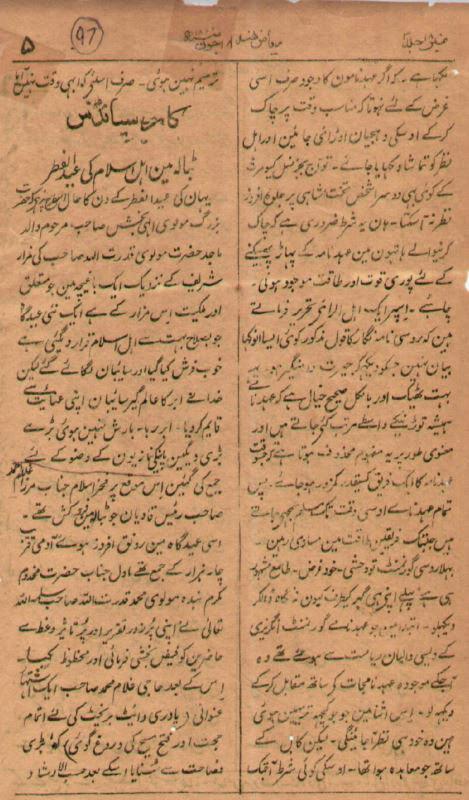




waiting period crossed a limit, he began writing this magazine. In the beginning, the author has mentioned all the prophecies which are yet to be fulfilled and has divided them into three categories: (1) In relation to his own self (2) In relation to his friends (3) In relation to the preachers of the other religions. Hence, the gist of this magazine, which is in fact the preface [muqaddamah] of the book, has been sent to us by the author, and it will be published as a supplement at the end of this issue. The complete details could only be known upon reading it fully.” (Riaz-i-Hind, 1 March 1886, p. 138)
Hence, that gist was then reproduced in the supplement of this issue of Riaz-i-Hind
Rev. GL Thakur Das and Barahine-Ahmadiyya, 1886-87
In 1886-1887, the Christian newspaper Nuri-Afshan of Ludhiana published a series of articles by Rev. GL Thakur Das, in which he objected to the arguments presented by Hazrat Ahmadas in defence of Islam in his book Barahin-e-Ahmadiyya. This series consisted of five parts, which concluded on 14 April 1887.
GL Thakur Das was one of the three Christian missionaries who were settled upon to assist Deputy Abdullah Athim during the between the Promised Messiahas Abdullah Atham, published as Jange-Muqaddas. (The Holy War [Jang-eMuqaddas], p. 3)
GL Thakur Das, in his articles, attempted to malign the beautiful teachings of Islam, the majesty of the Holy Quran, and the blessed character of the Holy Prophetsa. The tone of these articles was very harsh and abusive towards Hazrat Ahmadas as well.
The opponents of Ahmadiyyat must ponder here that Hazrat Mirza Ghulam Ahmadas was facing these reactions and vile language in return for his efforts to prove the magnificence of Islam and the blessed character of the Holy Prophet Muhammadsa.
For instance, in the fourth part of this review, the author commenced in the following words:
“Mirza Ghulam Ahmad Sahib proves Muhammad Sahib to be the Best among all other prophets in the following way….” (Nur-i-Afshan, 20 January 1887, p. 4)
13 AL HAKAM | Friday 3 May 2024
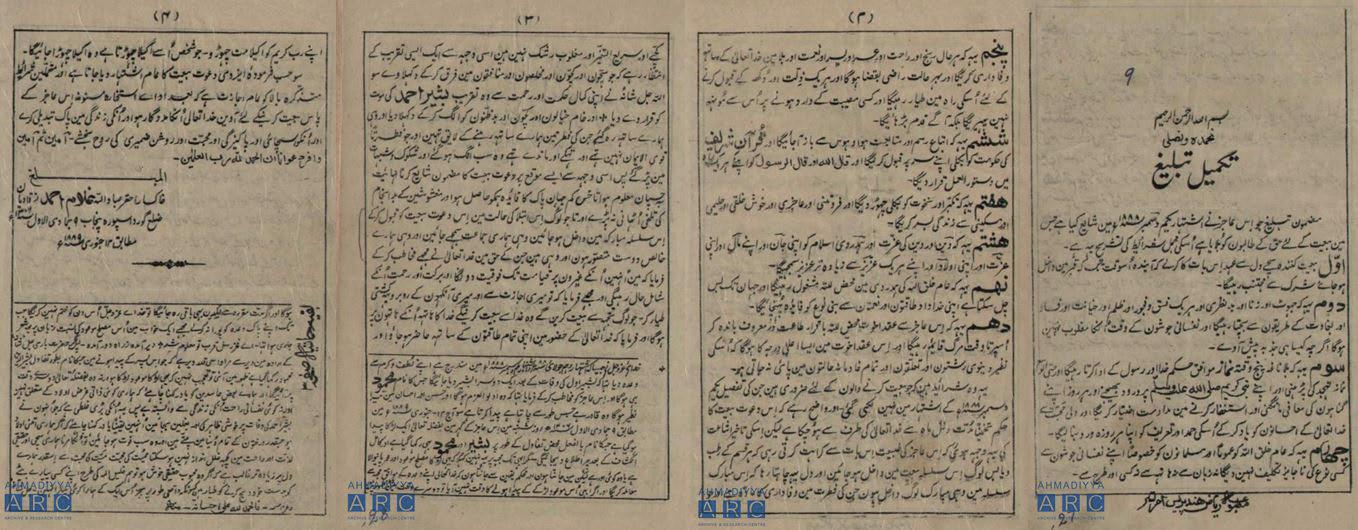
In its 21 April 1887 issue, Nur-iAfshan wrote, “The review on Barahin-eAhmadiyya has now concluded, let’s see what Mirza Sahib responds to it.” (Ibid., 21 April 1887, p. 3)
The author attempted to ‘refute’ the arguments presented by Hazrat Ahmadas in defence of Islam, however, the truth is that Barahin-e-Ahmadiyya comprises unparalleled arguments which cannot be refuted by anyone.
On 2 January 1890, Nur-i-Afshan published a remark by a person named Waiz, about the review on Barahin-eAhmadiyya by GL Thakur Das. The author used inappropriate words and wrote:
“The respected missionary dealt with only that part wherein Mirza [Ghulam Ahmadas] has presented arguments on Muhammad[sa] being a truthful prophet. [...]
“Those who consider Mirza to be a mujaddid and a messenger, and deem Barahin-e-Ahmadiyya to be the completion of proof on his prophethood, for instance, some unwise individuals from Ludhiana and Batala, ought to kindly read this review as well.” (Nur-i-Afshan, 2 January 1890, p. 5)
Surma-e-Chashm-e-Arya, challenge to Munshi Jeevan Das and Nur-i-Afshan’s review
Hazrat Ahmad’s book Surma-e-Chashm-eArya included an ishtihar (announcement), titled “Ishtihar Inaami Paanch So Rupiya” – An announcement for a reward of 500 rupees, in which he wrote:
“This book, meaning the Risala Surmae-Chashm-e-Arya, has been written – at the
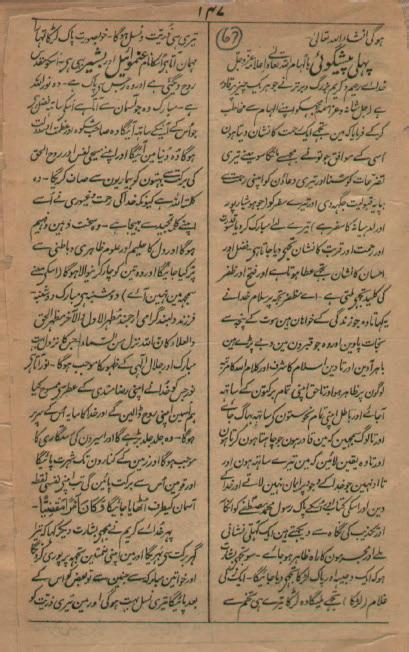




occasion of a debate with Lala Murlidhar Sahib Drawing Master of Hoshiarpur, that completely exposes false beliefs of Vedas –with the claim and certainty that no Arya can refute [the arguments presented in] this book because falsehood has no standing in front of the truth. However, if an Arya Sahib considers all the fundamentals and beliefs of the Vedas which have been refuted in this book to be true and still considers the Vedas and such fundamentals to be established by Esher, then in the name of the same Esher, they ought to write a review on this book and get 500 rupees as a reward. These 500 rupees would be rewarded after the approval by an arbitrator, who will be a Christian missionary or a Brahmo Sahib. Moreover, I agree to the extent that once the refutation is written and published publicly, then if Munshi Jeevan Das Sahib, Secretary of the Arya Samaj Lahore – who is a more wellnatured, honourable and dignified person among the Arya Sahibs of the surrounding areas – could come to a public gathering of Muslim, Arya and Christian scholars, etc., along with his beloved sons, and swears:
“‘Yes, my heart is certain that all the objections of Risala Surma-e-Chashm-eArya, which I have carefully read from the beginning to the end and have carefully understood, have been refuted by this writing. And if I do not say this with heartfelt satisfaction and complete truth, then its harm and disaster may fall on me in this world and on my progeny who is present at this time.’
“After swearing on such a testimony by Munshi Sahib, 500 rupees cash would be rewarded to the refuter in the same gathering. And if Munshi Sahib remained
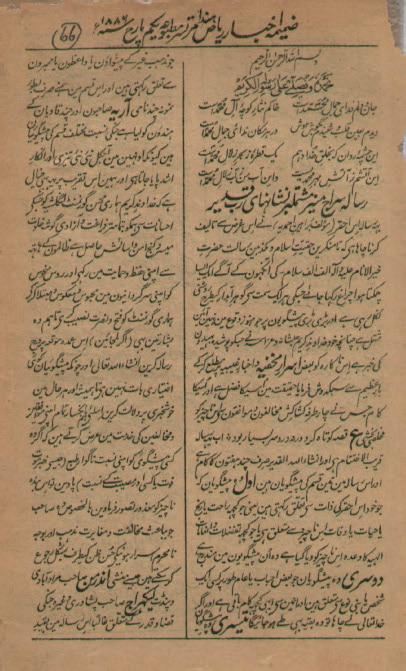




safe from the evil effects of such swearing for a year, then it would undoubtedly be a proof for the Aryas that the said person had sworn with sincerity of heart according to his knowledge and intellect.” (Majmu‘ah-eIshtiharat [2019], Vol. 1, pp. 151-152)
A Christian newspaper, Nur-i-Afshan of Ludhiana, published a review on the Promised Messiah’s book Surma-eChashm-e-Arya, titled “Risala Surma-eChashm-e-Arya” which stated:
“This magazine has recently been written by Mirza Ghulam Ahmad Sahib[as] — author of Barahin-e-Ahmadiyya — with great research and thoughtfulness. If one desires to acquaint themselves with the true reality and nature of beliefs professed by the Arya Samajists and the reality of their Vedas, there is no better way than to read the magazine Surma-e-Chashm-e-Arya from start to end. This magazine has truly exposed the Arya Samajists, and in such a manner that as if this religion has been effaced. Along with this magazine, the author has also included an announcement for a reward of 500 rupees, with the object that in case a refutation is published and Lala Jeevan Das Sahib — who is very prominent among the Arya Samajists in Lahore [Secretary Arya Samaj Lahore] — testifies on oath to the validity and truthfulness of the given refutation, then without any hesitation, 500 rupees would be awarded to the refuter. SubhanAllah [Holy is Allah], how immense purity is this that a reward of such a huge amount is being promised, relying on the oath of the opponent himself. O Arya Smajists! Where are you now? Did you not read the concluding announcement of Surma-e-Chashm-e-Arya? In that, you have been invited to write a refutation of this magazine if you consider the Arya beliefs to be truthful and get a reward of 500 rupees in return. So, O ye who possess jealousy for the Arya Samaj! If you really believe that all those beliefs are true which have been taught to you by Dayanand Sahib, then you ought to manifest the truthfulness of those beliefs by writing a refutation of the said magazine. You should buy this magazine as soon as possible which is available in 1 rupee and 12 annas, excluding tax, or get it from somewhere else and purify Vedas from these objections which are believed by every sensible person that they cannot be alleviated. We ourselves have read this magazine from start to end and we believe, on merits of justice and truthfulness, that in our view, it is not possible at all for anyone to write a refutation to even a single argument from such perfect and decisive arguments. Moreover, we are really anticipating to witness as to how Jeevan Das Sahib could compromise his natural truthfulness, faith and mercifulness, for the sake of Vedas and his community, by taking an oath. And if he refrains from testifying on oath to the truthfulness of that refutation, then this very fact would be a huge proof that he has considered that refutation to be inferior, invalid and false. If one writes a refutation and does not want to prove its truthfulness through the testimony on oath by Lala Jeevan Das, then it makes that person dishonest, as if they do not even trust the prominent leader of their community. Anyway, in our view, there is a huge burden on the shoulders of Lala Jeevan Das Sahib, and undoubtedly, he would be nowadays subject to exceeding distress and
agony, and in reality, this is the first trial to assess his natural truthfulness which has been arranged by the act of God Almighty. Is it possible for any wise, honest and just person to testify on oath to each and every teaching of Pandit Dayanand? Not at all.” (Nur-i-Afshan, 6 January 1887, p. 4)
Review in Ishaat-us-Sunnah
Maulvi Muhammad Hussain of Batala also wrote a review of this book and published it in his magazine Ishaat-us-Sunnah He wrote under the heading “Surma-eChashm-e-Arya”:
“This unmatchable book has been written by the author of Barahin-eAhmadiyya, Mirza Ghulam Ahmad Sahib, Chief of Qadian, which has been sent to me by the courageous author for writing a review. This includes a debate between the respected author and a member of the Arya Samaj which took place in Hoshiarpur about the miracle of splitting of the moon and the teachings of Vedas. In this debate, the respected author has proven the miracle of the splitting of the moon through historical incidents and intellectual arguments. On the other hand, he has refuted – through sufficient arguments — the teachings and beliefs of the Book of Arya Samaj, i.e., Veda, for instance reincarnation, etc. I would present to the readers some insights from that book, by presenting the actual text, instead of writing a review.” (Ishaat-usSunnah, Vol. 9, Number 5, pp. 145-158)
After this, he reproduced some parts from the Promised Messiah’sas book.
Comment by The Paisa Akhbar
The Paisa Akhbar of Lahore stated:
“It would not have been out of place if the Hindus – especially the Aryas – and the Christians, had stood up vigorously in opposition to Mirza Sahib[as], since all of the efforts of Mirza Sahib[as] are in support of the Muslims and against the [anti-Islam efforts of the] Aryas and Christians, as is evident from his famous works such as Barahine-Ahmadiyya, Surma-e-Chashm-e-Arya and later writings.” (“A glimpse into the Promised Messiah’s visit to Lahore in 1892 and a rising tide of opposition”, alhakam. org, 26 April 2024)
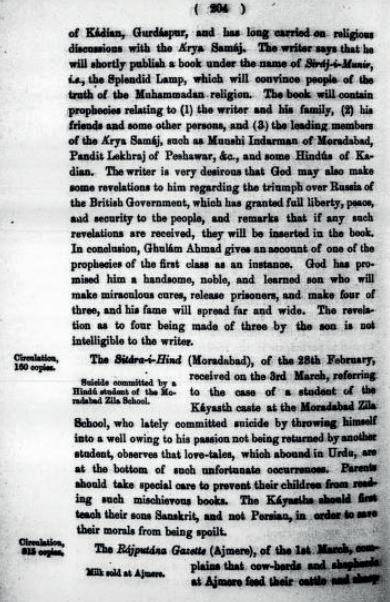
Friday 3 May 2024 | AL HAKAM 14
Shahna-e-Haqq
In its 21 April 1887 issue, Nur-i-Afshan wrote that they had received two books written by Arya Samajists, one of them being “Surma-e-Chashm-e-Arya ki haqiqat aur fan fareb Ghulam Ahmad ki kaifiyyat”. In this book, vile and abusive language was used against Hazrat Ahmadas. It was written by some Hindus of Qadian, and published from the Chashma-e-Nur Press Amritsar with the help of Pandit Lekhram. The article by Nur-i-Afshan also contained abusive language.
In response, Hazrat Ahmadas wrote Shahna-e-Haq, and refuted all those objections and false notions which were levelled against him in the above stated book. He also dealt with some points raised by Pandit Lekhram in his book Takzib Barahin-e-Ahmadiyya
The Nur-i-Afshan then remarked on Shahna-e-Haqq, in its 26 May 1887 issue, titled “Remark Risala Shahna-e-Haqq par”, and continuing its practice, used inappropriate language and raised false allegations on Hazrat Ahmadas
Article by Rev. Thomas Howell Bashir, 1887
On 16 June 1887, an article by Rev. Thomas Howell Bashir of Pind Dadan Khan was published under the heading “Risala Shahna-e-Haqq aur Mirza Ghulam Ahmad Sahib ka Ilhaam”, in which he objected to a revelation of Hazrat Ahmadas and used abusive language.
Thomas Howell Bashir was one of the three Christian missionaries who were settled to assist Deputy Abdullah Atham during the between the Promised Messiahas Abdullah Atham, published as Jang-e-Muqaddas. (The Holy War [Jang-eMuqaddas], p. 3)
“On Whit-Sunday, the Bishop of Lahore held an Ordination at Simla, when Mr. Thomas Howell, a Native Agent of the C.M.S., was admitted to Holy Orders. He will be in-charge of the Jhelum Mission, Pind Dadan Khan, as a “deacon evangelist,” that is, he will not be a pastor of a congregation under the Native Church Council, but be employed directly by the Society as an evangelistic missionary.” (The Church Missionary Gleaner, Vol. 9, 1882, p. 100)
It is important to mention here that the same missionary wrote a review on Hazrat Hakeem Maulvi Noor-ud-Din’sra book Fasal-ul-Khitab li Maqaddama Ahl al-Kitab. Huzoorra wrote this book in obedience to Hazrat Mirza Ghulam Ahmad’sas instruction that he should write a book to refute the false beliefs of the Christians. (Nur-i-Afshan, 31 October 1889, pp. 2-3)
Hazrat Mufti Muhammad Sadiqra states:
“There was a priest named Thomas Howell in Pind Dadan Khan. In response to his questions, Hazrat Khalifatul Masih Ira wrote the book, ‘Fasal-ul-Khitab li Maqaddama Ahl al-Kitab.’ Thomas Howell was later posted to Lahore. When the debate between the Promised Messiahas and Padri Abdullah Atham took place in 1893 and a prophecy was made public about Atham, I wrote a letter to Priest Thomas Howell about that prophecy. In it, I stated that many debates had taken place between
Muslims and Christians in the past, but that very debate had a special superiority over the others because there was a prophecy about Atham. I was in Bhera at the time of writing that letter. I also sent a copy of that letter to my honourable teacher, Hazrat Khalifatul Masih Ira who was in Qadian in those days. Hazrat Maulvi Sahibra presented my letter before the Promised Messiahas. The Promised Messiahas commended the subject of that letter and said, ‘Only Allah helps [him] to write [in such a manner].’”
(Zikr-e-Habib, p. 9)
Hazrat Ahmadas inaugurated the Eid Gah in Batala, 1888
While mentioning the events of the 1880s, it will be interesting to present a news report about Eid-ul-Fitr in Batala that was published in Riaz-i-Hind of Amritsar. The reported stated under the heading “Batala mein Ahl-e-Islam ki Eid-ul-Fitr”:
“On this occasion, Fakhr-e-Islam Respected Mirza Ghulam Ahmad Sahib, Chief of Qadian – who was in Batala at the time – graced the same Eid Gah. There were around 4,000 people present. [...] Haji Ghulam Muhammad Sahib very eloquently read out an ishtihar [of Hazrat Ahmadas which he issued on 9 June 1888], titled ‘Paadri Weitbrecht ke liay Ittmam-e-Hujjat aur Fateh Masih ki Darogh-goie’. Following this, in accordance with the instruction from respected Mirza Ghulam Ahmad Sahib, Maulvi Muhammad Qudratullah led the congregation [in Eid prayer]. It was such a great blessing being showered upon the people who gathered there in huge number that both the common and prominent of those were stating that ‘SubhanAllah, what a nur [divine light] is being showered that respected Mirza Sahib has inaugurated this Eid Gah and prayed that may God always keep it populated and may the Muslims be inclined towards the Faith.’ This occasion was a great scene of the grandeur of Islam. It was acknowledged by many prominent and experienced people that such a majestic Muslim gathering has never been witnessed previously in the city of Batala.” (Riaz-iHind, 18 June 1888, pp. 5-6)
Sabz Ishtihar [The Green Announcement], 1888
On 1 December 1888, Hazrat Ahmadas published an ishtihar on the demise of Bashir Awwal, titled “Haqqani Taqrir bar Wafaat-e-Bashir” – A Discourse upon the Demise of Bashir. Since it was published on a green paper, it is known as the “Sabz Ishtihar”, i.e. The Green Announcement. In this announcement, Huzooras said:
“In my case, however, none of the prophecies that I have made on the basis of revelation have turned out to be wrong. Divine revelation had clearly foretold the birth of two boys, and also that some of my children would die in infancy. See the announcements of 20th February 1886 and 10th July 1888. In accordance with the first prophecy, a child was born and he soon died. The second child, whom the revelation refers to as Bashir the Second, and also as Mahmood, has not been born till today, 1st December 1888. But, in accordance with God’s promise, he will most certainly be born within the time stipulated in the prophecy. Heavens and earth may pass,
but the word of God can never be averted. Fools laugh at His revelations and ridicule His holy tidings because the end is hidden from their eyes.” (The Green Announcement [Sabz Ishtihar], p. 8 [footnote])
Thereafter, in accordance with the prophecy made on 20 February 1886 and the later announcements by Hazrat Ahmadas, a son was born on 12 January 1889 who was named Bashir-ud-Din Mahmud Ahmad.
Nur-i-Afshan’s response
In response, Nur-i-Afshan published an article on 31 January 1889 and, continuing its practice, mocked the prophecies and revelations of Hazrat Ahmadas. The article mentioned the birth of Hazrat Sahibzada Mirza Bashir-ud-Din Mahmud Ahmadra and wrote that Hazrat Ahmadas named him Bashir and Mahmud as a tafavul. Addressing Hazrat Ahmadas, it wrote, “Your claim to be a prophet has no proof.” (Nur-i-Afshan, 31 January 1889, p. 1)
The article also referenced the statement of Hazrat Ahmadas which he announced in an ishtihar dated 12 January 1889, titled “Takmil-e-Tabligh”, where Huzooras mentioned the birth of his son and stated that he was named Bashir and Mahmud, and that it will be announced after being categorically informed from God whether that son is the Promised Son or someone else. Huzooras wrote that it had not yet been revealed to him as to whether this son was the Musleh-e-Maud and the son who was destined to live a long life. Huzooras then mentioned the following Persian couplet which was revealed to him in relation to the Musleh-e-Maud:
“O pride of the messengers! I have been made aware of your high rank in the nearness of Allah; You have come after a wait since you have come from a very far place.”
Huzooras continued:
“Hence, if in accordance with the decree of the Exalted and the Sublime God, this ‘wait’ means the amount of wait which has occurred in the birth of this son who has been named Bashir-ud-Din Mahmud as a tafavul, then it should not be a surprise if this very son is the Promised one.”
(Majmu‘ah-e-Ishtiharat [2019], Vol. 1, p. 208 [footnote])
The article of Nur-i-Afshan objected that Hazrat Ahmadas refrained from mentioning any revelation in this regard. However, the answer to their objection has been given by Hazrat Ahmadas in his above-mentioned statement, that he had not yet been categorically revealed by God Almighty about this matter, and would announce upon receiving any divine information. And this is the practice of all the Prophets and Appointed Ones of Allah the Almighty.
Once Allah the Almighty revealed to him the insight on this matter, he made an announcement to the world.
An excerpt from Siraj-e-Munir
In his book Siraj-e-Munir, Hazrat Ahmadas has clearly stated:
“The fifth prophecy which I announced was in regard to the birth of my son Mahmud that he will be born and he will
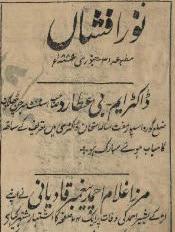
be named Mahmud. And this prophecy was published in the form of an announcement on a green paper that is still preserved and was distributed to thousands of people. Therefore, that son was born within the time period of the prophecy [of 1886], and has now entered his ninth year of age.” (Siraj-e-Munir, Ruhani Khazain, Vol. 12, p. 36 [footnote])
Conclusion
Hazrat Mirza Ghulam Ahmadas came to the battlefield of Jihad by Pen and for this reason, the religious clergy and the press were determined to oppose him and left no stone unturned in maligning his blessed character in their effort to veil the magnificence of Islam and the Holy Quran which were highlighted by this great champion of Islam in his writings. The opponents remained unsuccessful in all of their efforts!
The grand prophecy of 20 February 1886 was fulfilled by Allah the Almighty in 1889, which was a great sign as demanded by the opponents of Islam. Hazrat Ahmadas was blessed with the Promised Son — the Musleh-e-Maud — Hazrat Mirza Bashirud-Din Mahmud Ahmadra
In March 1889, when Hazrat Ahmadas established the Ahmadiyya Muslim Jamaat and then claimed to be the Promised Messiah and Mahdi, it was as if the whole world had begun to oppose him; Christian missionaries, Arya Samajists, and even the Muslim clerics. The Muslim clerics turned into his staunch enemies, instead of joining his efforts in the service of Islam. Its details have been narrated in the following articles:
“Hazrat Ahmad’s claim to be the Promised Messiah and opposition from the religious clergy and press” (published on 19 April 2024)
“A glimpse into the Promised Messiah’s visit to Lahore in 1892 and a rising tide of opposition” (published on 26 April 2024)
This was just the beginning of an era of severe opposition, and the following years saw an unprecedented rise in the opponents’ efforts to halt his mission and to defame him. However, divine help and succour was with him at all times, hence, he continued to succeed in his mission to prove the magnificence of Islam and highlighting the blessed character of the Holy Prophet Muhammadsa
15 AL HAKAM | Friday 3 May 2024
شدمممعلوتوبقرسلرفخرےا ہمدآرودہارزِۂمدآیرد
Origins of fundamentalism and the revival movement of Islam Ahmadiyyat – Part I
Many people think they understand the term fundamentalism; however, when asked to define it, they are unable to do so. A century after it was first used, there is still not one agreed universal definition of fundamentalism.
For Malise Ruthven, it is “a religious way of being that manifests itself in a strategy by which beleaguered believers attempt to preserve their distinctive identities as individuals or groups in the face of modernity and secularisation.” (Malise Ruthven, Fundamentalism: A Very Short Introduction [New York: University of Oxford Press, 2007], pp. 5-6)
David Harrington Watt suggests that fundamentalism has a defining characteristic of resisting modernity, and it tends to “read texts literally, a predilection for getting involved in politics, and a proclivity for militant rhetoric and action.” (David Harrington Watt, “Fundamentalists of the 1920s and 1930s”, in Fundamentalism: Perspectives on a Contested History, eds by Simon A. Wood and David Harrington Watt [Columbia: University of South Carolina Press, 2014], p. 18).
The same concept is much broader for Simon Wood who speaks of fundamentalism as an idea that can be understood in “terms of resistance to modern ‘threats’ or opposition to modern secularism.” (Simon A. Wood, “The Concept of Global Fundamentalism: A Short Critique”, in Fundamentalism: Perspectives on a Contested History, eds by Simon A. Wood and David Harrington Watt [Columbia: University of South Carolina Press, 2014], p. 125)
All three of these definitions give fundamentalism a religious connotation while also associating it with the idea that it resists and confronts modernity. However, despite having similar descriptions, the term still has ambiguities to its applicability and one definitive categorisation of the concept does not do it justice.
Fundamentalism – The term and its origins
The concept of fundamentalism has its origins in Protestant scholarship, and it did not always have negative implications. Broadly, revival and reform movements
in the Abrahamic religions (Judaism, Christianity, and Islam) have been associated with the idea of fundamentalism because they tend to stress the need to return to the basic roots of the religion and its scripture. For this research piece, the religion of Islam is the focus.
Through a study and analysis of the beliefs of the Ahmadiyya Muslim Jamaat, the aim is to explain whether fundamentalism supposedly always carries the risk of inspiring extremism because it is based on the revival of a religion’s teaching. Islam Ahmadiyyat is, of course, also a revival movement, but it is one that actively refutes the widely known view that returning to the original scripture and its teaching incites extremism, oppression, or serves as a resistance to civilisation.
In 1910, two Christian brothers Milton and Lyman Stewart, with a successful oil business in the United States, sponsored a five-year programme for the publication and distribution of free-of-cost pamphlets about Protestant Christianity. The pamphlets were to be distributed to English-speaking Protestant pastors, evangelists, missionaries, theological professors, theological students, and other Protestant Christians etc. The booklets were a collection of essays authored by several Christian writers and were edited by three evangelists: A.C. Dixon, Louis Meyer and Reuben Torrey. Titled The Fundamentals: A Testimony to the Truth, the pamphlets were a reformatory programme to stop the erosion of Protestant Christianity’s fundamental beliefs. (Ruthven, Fundamentalism, p. 7)
Those fundamental beliefs were the “inerrancy of the Bible; the direct creation of the world, and humanity; the authenticity of miracles; the virgin birth of Jesus, his Crucifixion and bodily resurrection; the substitutionary atonement; and his imminent return to judge and rule over the world.” More than three million copies of the booklets were circulated and were spread and shared on both sides of the Atlantic. For the authors of The Fundamentals, the booklets were a form of reformation for the “sizeable portion of Christendom” who had fallen into “grievous error.”
Moreover, the publication of these pamphlets was to remove the doubts and mistrust of those Christians who had any “uneasy or distrustful feeling” regarding the Bible. (Ibid.; Watt, “Fundamentalists

of the 1920s and 1930s, p. 19.; James Orr, “Holy Scripture and Modern Negations,” in The Fundamentals: A Testimony to the Truth, ed. George M. Marsden [New York: Garland, 1988], pp. 31-45)
Scholars writing on the origins of fundamentalism also agree that the term did not always have negative connotations nor was it a term of abuse when Christians were making efforts to preserve their original teachings. (Ruthven, Fundamentalism, p. 5)
In the case of Islam; however, the same understanding is not demonstrated owing to the representation given to the religion and its followers by politicians, media and even academics. If one were to study the reformist and revival movements of Islam, mostly established in the eighteenth and nineteenth centuries, almost all argue for a return to the basic teachings of the Holy Quran. Without an awareness of the origins of the concept, and with the constantly changing nature of how it is viewed at present, it may be easy to conclude that fundamentalism is a negative idea that challenges and confronts Western values and modernity. Of course, the cases of terrorism carried out in the name of Islam do not help this misunderstanding and stereotypical view of Muslims in the West.
Reformist movements in Islam
If Christian fundamentalism in the early twentieth century and Islamic fundamentalism share the same definition
of what they intend to preserve – that is their original teachings – then it is important to distinguish and explain why the revival movements in Islam became the supposed inspiration for extremism. The reformist movement of Wahhabism in Islam founded in the eighteenth century places a significant emphasis on following the Holy Quran word-for-word. (Carol E. B. Choksy and Jamsheed K. Choksy, “The Saudi Connection: Wahhabism and Global Jihad”, World Affairs, vol. 178, no. 1 [2015], pp. 23- 34.)
The very premise of Wahhabism misses an important point of linguistics; that taking the Holy Quran word-for-word is not always possible. The Holy Quran addresses this itself. It says:
“He it is Who has sent down to thee the Book; in it there are verses that are decisive in meaning—they are the basis of the Book—and there are others that are susceptible of different interpretations. But those in whose hearts is perversity pursue such thereof as are susceptible of different interpretations, seeking discord and seeking [wrong] interpretation of it. And none knows its [right] interpretation except Allah and those who are firmly grounded in knowledge; they say, ‘We believe in it; the whole is from our Lord.’— And none heed except those gifted with understanding.” (Surah Aal-e-‘Imran, Ch.3: V.8)
In the Five-Volume English
Friday 3 May 2024 | AL HAKAM 16
UK
Ayesha Naseem
Continued on next page >>
Jon Tyson | Unsplash
Commentary of the Holy Quran, it has been explained:
“According to the verse, the Quran has two sets of verses. Some are
(decisive in meaning) and others
(capable of different interpretations). The right way to interpret a
verse is that only such interpretation of it should be accepted as agrees with the verses that are
and all other interpretations should be dismissed as incorrect.
“It is on record that one day the Holy Prophetsa, on hearing people disputing about the interpretation of certain verses of the Quran, angrily said: ‘Thus were ruined those who have gone before you. They interpreted certain parts of their scriptures in such a manner as to make them contradict other parts. But the Quran has been so revealed that different parts of it should corroborate one another. So do not reject any truth by making one part contradict the other. Act on what you understand thereof and refer that which you do not understand to those who know and understand it.’ (Musnad)
“The above hadith also refutes the theory of abrogation, for it speaks of the Holy Quran as a Book of which all parts corroborate one another and condemns those who think that some of its verses contradict others.” (Five Volume English Commentary, Vol. II, pp. 455-456)
This explanation challenges the commonly known allegation against Islam that the inspiration for terrorist groups like Al-Qaeda and ISIS stems from their following of the Holy Quran. The ideological claims of these revival movements taking everything in the Holy Quran literally are also dismissed by the sacred text itself so even if these groups claim to be the “followers” of Islam or the Holy Quran, only they are responsible for such a lie and an error so grave of its nature.
The Ahmadiyya Movement
A revival movement by nature, the Ahmadiyya Muslim Community’s main objective is to instil the belief and love


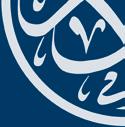

of Allah Almighty in people, to serve humanity irrespective of backgrounds, and to promote the true teachings of Islam that have been misused by clerics and unqualified scholars. (The Objectives of the Ahmadiyya Muslim Community, www. alislam.org)
Islam Ahmadiyyat also emphasises the importance of returning to the ultimate teachings of the Holy Quran – but encourages the use of reason and interpretation where commandments are complex or require context, – followed by the ahadith (narrations) of the Holy Prophetsa of Islam. Contrary to how some people understand the movement as a “liberal” form of Islam, the Ahmadiyya Muslim Community has always avoided wearing a term that defines its movement. Ahmadiyyat considers itself to be an Islamic movement only with the sole purpose and objective of practising and propagating Islam. In doing so, it directly challenges the common understanding that religious fundamentalism always connotes coercion and creates fears of modernity and Western values.
Ahmadiyyat advocates for the implementation of the guidance and commandments set out in the Holy Quran regarding cultural and social practices, but at the same time, also encourages the use of modern advancements in technology, science, education, medicine etc., to provide benefits to mankind and wider society. The Holy Quran also encourages this as it contains prophecies of the advancement in the world with regard to medicine, travel, and publication among others.
Western fear of sharia and Islamic leadership
One of the biggest issues that keeps recurring in the debate around Islam and fundamentalism is the fear of Islam being spread by force with the establishment of a repressive Islamic leadership in the West. Although other systems of Islamic government have widely used the term “Khalifah” and many political ones have existed (Spain, Turkey etc), most Muslims generally accept only one religious
Khilafat, which was established, on the precepts of prophethood, after the demise of the Prophet of Islam.
In one narration of the Holy Prophetsa, we find the following:
“Prophethood shall remain among you as long as Allah wills. He will bring about its end and follow it with Khilafat on the precepts of prophethood for as long as He wills and then bring about its end. Kingship shall then follow, to remain as long as Allah wills and then come to an end. There shall then be monarchical despotism which shall remain as long as Allah wills and come to an end upon His decree. There will then emerge Khilafat on the precepts of prophethood.” (Musnad Ahmad bin Hanbal, Kitab ar-riqaq, Bab alindhari wa t-tahdhir)
In contrast to what many non-Muslims fear and what Western historians allege, just as the first, this second era of Khilafat is also free of any worldly aspirations and would continue till the end of times.
The Ahmadiyya Khilafat was established after the demise of the Promised Messiahas in 1908 – and in fulfilment to the prophecy of the Holy Prophetsa, this is the second spiritual Khilafat in Islam, and free from all kinds of worldly aspirations. It intends to lead and guide the followers of Islam Ahmadiyyat according to the teachings of the Holy Quran and the Holy Prophet, peace and blessings of Allah be on him. Khilafat-e-Ahmadiyya is currently in its fifth era under the blessed leadership of Hazrat Mirza Masroor Ahmad, Khalifatul Masih Vaa, who has clearly stated:
“Let me make it clear that the institution of Khilafat leading the Ahmadiyya Community has no interest in power or government. Rest assured that true Khilafat has no worldly or political objectives and gains and neither is it gifted to those who have a lust or greed for it. The sole concern of the Ahmadiyya Khilafat is that the people of the world come to recognise their Creator and bow down before the One God and secondly create the spirit of love and harmony among the people of the world.” (“Islam – A Threat or a Source of Peace”, www.alislam.org)
Change in the understanding of the term fundamentalism
There is widespread agreement among scholars that the change in the understanding of fundamentalism and its close association with Islam was due to the Iranian Revolution and the Gulf crisis in the aftermath. Peter Antes argues that the case study of Iran shocked the Western governments and analysts alike as for the “first time in modern history, a revolution was successful based on a religion that […] had its roots not in Western thoughts but in a religious setting that seemed to reject modernisation.” (Peter Antes, “Religious Fundamentalism – A Misleading Concept?”, in Religious Fundamentalism in the Age of Pandemic, ed. by Nina Käsehage [Bielefeld: Transcript Verlag, 2021], p. 253.)
Here is a classic example of “Othering” of the East once again; this problematic terminology around revolutions suddenly changes if the experiences of those places do not go according to the typical Western playbook, and if their revolutions are of a religious nature. Even at present, where Ukrainians confronting the Russian invasion is a struggle for liberation and freedom from illegal and unjust occupation, Palestinian resistance demanding liberation from Israel’s occupation (recognised to be in breach of international law by the United Nations) is considered militant.
The use of violence and coercion and one’s views on it can obviously be debated and deconstructed elsewhere – for example Islam does not permit that harm be inflicted on civilians including noncombatant men, women, children, and the elderly – but it is certainly interesting that the standards to the struggle for liberation change depending on the nations involved.
The response from the international community and the unjust use of the right to veto in the United Nations also adds to these double standards and the hierarchy with which the Security Council operates despite being the ultimate neutral organisation responsible for maintaining peace in the world, due to the power of some wealthy and privileged nations.
17 AL HAKAM | Friday 3 May 2024
مۡکُحۡمُ
ہُبِاشَتَمُ
ہُبِاشَتَمُ
مۡکُحۡمُ
<<
Religion, Faith, History, Society ... WRITE TO US Info@alhakam.org * For more information, visit www.alhakam.org/write-to-us/
Continued from previous page
Ahmadiyyat’s global expansion and progress across continents
Al Fazl, 22 April & 6 May 1924
Lectures
During the compilation of this report, this humble one, [Hazrat Maulvi Muhammad Dinra] delivered several lectures in various societies. In particular, lectures were given in some psychological societies, and many misunderstandings by the listeners about Islam were eliminated. Apart from objections on the Jihad of Sword, Polygamy, and Slavery [in Islam], a new allegation was raised [as to why the Holy Quran is translated] when Prophet Muhammadsa warned against its translation.
An exceptional lecture was delivered in a church by our brother Chaudhry Abdul Hameed Sahib. Although he is engaged in his studies, he sometimes delivers lectures in our mosque on Sundays, and also helps me in every way possible. Likewise, Muhammad Yusuf Khan Sahib also provides his assistance. Moreover, the respected Fazl Karim Khan Sahib Durrani has arrived at our mosque, and he also assists me in speech and writing work to the best of his abilities. May Allah the Almighty grant them the best of rewards.
Divorce
Divorces are on the rise here [in America]. As a matter of fact, this happened because Christianity forsook the natural need [of mankind]. Divorces are taking place on petty excuses. For example, a husband came home with mud on his boots, and his wife filed for a divorce. In another incident, a man came home tired, and for some reason, he couldn’t converse with a smile on his face, so it resulted in a divorce. I don’t know why priests are going to India and China. They should focus their energies on their own homeland. Here, people are openly abandoning Christianity. Furthermore, scores of priests are denying the divinity of Messiah, his virgin birth, miracles, death on the cross and bodily ascension to heaven. The general state of common people is also becoming like that of the ancient Romans and Greeks. Some people are so oblivious to Christianity that they don’t even know who Jesus was or to which country he belonged.
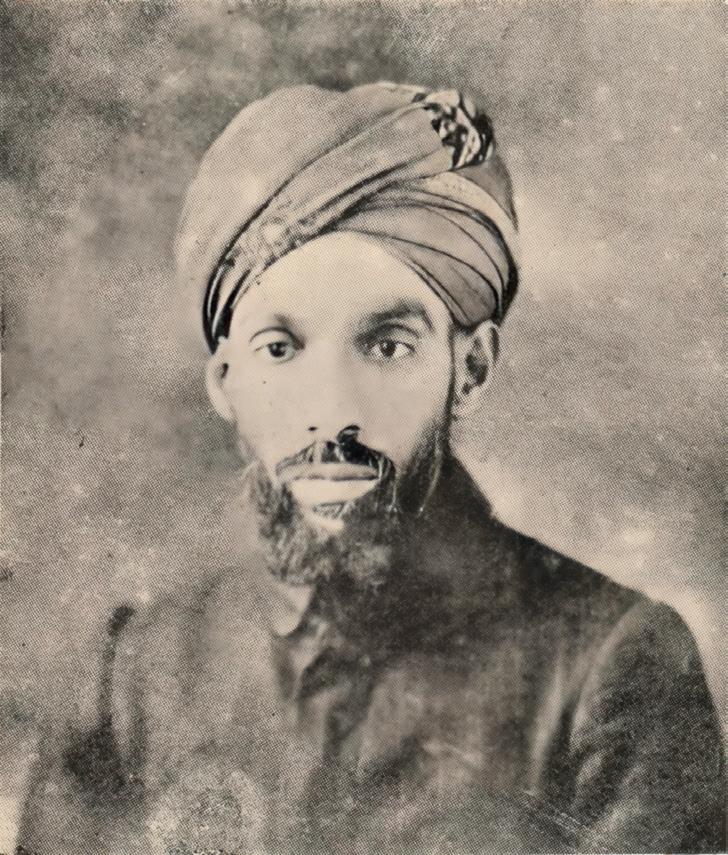




Teaching of Christianity
As far as the teaching of Christianity is concerned, it is quite apparent as to how much it can meet the needs of the world. Recently, while debating in the Parliament on naval preparedness, Admiral Sveter said, “If we are to rely for self-defence upon the sermon on the mount, [then] God help us.”
The Moslem Sunrise
Many Indian friends need to pay their dues to the magazine, The Moslem Sunrise It is not possible for me to send letters [reminding our friends in India]. On the other hand, I can’t afford to hire a clerk for the time being. Meanwhile, apart from the magazine, there is so much work that it is impossible for me to find any spare time. In fact, preparing the articles for the magazine and then its dispatching is rather a significant task in itself. Therefore, the friends [in India] are requested not only to pay their dues without waiting for any notice or reminder, but in fact, they should lend their additional support. The actual expenses of The Moslem Sunrise are much more than the amount collected through contributions and many of its copies have to be sent free of charge. Hazrat Mufti [Muhammad Sadiqra] was also continuing it on the same monetary assistance. Moreover, assistance can be rendered in another form as well, and that is, more and more subscribers are provided. However, the friends have not paid any attention to it. It is hoped that every member of the Jamaat will participate in this beneficial work to the
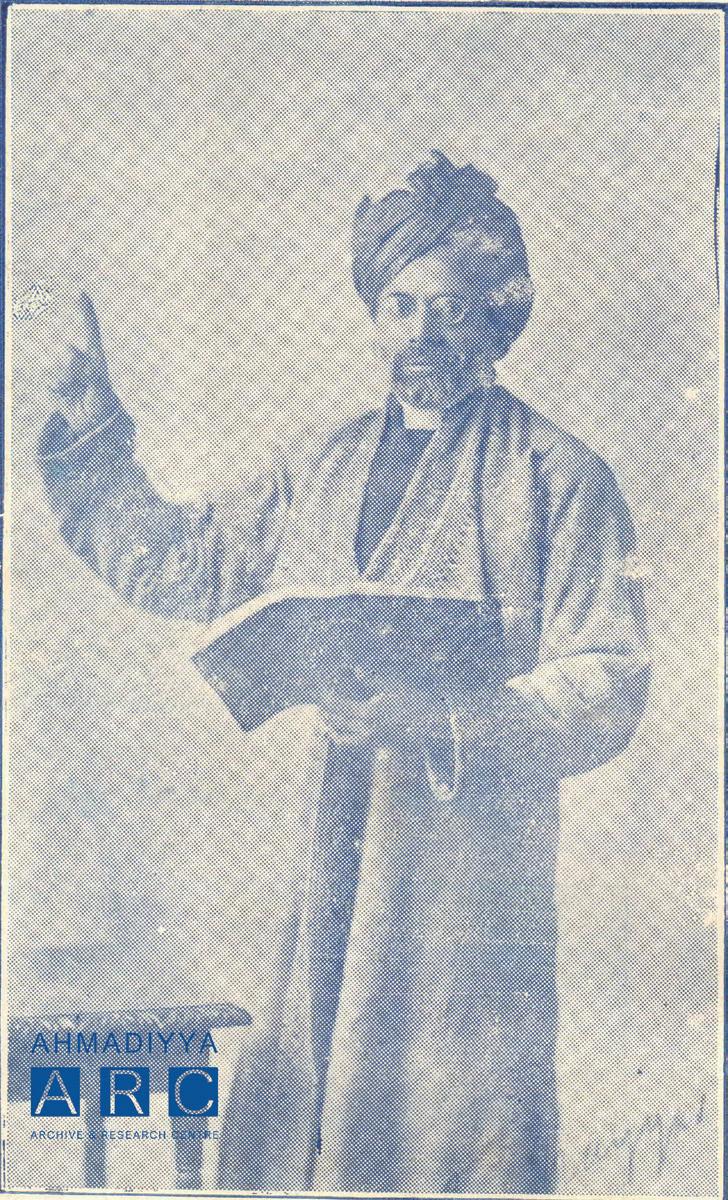
fullest possible extent, and attain the fair share of their reward from God Himself.
– Muhammad Din
Al Fazl, 6 May 1924
Hazrat Maulvi Abdur Rahim Nayyarra (1883-1948)
West Africa
Allah the Almighty is now fulfilling His promise of spreading the name of the Promised Messiahas to the corners of the world. By the grace of God, remarkable work is underway in West Africa. The readers will find reports of Ahmadi missionaries from two countries under the title, “Nigerian Letter” and “Letter from Gold Coast,” in the latest publications of Al Fazl [1924]. As this humble one is currently the permanent missionary to West Africa, besides reports of missionaries and workers from different parts of these countries, letters are also being exchanged. Keeping them in view, I am pleased to inform the Jamaat with a heart full of praise to Allah the Almighty that the seed sown with absolute sincerity, as a result of the prayers of Hazrat Khalifatul Masih [IIra], is now growing into a flourishing tree. The Lagos Jamaat, in particular, is working
with great zeal and effort, and making huge sacrifices. May Allah bless their efforts, Amin
Guests
Muhammad Ismail Sheta, former deputy imam of Lagos Jamaat and headmaster of the Talim-ul-Islam School Lagos, who is going to Egypt for the completion of his Arabic education, along with Bakare Oshodi, former guard of Nigerian Railways, left Lagos with another distinguished non-Ahmadi friend with the intention of performing Hajj-e-Baitullah [pilgrimage to the House of Allah, the Holy Ka‘ba]. They are travelling to their desired destination via the London route. All three friends are staying at the Dar at-Tabligh Ahmadiyya. Those who have witnessed them are appreciating their sincerity and friendliness. Ismail Sheta is the grandson of the famous elder of Lagos “Sheta Bey” and the son of the famous cleric of Lagos “Haji Isa Sheta Ibn Sheta Bey”. The late Sheta Bey was given the title of “Bey” by Sultan Abdul Hameed. Sheikh Abdullah Quilliam was sent to Lagos by the Sultan to inaugurate their mosque. Bakare Oshodi belongs to the famous Oshodi family of Lagos and is the descendant of the King’s General Oshodi. Hence, both of them are the pride of esteemed families of Lagos and, by the grace of God, their influence will be very beneficial in the future progress of Islam and the spread of Ahmadiyyat in West Africa, insha-Allah. The third friend is from the royal family of Lagos and possesses great love for Ahmadiyyat.
Sincerity
An Englishman asked Sheta and Oshodi if they liked London. In response, they said, “What is there to like here? We are facing freezing cold temperatures. In fact, we have spent more on our journey and haven’t had much comfort. We [endured all this] just to visit our maulvi, (this humble servant of Mahmud[ra]), [Hazrat Maulvi Abdur Rahim Nayyarra]. If it were not for him, we would have gone straight [to Mecca].”
May Allah the Almighty grant them a long life, increase their sincerity, and make them a true servant of [Hazrat Mirza Ghulam Ahmadas] of Qadian.
Another Ahmadi friend has departed
Friday 3 May 2024 | AL HAKAM 18
Hazrat Maulvi Muhammad Dinra (1881-1983)
100 Years Ago...
Continued on next page >>
Hazrat Maulvi Muhammad Din
Hazrat Maulvi Abdur Rahim Nayyarra
8th annual Peace Conference held by Jamaat-e-Ahmadiyya Norway
Faraz Ahmed Ali
Secretary Umur-e-Kharjiyya, Norway
Jamaat-e-Ahmadiyya Norway held its 8th annual Peace Conference at the Baitul Nasr Mosque in Oslo, Norway on 18 April 2024, titled “World Crisis and the Pathway to Peace”, which was moderated by General Secretary Jamaat Norway, Syed Shan Ahmed Sahib.
The formal event commenced with the recitation from the Holy Quran, followed by a speech by Naib Amir and Missionaryin-Charge, Musawar Ahmad Shahkar Sahib, who introduced the Ahmadiyya Muslim Jamaat, Promised Messiahas, and Khilafate-Ahmadiyya.
After the introduction, a video clip was shown featuring Hazrat Khalifatul Masih
Vaa, highlighting some excerpts from his addresses at the 2023 and 2024 annual Peace Symposiums, where he emphasised that for many years, the world has been threatened by devastating wars, and the only way to prevent this destruction is to establish peace worldwide.
This was followed by a speech by the Mayor of Oslo, Anne Lindboe, who thanked the Ahmadiyya Muslim Jamaat for inviting her to the event. She highly appreciated the Peace Conference which carries the slogan “Love for All, Hatred for None.”
Another speech was delivered by the Deputy President of a political party, Marian Hussain, mentioning that while there are rules for war, Israel is not abiding by those rules, resulting in the loss of innocent lives. She praised the efforts of the
Tabligh Day organised
on Solomon Island
Masood Ahmed Shahid Missionary, Australia
Jamaat-e-Ahmadiyya Solomon Islands organised a Tabligh Day on 17 March 2024 in Honiara, attended by eight local Jamaat members and myself as a visiting missionary from Australia.
The programme included the distribution of pamphlets on “Muslims for Peace”, “Islam: The Religion of Peace and Tolerance”, “Muhammadsa in the Bible”, and
<< Continued from previous page
from Kano on foot with the intention of performing Hajj. He will meet Oshodi in Mecca, insha-Allah
Germany
Brothers, Mubarak Ali Sahib and Ghulam Farid Sahib, have published a treatise in response to those non-Ahmadis who wanted to spit in the wind and throw dust on the sun. These people, by hiding facts, began spreading this propaganda that [God forbid], the missionaries of the Ahmadiyya Jamaat were spies and agents of the British Government. In this treatise, Ahmadi missionaries have substantially clarified their position. A sufficient number of its copies will also be distributed here as this misinformation is spreading among the non-Ahmadi students in London as well.
“The Promised Messiah Has Come”. These pamphlets were specifically selected to remove misconceptions about Islam and also to address the target audience, i.e., Christians.
In total, approximately 950 pamphlets were distributed in two and a half hours of this programme, questions were answered, and some people requested the Jamaat’s contact information as they wished to make further enquiries.
France
Brother Anderson writes that the copies of the French translation of the book, [The Philosophy of] the Teachings of Islam, which were sent to him earlier, have been distributed, and more copies are required. He is distributing these copies to various societies and placing them in libraries. May Allah the Almighty grant him the best of rewards.
Lectures
A large gathering was held last Sunday morning at Hyde Park, with discussions being carried out on the Truthfulness of Islam, Tawhid [Oneness] of God, the Existence of Allah, and the Advent of the Promised Messiah. People eagerly request for literature, and we present them with all
Jamaat in addressing the world’s issues and advocating for peace for many years.
The President of Humanity First Norway, Michael Majid Khokhar Sahib, presented a report on a school project in Niger, showing images of barren land being made cultivable and mentioning clean water, fruits, various medicines, and toys for children.
The next speech was given by Nancy Herz, who emphasised that according to the current theme, we should search for solutions to the world’s issues and find the path to peace.
The concluding speech was delivered by Amir Jamaat-e-Ahmadiyya Norway, Zahoor Ahmad Chaudhry Sahib. He quoted the teachings of the Holy Quran that in a conflict between two parties, a third party

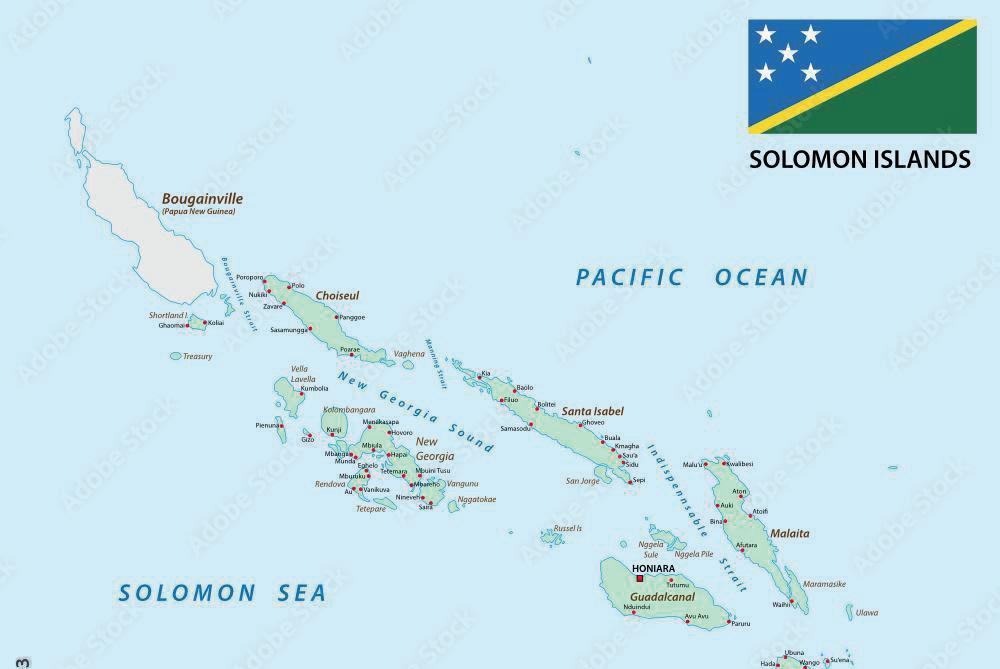
should mediate and justice should prevail. This was followed by a silent prayer and meal for the guests. The event was attended by more than 200 people, including 90 guests.
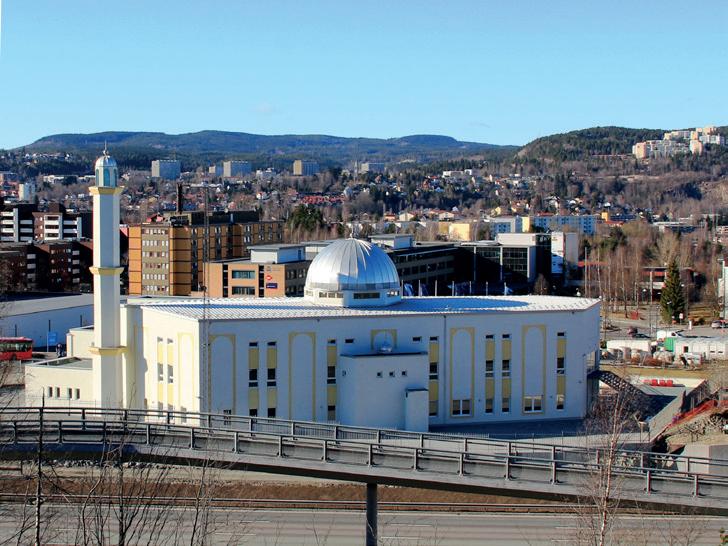

the available [matter].
The seeds are being scattered, and we are hopeful to Allah the Almighty that one day, they will bear fruit. On Sunday evening, as per usual, a lecture was held on the Rites of Hajj at Dar at-Tabligh Ahmadiyya, and our newly arrived African friends also attended it.
East India Association
The retired English officers of [British] India have established an association by the name of “East India” in London. I am also a member of this association. Mr French of the Indian Civil Service spoke on the subject of Indian Industry. Sir Hung Hestand was the president of the gathering. Since the lecture contained repeated phrases like, “the devastating flood of Muslim attack,” I called the attention [of the audience] to this speech, and apart from other things,
I said [to the speaker], “You are referring to the Muslim attacks in the same breath as destructive, and then also amplifying your discourse with it. Weren’t the Mughal Muslims?” I expressed that responsible English speakers should take great care in voicing their opinions, etc. With this speech, besides defending Islam, I intended to make people aware of our presence. Consequently, some people shook hands after the speech and also invited us for tea. We are doing everything possible to [spread the message of Islam]. May Allah accept [our humble efforts].
– Abdur Rahim Nayyar
(Translated by Al Hakam from the original Urdu, published in the 22 April and 6 May 1924 issue of Al Fazl)
19 AL HAKAM | Friday 3 May 2024
Image courtesy of AMJ Australia
Bait-un-Nasr Mosque at Furuset in Oslo | Wiki Commons
Friday Sermon
Mubarak Mosque, Islamabad, Tilford, UK
5 April 2024
Muhammadsa: The Great Exemplar
After reciting the tashahhud, ta‘awwuz and Surah al-Fatihah, Hazrat Khalifatul Masih Vaa recited verse
63 of Surah an-Naml:
“Or, Who answers the cry of the distressed person when he calls upon Him, and removes the evil, and makes you successors in the earth? Is there a god with Allah? Little is it that you reflect.”
In this verse, Allah the Almighty states that He answers the prayers of the distressed and afflicted. In the previous Friday sermon, I also spoke on the topic of prayer in light of the writings of the Promised Messiahas on how one should supplicate and its wisdom and philosophy. I will continue with the same topic of prayer today as well.
As I mentioned, Allah the Almighty states that He answers the prayers of the distressed [al-muztarr]. A distressed person does not only refer to someone who is perturbed, but to a person whose every avenue has been closed off. Hence, when we bow down before Allah the Almighty in order to supplicate, we should do so by developing this state within us and supplicate to Allah the Almighty by saying, “We have no one besides You. We solely rely on You, place our trust in You and have come to You alone.” For our Jamaat in particular, it should be remembered that there is no one besides Allah the Almighty, who can take us out of these circumstances that are prevalent in Pakistan and in some other countries. As a matter of fact, even from an individual perspective, a person should believe that it is Allah the Almighty alone Who does everything, it is He alone Who fulfils our needs, it is He alone Who is worthy of being bowed down to, it is He alone Who provides means and even those who do not bow down before Him are recipients of His graciousness and benefit therefrom.
I mentioned one particular point the Promised Messiahas made in relation to a distressed person in the previous sermon as well; that Allah the Almighty has made it a specific sign of recognising Him that He answers the prayer of the distressed. Thus, one must develop a state of restlessness in their supplications. Hence, we should pay great attention towards prayers since it is prayers alone that will take us out of the circumstances we currently find ourselves in. As a matter of fact, it is only through prayers that the Muslim ummah can be saved from this trial, if they supplicate with full understanding and along with this, they stop their opposition of the one sent by Allah the Almighty. Nevertheless, as far as Ahmadis are concerned, every Ahmadi should thoroughly embed this fact in their minds that if they wish for their prayers to be answered then they ought to develop a state of anxiousness and restlessness [i.e., iztirar in their prayers].
The Promised Messiahas has spoken about this subject. He stated:
“Remember well that God Almighty is not in need of anyone at all. His attention is not drawn until one prays to Him abundantly and repeatedly and with urgency and anguish.”
He further states:
“[...] Anguish is a prerequisite for the acceptance [of prayers]”. (Malfuzat [English], Vol. 10, pp. 179-180)
And the state of our anguish should be that we are one hundred percent certain that all the paths of the world have closed, and now there is only one path, which is the path of God, the path of the One Who accepts our repentance, Who can remove from us our difficulties.
Thus, we should create such a state of pain in our prayers, otherwise, if this worship and remembrance of God is mere

lip service, then there is no benefit of it. Regarding this, on one occasion the Holy Prophetsa said:
“I command you to remember Allah abundantly. And understand that the example of this remembrance, is like a
Friday 3 May 2024 | AL HAKAM 20
مۡکُلَّعَجَیَوَ ءِوْسَلۡا فُشَکُیَوَ ہُاعَدَ اذِا رۡطَضۡمُلۡا بَیًجَیَ نِمُا نِوَرُکَّذَتَ امُ اِلیًلَّقَ ہَلّٰلا عَمُ ہُلۡاءِ ضِرَاِلۡا ءِآفَلَّخُ
man whose enemies are swiftly chasing him, until the man runs and takes refuge in a strong fortress and is thereby saved from the capture of his enemies. In the same way, mankind can be free from Satan, otherwise there is no other way.” (Sha‘bul-Iman, Vol. 2, Hadith 534, Maktab-ulRushd, Beirut, p. 73)
Thus, there is a great need for prayers. There are prayers from the Holy Quran, there are prayers of the Holy Prophetsa, there are prayers taught to us by the Promised Messiahas and one can also pray in one’s own language. We should pay great attention to these if we wish to save ourselves from the conditions which we are facing all around us, or the conditions which are being created.
We cannot freely pray, we cannot freely express our love for the Holy Prophetsa in Pakistan and in some other countries. We cannot freely recite the last lawbearing book of Allah the Almighty, the Holy Quran. We cannot freely and openly express any type of Islamic practices and customs. The spawns of Satan are constantly lying in wait as to when or where they can seize the opportunity to vie against one another in order to instigate an action against Ahmadis, so that they may, in their estimation, earn reward [from Allah].
Some days ago, an Ahmadi was martyred, and the killers were apprehended. When they were questioned, they said that they asked the cleric of such and such religious school as to what was the easiest way to enter paradise. The cleric responded that the easiest way is that they kill a disbeliever, and since Ahmadis are disbelievers, that is why it was permissible to kill them and murder them. In reality however, they are inviting the wrath of Allah the Almighty through their own actions.
Nevertheless, we need to develop a state of anguish in our prayers. One of the traits of those who develop this state of anguish in their prayers as explained by the Promised Messiahas in light of the Holy Quran is that such people have suffered great loss as a form of trial, not as a form of punishment.
(Dafi‘-ul-Bala, Ruhani Khazain, Vol. 18, p. 231)
Today, it is only the Ahmadis who are going through such trials, who have these restrictions placed on them that they cannot even express their love of God and love of the Holy Prophetsa. These are no selfish desires, or crimes for which we face punishment, rather these are trials that we are going through.
Thus, in these days, and forever, we should be engaged in prayers and the remembrance of God. We should create a state of anguish in our prayers when we prostrate.
Today, I will mention some prayers from the Holy Quran, the Holy Prophetsa, and the Promised Messiahas. It is not enough to just simply recite “Amin”; rather, we should ponder over these prayers and constantly focus on them, reciting them in a state of anguish. Aside from this, we should also continue praying in our own languages. The Promised Messiahas has also stated that we should pray in our own languages, so that one develops a state of anxiousness and it can resonate more in one’s heart. (Malfuzat [1984], Vol. 6, p.
146)
Regarding those who remember God, the Holy Prophetsa said: “The example of one who remembers God and the example of one who does not, is like the living and the dead.” (Sahih al-Bukhari, Kitab adda‘waat, Hadith 6407)
Thus, we should strive to be among those who are living, who always have the remembrance of God Almighty upon their lips.
Then on another occasion, the Holy Prophetsa said:
“Prayer is also beneficial for salvation from those hardships which have already descended, and it also saves you from those hardships which are yet to descend. Thus, O servants of Allah, make prayer mandatory upon yourselves.” (Sunan atTirmidhi, Abwab ad-da‘wat, Hadith 3548)
Thus, we should always remember the importance of prayer. As I have said, I will mention some prayers, among which the first one is Surah al-Fatihah. We should not only recite it in our daily prayers; rather, we should also recite it at other times as well. This was also included as part of the prayers to be recited to commemorate the [Khilafat] Jubilee. We should be in the habit of constantly reciting these. On one occasion, whilst mentioning a special quality of Surah al-Fatihah, the Promised Messiahas stated:
“Studying it with attention and sincerity purifies the heart, dispels layers of darkness (it removes those coverings which darken the heart) and expands the mind (it bestows open-mindedness and grants solace) and, drawing a seeker after truth towards the Holy One, invests him with such light and manifest signs that are characteristic of those who have attained nearness to the Holy One.”
It brings a person close to Allah the Almighty if they read it carefully, and they can attain the same nearness as those who are close to Allah the Almighty. It is not the case that we are unable to attain it.
“[...] And which cannot be acquired by man through any other device or plan.”
(Barahin-e-Ahmadiyya, Part 4, Ruhani Khazain, Vol. 1, p. 402)
Thus, by reciting Surah al-Fatihah carefully and repeatedly, a person draws near to Allah the Almighty. Furthermore, the prayers within it are enough to create a state of anguish within a person, if they focus on them.
Then there is a prayer in the Holy Quran:
the Faith. Hence, the fundamental point is that the world must not be one’s ultimate objective. As a matter of fact, in pursuing worldly affairs, the primary purpose must be religion, and the world ought to be pursued in a manner that serves the Faith.”
The Promised Messiahas continues:
“[...] Allah the Exalted has taught us the following prayer:
“Our Lord, grant us good in this world as well as good in the world to come, and protect us from the torment of the Fire.”
(Surah al-Baqarah, Ch.2: V.202)
Regarding this prayer, on one occasion the Promised Messiahas stated:
“The more diverse a believer’s worldly associations, the more they advance in higher ranks, because their prime objective is religion, (since religion is the prime objective of a believer, therefore his worldly associations also grant him high ranks in the sight of Allah the Almighty because he gives precedence to his faith) and the world along with its wealth and honour serves
[Our Lord, grant us good in this world as well as good in the world to come, and protect us from the torment of the Fire.]
“In this prayer, the world has been given precedence, but what ‘world’ exactly? It is the good of this world (hasanatuddunya) which becomes a means by which to reap good in the hereafter. The fact that we have been taught this prayer clearly demonstrates that in attaining the world, a believer ought to have in view the good of the hereafter. The words “hasanat-uddunya” as mentioned here encompass all the best means by which a Muslim believer ought to pursue the world.”
When one seeks the good of this world in this manner, they can never partake in wrong practices in order to attain the good of this world. Their faith and the pleasure of Allah the Almighty will always take precedence and one would act accordingly. The Promised Messiahas continues:
“Pursue the world in every such way that leads to benefit and goodness, not in a manner that causes pain to another human being, nor in a manner that is disgraceful or ignoble amongst the people. Engaging in the world in such a manner would definitely enable one to reap the good of the hereafter [hasanatul-akhirah].” (Malfuzat [1984], Vol. 2, pp. 91-92)
Thus, one ought to pursue the good of this world in such a manner that it becomes a means of attaining the grace of Allah the Almighty and one ought to strive in giving precedence to one’s faith over the world. If one does this only then will they truly be attaining the blessings from their prayers. On one occasion, whilst advising the Jamaat, the Promised Messiahas stated:
“Our Jamaat should particularly recite this prayer in these current times:
“O our Lord, pour forth steadfastness upon us, and make our steps firm, and help us against the disbelieving people.” (Surah al-Baqarah, Ch.2: V.251) In other words, do not let any kind of fear or any situation cause us to stumble. Another prayer which one should repeatedly offer and with great fervency is as follows:
[Our Lord, grant us good in this world as well as good in the world to come, and protect us from the torment of the Fire.]”
(Malfuzat [1984], Vol. 1, p. 9)
This is so that we become those who give precedence to their faith over the world and also to remain protected from the fire that has been set alight by the enemies. Nowadays, in light of the current circumstances of the world, the weapons which are being used in wars are such that throw fire. May Allah the Almighty protect us from this fire and grant us the good of this world and the hereafter. Ahmadis need to especially pray for themselves and for the rest of the world.
Another prayer that we should particularly recite with great anguish and fervency is the following Quranic prayer:
“Our Lord, do not punish us, if we forget or fall into error; and our Lord, lay not on us a responsibility as Thou didst lay upon those before us. Our Lord, burden us not with what we have not the strength to bear; and efface our [sins], and grant us forgiveness and have mercy on us; Thou art our Master; so help us Thou against the disbelieving people.” (Surah al-Baqarah, Ch.2: V.287)
In order to strengthen our faith we should also recite the following prayer:
“Our Lord, let not our hearts become perverse after Thou hast guided us; and bestow on us mercy from Thyself; surely, Thou alone art the Bestower.” (Surah Al-eImran, Ch.3: V.9)
I shall now mention some of the prayers taught to us by the Holy Prophetsa Once, Hazrat Abu Bakrra asked the Holy Prophetsa to teach him a prayer that he should recite in his Salat, to which the Holy Prophetsa stated that he should recite:
“O Allah, I have greatly wronged my soul, and there is none who can forgive except You, so forgive me and have mercy on me. Surely You are the Most Forgiving, Oft-Returning with Mercy.” (Sahih alBukhari, Kitab ad-da‘wat, Hadith 6326)
The Holy Prophetsa particularly emphasised Hazrat Abu Bakrra to recite this prayer.
Mus’ab bin Sa’d relates from his father that once a bedouin man came before the Holy Prophetsa and requested to be taught something which he would recite. The Holy Prophetsa stated:
“There is none worthy of worship except Allah, He is One and has no partner. Allah is the Greatest, all praise is due to Him. Holy is Allah, the Lord of All the Worlds. There is no might and power but that of Allah the All-Powerful, All-Wise.” Upon this, the Bedouin man submitted, “O Messengersa of Allah, this [prayer] is for my Lord and is in praise of Him. However, what is it that I should recite for myself?” The Holy Prophetsa stated, “Recite:
21 AL HAKAM | Friday 3 May 2024
بٍاذَعَ انۡقَوَ ۃِنۡسَحۡ ۃِرُخِاِلۡا یفِوَ ۃِنۡسَحۡ ایًنِدۡلۡا یفِ انۡتَا انۡبِرَ رَ انۡلۡ ا
بٍاذَعَ انۡقَوَ ۃِنۡسَحۡ ۃِرُخِاِلۡا یفِوَ ۃِنۡسَحۡ ایًنِدۡلۡا یفِ انۡتَا انۡبِرَ رَ انۡلۡ ا
بٍاذَعَ انۡقَوَ ۃِنۡسَحۡ ۃِرُخِاِلۡا یفِوَ ۃِنۡسَحۡ ایًنِدۡلۡا یفِ انۡتَا انۡبِرَ رَ انۡلۡ ا
مِوْقِلۡا یلَعَ انِرُصِنِاوَ انۡمُادۡقَا تۡبَثَوَ ارًبۡصَ انۡیًلَّعَ غۡرُفۡا انۡبِرَ نِیَرۡفَکُلۡا
انۡیًلَّعَ لَمُحۡتَ اِلۡوَ انۡبِرَ انِاطَخُا وَا انۡیًسَنِ نِا انِذَخُاؤَتَ اِلۡ انۡبِرَ اِلۡ امُ انۡلَّمُحۡتَ اِلۡوَ انۡبِرَ انۡلَّبَقَ نِمُ نِیَذَلۡا یلَعَ ہُتَلَّمُحۡ امُکَ ارًصۡا انۡٮلۡوْمُ تۡنِا انۡمُحۡرَاوَ انۡلۡ رۡفَغۡاوَ انۡعَ فُعَاوَ ہُبِ انۡلۡ ۃِقَاطَ نِیَرۡفَکُلۡا مِوْقِلۡا یلَعَ انِرُصِنِافَ
ۃِمُحۡرَ کَنِدۡلۡ نِمُ انۡلۡ بَھَوَ انۡتَیَدۡھَ ذِا دۡعَبَ انۡبِوْلَّقَ غۡزِتَ اِلۡ انۡبِرَ بٍاھَوْلۡا تۡنِا کَنِا
تۡنِا اِلۡا بٍوْنِذَلۡا رۡفَغْیَ مۡلۡ وَ ارًیثکَ امُلَّظ یسفَن تۡمُلَّظ ی ا مۡہَلَّلۡا مۡیًحۡرُلۡا رَوْفَغْلۡا تۡنِا کَنِا ینٰمُحۡرَاوَ کَدۡنۡعَ نِمُ ۃِرۡفَغْمُ یلٰرۡفَغۡافَ
ارًیبَکَ رًبۡکا ہَلّٰلا ارًیبَکَ رًبۡکا ہَلّٰلا ہُلۡ کَیَرُش اِلۡ ہُدۡحۡوَ ہَلّٰلا اِلۡا ہُلۡا اِلۡ اِلۡا ۃِوْقَ اِلۡوَ لِوْحۡ اِلۡ نیمُلۡاعَلۡا بٍرَ ہَلّٰلا نِاحۡبَسُارًیثکَ ہَلّٰلدۡمُحۡلۡا مۡیًکُحۡلۡا زِیَزِعَلۡا ہَلّٰلابِ
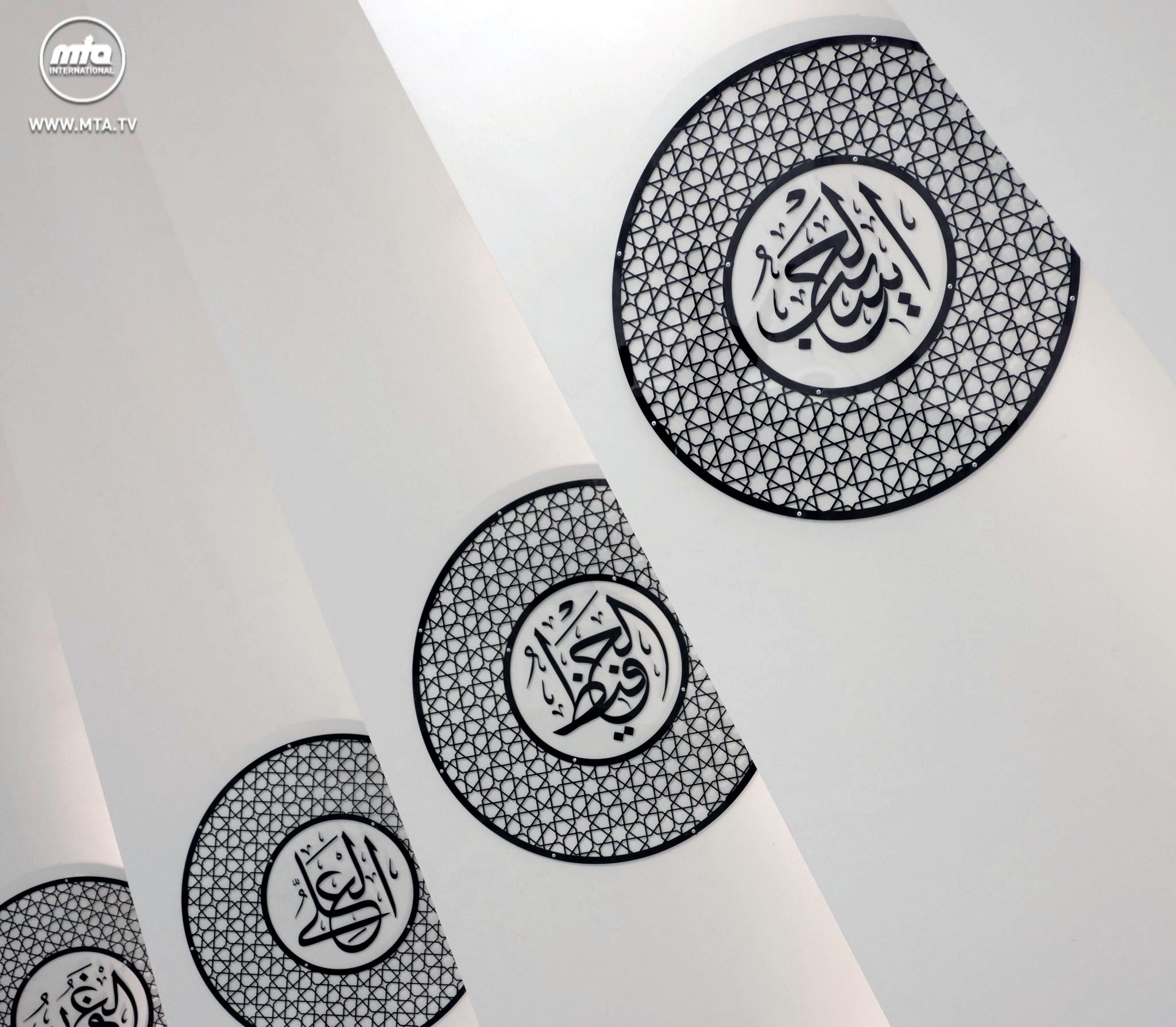
“O Allah forgive me, have mercy on me, guide me and provide for me.” (Sahih Muslim, Kitab adh-dhikri wa d-du‘a, Hadith 6848)
In another narration, it is mentioned that when a person would accept Islam, the Holy Prophetsa would teach him the following prayer; Abu Malik Ashjai’ relates from his father that whenever someone accepted Islam, the Holy Prophetsa would teach them the salat and would then tell them to supplicate in the following words: ی
“O Allah forgive me, have mercy on me, guide me, protect me and provide for me.”
(Sahih Muslim, Kitab ad-dhikri wa d-du‘a, Hadith 6850)
We also recite this same prayer between the two sajdahs [prostrations], however people get up from their prostration and then quickly go back into the second prostration and it does not seem that they even recite this prayer; as if this prayer has no importance to them. However, one ought to recite this whilst carefully pondering over it. And where it mentions to be granted provisions [in this prayer] it refers not only to worldly provisions but also spiritual provisions and means for one to excel in this as well. Thus, we ought to pray with this aspect in mind as well in that while we praise Allah the Almighty, we should also pray for our own reformation, guidance and to excel in our spirituality. We should not only pray for worldly things. In fact, when we pray with great attention for the betterment of our physical and spiritual states then we shall witness every kind of blessing rain down upon us.
Another prayer which has been taught by the Holy Prophetsa has been related by Hazrat Aishara. She states that when the Holy Prophetsa would wake up in the night he would recite:
“O Allah, there is none worthy of worship except You. O Allah I seek Your forgiveness for my sins, and seek Your mercy. O Allah, increase me in knowledge, and let my heart not become perverse after you have guided me and grant me Your mercy. Verily, You alone are the Greatest of providers.” (Sunan Abi Dawud, Abwab an-nawm, Hadith 5061)
In another narration related by Hazrat Anas bin Malikra that whenever the Holy Prophetsa was concerned about a particular matter, he would recite:
“O Living and Self-Subsisting God, by Your mercy I cry for help.” (Sunan atTirmidhi, Abaab ad-du‘a, Hadith 3524)
Hazrat Abdullah bin Amr bin al-Aasra relates that the Holy Prophetsa stated, “The prayer of the one fasting which is made at the time of breaking the fast [iftar] is such that it is not rejected.”
Ibn Abi Mulaikah narrates that when Hazrat Abdullah bin Amrra would break his fast, he would pray:
“O Allah! I ask You by Your mercy, which encompasses all things, to forgive me.” (Sunan Ibn Majah, Kitab as-siyam, Hadith 1753)
Hazrat Umm Salamara narrates that the Holy Prophetsa would supplicate:
“O Allah! Forgive me, have mercy upon me, and guide me to the path that is straight, right and firm.” (Musnad Ahmad ibn Hanbal, Vol. 8, p. 610, Hadith 27126)
If the Holy Prophetsa was offering this prayer, how fervently must we offer these supplications? There is mention of a prayer of the Holy Prophetsa for himself. The blessed wife of the Holy Prophetsa, Hazrat Aishara, relates that he would say in his prayers:
“O Allah, I seek refuge in You from the punishment of the grave, and I seek refuge in You from the trial of the Masih al-Dajjal [Antichrist], and I seek refuge in You from the trials of life and death. O Allah, I seek refuge in You from sin and from debt.”
(Sahih al-Bukhari, Kitab an-azan, Hadith 832)
Someone asked the Holy Prophetsa, “Why do you pray so fervently for protection from debt?” He answered, “If a person is in debt, when they speak, they utter falsehood, and when they make an oath, they break it.” Undoubtedly, the Holy Prophetsa was pure of all of these matters regarding which he was praying, and he was thus offering this prayer for his people’s protection from them – that they refrain from falsehood and the breaking of oaths. We must analyse ourselves to see that if we are offering this prayer, are we truly adhering to these matters? Hence, one should make this prayer that Allah the Almighty safeguards them from these ills, and that He continues to bless us with the good of this world.
Then, there is a prayer of the Holy Prophetsa which Hazrat Aishara has thus narrated. It is a lengthy prayer, which is why I shall read the translation:
to this prayer, pray abundantly to be safeguarded from the trial of the Antichrist, and pray for the protection of the world. There is mention in Sahih al-Bukhari of a prayer of the Holy Prophetsa during the tahajjud [pre-dawn voluntary] prayer. Hazrat Ibn Abbasra narrates that when the Holy Prophetsa would wake up to offer the tahajjud prayer, he would supplicatethis is a lengthy prayer, so I shall read the translation:
“O Allah, I seek Your refuge from indolence and old age, from debt and from sin. O Allah, I seek Your refuge from the punishment of the Fire and the trial and punishment of the grave, from the evil of the tribulation of affluence and from the evil of the tribulation of poverty, and the trial of the Antichrist. O Allah, wash away my sins with the cool water of snow, and cleanse my heart from all the sins as filth is cleaned from white garments, and put a great distance between me and my sins, as great as the distance You have made between the East and the West.” (Sahih alBukhari, Kitab ad-da‘wat, Hadith 6375)
There are many aspects mentioned in this single prayer. If the Holy Prophetsa used to offer this supplication, as I have already mentioned, and the previous Hadith is similar to this, then to what extent should we pay attention to this?
Thus, it is through these prayers that we can bring about a change in our individual lives and benefit the wider community as well. However, at the same time, we must feel the same pain that the Holy Prophetsa would feel when offering these prayers. In fact, he would not only have this fervency for himself, but for his people. Therefore, when offering these prayers, we must always bear in mind the pain that the Holy Prophetsa had in his heart.
The Holy Prophetsa sought special protection from the trial of the Antichrist, which is at its peak in this era. Hence, as the servants of the Promised Messiahas, and thus the true followers of the Holy Prophetsa, we must pay special attention
“O Allah, all praise belongs to You. You are the Sustainer of the heavens and the earth and whatever is in them. All praise belongs to You. Yours is the Sovereignty of the heavens and earth and whatever is in them. All praise belongs to You, You are the light of the heavens and the earth and whatever is in them. All praise belongs to You. You are the Truth, Your promise is true, returning to You is true and Your word is true. Heaven and Hell are true. All the prophets are true and Muhammadsa is true and the promised hour is true. O Allah, I incline towards You. For Your sake I have disputed [the enemy] and sought judgment from You. So forgive all my past and future sins, those which were apparent and those which were hidden. You are the First and the Last. You alone are worthy of worship (or he said) there is none worthy of worship besides You.” (Sahih al-Bukhari, Kitab at-tahajjud, Hadith 1120)
Hazrat Abu Hurairara narrates that a person asked, “O Messengersa of Allah, I heard your prayer last night and I heard you supplicate:
“O Allah, forgive me my sins, expand my home, and bless me in that which You have provided for me.”
The Holy Prophetsa said, “Do you find anything missing in this prayer?” (Sunan at-Tirmidhi, Hadith 3500)
Thus, these are the prayers of the Holy Prophetsa. At the very least, one should learn their translation or their meaning and pray in the same manner.
Then in Sahih al-Bukhari, there is a prayer:
It is recorded that the Holy Prophetsa used to recite this prayer, that, “O Allah, place light in my heart, light in my sight, light in my hearing, light on my right, light on my left, light above me, light below me, light in front of me, light behind me, and grant me light in abundance.” (Sahih alBukhari, Kitab ad-da‘wat, Hadith 6316)
Then, another prayer of the Holy Prophetsa is recorded as follows: Ziyad
Friday 3 May 2024 | AL HAKAM 22 ینٰقَزرَاوَ ینِّدۡھَاوَ ینٰمُحۡرَاوَ یلٰرۡفَغۡا مۡہَلَّلۡا
نٰقَزرَاوَ ینٰفَاعَوَ ینِّدۡھَاوَ ینٰمُحۡرَاوَ ی رۡفَغۡا مۡہَلَّلۡا
کَلۡأسُاوَ یبنِذَلۡ کَرۡفَغْتَسُا مۡہَلَّلۡا ہَلّٰلا کَنِاحۡبَسُ تۡنِا اِلۡا ہُلۡا اِلۡ بَھَوَ ینٰتَیَدۡھَ ذِا دۡعَبَ یبلَّقَ غۡزِتَ اِلۡوَ امُلَّعَ ینِّدَز مۡہَلَّلۡا کَتَمُحۡرَ بٍاھَوْلۡا تۡنِا کَنِا ۃِمُحۡرَ کَنِدۡلۡ نِمُ ی
ثیًغْتَسُا کَتَمُحۡرُبِ مِوْیًقَ ایَ یحِ ایَ
ی رۡفَغْتَ نِأِ ءِىْشَ لَکَ تۡعَسُوَ یتِلۡا کَتَمُحۡرُبِ کَلۡأسُأِ ی إِ مۡہَلَّلۡا
مِوْقَأَلۡا قِیَرۡطَلَّلۡ یينِدۡھَاوَ مۡحۡرَاوَ رۡفَغۡا بٍرَ
نِ مُ کَبِ ذِوْ عَأِوَ ،رًبۡ قِلۡا بٍاذَعَ نِ مُ کَبِ ذِوْ عَأِ يـنِإِ مۡ ہَلَّلۡا ایً حۡمُلۡا ۃِنۡ تَفَ نِ مُ کَبِ ذِوْ عَأِ ،لِاـجَدۡلۡا حِیًسَمُلۡا ۃِنۡ تَفَ مِرُ غْمُلۡاوَ مۡ ثَأمُلۡا نِمُ کَبِ ذِوْ عَأِ يـنِإِ مۡ ہَلَّلۡا تَاـمُمُلۡاوَ
،مۡثَأمُلۡاوَ مِرُغْمُلۡاوَ مِرُہَلۡاوَ لَسَکُلۡا نِمُ کَبِ ذِوْعَأِ ینِّإِ مۡہَلَّلۡا] بٍاذَعَوَ رَانۡلۡا ۃِنۡتَفَوَ رَانۡلۡا بٍاذَعَ نِمُ کَبِ ذِوْعَأِ ی إِ مۡہَلَّلۡا ۃِنۡتَفَ رُش نِمُوَ ،رۡقُفَلۡا ۃِنۡتَفَ رُشوَ ،ىْنۡغْلۡا ۃِنۡتَفَ رُشوَ ،رًبۡقِلۡا ،دَرًبۡلۡاوَ جِلَّثلۡا ءِامُبِ ىَایَاطَخُ لَسَغۡا مۡہَلَّلۡا ،لِاجَدۡلۡا حِیًسَمُلۡا نِمُ ضُیًبِأَلۡا بٍوْثلۡا ىْقِنۡیَ امُکَ ،ایَاطَخَلۡا نِمُ یبلَّقَ قِنِوَ قَرُشَمُلۡا نیبِ تَدۡعَابِ امُکَ ىَایَاطَخُ نیبِوَ ینٰیًبِ دۡعَابِوَ ،سِنِدۡلۡا [ بٍ رُغْمُلۡ ا وَ
نِہَیًفَ نِمُوَ ضِرَأَلۡاوَ تَاوْمُسَلۡا مۡیًقَ تۡنِأِ دۡمُحۡلۡا کَلۡ مۡہَلَّلۡا] کَلۡوَ ،نِہَیًفَ نِمُوَ ضِرَأَلۡاوَ تَاوْمُسَلۡا کَلَّمُ کَلۡ ،دۡمُحۡلۡا کَلۡوَ ،قِحۡلۡا تۡنِأِ دۡمُحۡلۡا کَلۡوَ ،ضِرَأَلۡاوَ تَاوْمُسَلۡا رَوْنِ تۡنِأِ دۡمُحۡلۡا ،قِحۡ ۃِنۡجَلۡاوَ ،قِحۡ کَلۡوْقَوَ ،قِحۡ کَؤُاقِلۡوَ ،قِحۡلۡا کَدۡعَوَوَ مۡلَّسُوَ ہُیًلَّعَ ہَلّٰلا ىْلَّصَ دۡمُحۡمُوَ ،قِحۡ نِوْیًبَنۡلۡاوَ ،قِحۡ رَانۡلۡاوَ کَیًلَّعَوَ تۡنۡمُآ کَبِوَ ،تۡمُلَّسُأِ کَلۡ مۡہَلَّلۡا ،قِحۡ ۃِعَاسَلۡاوَ ،قِحۡ رۡفَغۡافَ ،تۡمُکاحۡ کَیًلۡإِوَ ،تۡمُصَاخُ کَبِوَ ،تۡبَنِأِ کَیًلۡإِوَ ،تۡلَّکَوْتَ تۡنِأِ ،تۡنۡلَّعَأِ امُوَ تَرَرُسْأِ امُوَ ،تَرُخِأِ امُوَ تۡمُدۡقَ امُ ی [کَرًیغۡ ہُلۡإِ اِلۡ وَأِ تۡنِأِ اِلۡإِ ہُلۡإِ اِلۡ ،رُخِؤَمُلۡا تۡنِأِوَ مِدۡقِمُلۡا
ینٰتَقَزرَ امُ یفِ ی کَرَابِوَ یرَادَ ی ی عَسُوَوَ یبنِذِ ی رۡفَغۡا مۡہَلَّلۡا
نِعَوَ ارَوْنِ یعِمُسُ یفِوَ ارَوْنِ یرُصِبِ یفِوَ ارَوْنِ یبلَّقَ ی لَعَجَا مۡہَلَّلۡا یمامُأِوَ ارَوْنِ یتِحۡتَوَ ارَوْنِ ی وْفَوَ ارَوْنِ یرَاسَیَ نِعَوَ ارَوْنِ ینٰیًمُیَ ارَوْنِ ی لَعَجَاوَ ارَوْنِ یفِلَّخُوَ ارَوْنِ
bin Ilaqa relates from his paternal uncle Qutbah bin Malik that the Holy Prophetsa used to pray:
“O my Allah, I seek Your protection from bad morals, evil deeds and evil desires.” (Sunan at-Tirmidhi, Abwab adda‘wat, Hadith 3591)
This is a very concise prayer that everyone can easily recite, “I seek Your protection from bad morals, evil deeds and evil desires.” If a person recites this and does so in a state of fervency, then many evils will be removed, and virtues will be established.
Then, it is recorded in a narration that Hazrat Abu Umamara relates, “The Holy Prophetsa recited so many prayers that we could not remember them. (Whenever he was sitting he would be teaching prayers; he recited many prayers; there were so many prayers that they could not even remember them all.) We submitted to the Holy Prophetsa, ‘O Messengersa of Allah, you have recited many prayers, however, we do not remember any of them. Upon this, the Holy Prophetsa said, ‘Should I not tell you a prayer which is the essence of all those prayers?’ (Listen closely to what he said). The Holy Prophetsa said, “You should pray:
and all those which I committed later; those, that I have committed in secret and those which I have committed in the open. You are the First and the Last and You have power over all things.” (Sahih al-Bukhari, Kitab ad-da‘wat, Hadith 6398)
This is a narration from Sahih alBukhari and these have been narrated so that we may offer these supplications. These prayers have been taught for us. Then a prayer for times of difficulty and anguish is mentioned as follows:
Hadith 3483)
This is another very important prayer to recite these days.
A prayer to protect against the ill intentions of opponents is as follows:
Hazrat Abu Burda bin Abdullahra has narrated this; he says, “My father told me that whenever the Holy Prophetsa perceived danger from a certain people, he would pray in the following words, ‘O Allah, we make Thee our shield against them and take refuge in Thee from their evils.’” (Sunan Abi Dawood, Kitab al-witr, Hadith 1537)
this prayer to Hazrat Khalifatul Masih Ira, then we must recite this prayer even more and with full diligence. If a prayer emanates from the heart, it will draw the blessings of Allah the Almighty.
There is another prayer of the Promised Messiahas, which not only reflects his humility and fear of Allah, but it also reminds us that we must analyse our own conditions. The prayer is as follows:
‘O Allah, we seek from You the very good which Your Prophet Muhammadsa sought. We seek Your refuge from every evil which Your Prophet Muhammadsa sought Your refuge from. You are the true Helper; we pray unto You Alone. Without the help of Allah, we possess not the capability of virtue, nor the strength to safeguard against the attacks of Satan [and there is no might or power except with Allah].”’” (Sunan at-Tirmidhi, Hadith 3521)
If we were to offer this prayer, then not only would we increase in our love for the Holy Prophetsa, but we would also offer such all-encompassing and comprehensive prayers from the depths of our hearts.
Then there is a prayer for pardon and forgiveness; Hazrat Abu Musa Ash’ari’sra son relates from his father that the Holy Prophetsa used to pray:
Hazrat Ibn Abbasra narrates that that the Holy Prophetsa used to pray the following during times of difficulty: “There is none worthy of worship but Allah, the Mighty, the Forbearing. There is none worthy of worship but Allah, Lord of the Magnificent Throne. There is none worthy of worship but Allah, Lord of the heavens and Lord of the earth, and Lord of the Noble Throne.”
(Sahih al-Bukhari, Kitab ad-da‘wat, Hadith 6346)
There is a prayer for times of trials. Hazrat Abu Hurairara narrates:
Hazrat Abu Hurairara narrated that the Holy Prophetsa used to seek refuge from the trouble of affliction, meeting with wretchedness, an evil decree, and the gloating of enemies. (Sahih al-Bukhari, Kitab ad-da‘wat, Hadith 6347)
There is a prayer to be saved from the evils of this world:
These days, Ahmadis should also recite this prayer a great deal. May Allah the Almighty protect us from the evil of the opponents.
“O my Lord, forgive my mistakes, my lack of knowledge, all of my transgression in my matters about which You know best. (This is a prayer being made by the Holy Prophetsa, in whom such evils are not even possible to fathom. He possessed only virtue. However, he said these things in order to teach his people.) O my Allah, forgive my faults; the mistakes I have made knowingly and out of ignorance, all which I would have committed. O Allah, forgive all those faults which I have committed before
Mus’ab bin Sa’d bin Abi Waqqasra relates from his father, who said, “The Holy Prophetsa taught us the following words just as someone teaches how to read and write (he lay emphasis on them just as is done in teaching how to read and write. What was that prayer that he taught?):
‘O Allah, I seek Your protection from miserliness, I seek Your protection from cowardice, and I seek Your protection from being returned to the worst part of life. I seek Your protection from the trials of this world and from the torment of the grave.’”
(Sahih al-Bukhari, Kitab ad-da‘wat, Hadith 6390)
This is a very comprehensive prayer.
Then there is a prayer for attaining guidance; the transaltion of the narration is that Imran bin Hussainra states, “The Holy Prophetsa said to my father Hussain, ‘If you had accepted Islam, I would have taught you two statements which would have benefitted you.’” He says, “When Hussain accepted Islam, he said, ‘O Messengersa of Allah, teach me those two statements which you had promised me.’ Upon this, the Holy Prophetsa said, ‘Say:
“O Allah! Inspire in me guidance and protect me from the evils of my soul.”’” (Sunan at-Tirmidhi, Abwaab-ul-Da’waat,
Now I will mention those prayers which have been taught to us by the Promised Messiahas, which include some directives regarding prayer and some prayers themselves. In a letter addressed to the Promised Messiahas, Maulvi Nazir Hussain Sahib Sakha Dehlvi wrote, “What is the method of attaining attentiveness?” How can one increase their attention towards Allah the Almighty? Upon this, the Promised Messiahas replied, “May the peace, mercy and blessings of Allah be upon you. The method is to continue praying for yourself in salat and do not become satisfied with offering prayer casually and inattentively. Rather, offer salat with as much attention as is possible. If you find yourself unable to focus, then in each of the five prayers, after every rak‘ah [unit of prayer] stand up and pray (meaning whilst in the standing position of the prayer), “O God! O Almighty God of Power and Might! I am a sinner, so much so that the poison of sin has penetrated my heart and every fibre of my being and I am unable to attain fervour and focus in prayer. By Your Grace and Benevolence, pardon my sins and forgive my faults. Soften my heart and establish within it Your grandeur, fear, and love, so that in this way, my hardheartedness may be removed, thereby enabling me to focus in Salat.” (Maktubate-Ahmad [2015], Vol. 5, p. 471)
One must pray to Allah the Almighty in order to establish focus in Salat.
Then, the Promised Messiahas offered the following prayer:
“O my Beneficent, O my God, I am a worthless servant of Yours, sinful and forgetful. You have observed me commit wrongdoing after wrongdoing, yet bestowed bounty after bounty. You observed sin after sin, yet bestowed favour after favour. You have always covered my faults and furnished me with countless of Your blessings. Now too, have mercy upon an incapable and sinful person such as myself and forgive my boldness and ingratitude. Save me from this grief, for there is no escape except in You. Ameen.” (Maktubat-e-Ahmad [2015], Vol. 2, p. 10)
In my opinion, this is a prayer that we must recite on a daily basis. We should analyse ourselves. The Promised Messiahas wrote this prayer in a letter to Hazrat Khalifatul Masih Ira. Keeping in mind his status and eminence, we ought to ponder as to how much we are in need of reciting this prayer. If the Promised Messiahas wrote
“O Lord of all the worlds! It is beyond me to offer You gratitude for all Your favours. You are most Merciful and Compassionate, and the bounties that You have conferred upon me are countless. Forgive me my sins, be I am ruined. Fill my heart with sincere love for You, so that I may receive life. Cover my faults and allow me to perform such deeds which become the source of Your pleasure. I seek refuge in Your noble countenance lest your punishment befalls me. Have mercy, have mercy, have mercy, and save me from the calamities of this world and the hereafter. For all grace and compassion is in Your hand. Ameen.” (Malfuzat [1984], Vol. 1, p. 235)
Then there is a prayer that the Promised Messiahas penned in the beginning of Paigham-e-Sulh [A Message of Peace] which we must recite profusely. The Promised Messiahas wrote:
“O my Almighty God, my Beloved Guide! Show us the path which leads the righteous and the sincere to Thee. And save us from treading the path which leads to carnal desires, malice, spite and worldly pursuits.” (Paigham-e-Sulh, Ruhani Khazian, Vol. 23, p. 439)
In other words, we must always give precedence to our faith.
Furthermore, whilst imparting guidance to us, the Promised Messiahas stated:
“The most excellent prayer is one that seeks the pleasure of Allah the Almighty and grants protection from sin, because it is through sin that the hearts become hardened and a person becomes a slave to the material world. We ought to pray to Allah the Almighty to protect us from sin, as sin causes our hearts to become hardened, and to show us the way which leads to His pleasure.” (Malfuzat [1984], Vol. 7, p. 39)
There is another prayer of the Promised Messiahas:
“We are Your sinful servants and our inner self has overcome us; forgive us and save us from the afflictions of the hereafter.” (Al-Badr, Vol. 2, p. 30)
Whilst beseeching for the world to be reformed, there is a prayer of the Promised Messiahas:
“O God, the Omnipotent! Even though it is Your practice from time immemorial that You grant intellect to children and the unlettered, and shroud the eyes and hearts of worldly philosophers and thinkers with a dark covering, but I most humbly submit at Your threshold for You to bring over a party from among them into this fold, (i.e. for God Almighty to bring a group of people towards the Jamaat who are from among the scholars) just as You have bestowed some already. Grant them the eyes, ears and hearts with which they can see, hear and understand and enable them to value the great favour which You have bestowed at its appointed time (i.e.
23 AL HAKAM | Friday 3 May 2024
لِامُعَأَلۡاوَ قَاِلخُأَلۡا تَارُکَنۡمُ نِمُ کَبِ ذِوْعَأِ ی إِ مۡہَلَّلۡا] [ءِاوْھَأَلۡاوَ
دۡمُحۡمُ کَیًبَنِ ہُنۡمُ کَلۡأسُ امُ رًیخُ نِمُ کَلۡأسَنِ انِإِ مۡہَلَّلۡا] تۡنِأِوَ دۡمُحۡمُ کَیًبَنِ ہُنۡمُ کَبِ ذِاعَتَسُا امُ رُش نِمُ کَبِ ذِوْعَنوَ [ہَلّٰلابِ اِلۡإِ ۃِوْقَ اِلۡوَ لِوْحۡ اِلۡوَ غۡاِلبَلۡا کَیًلَّعَوَ نِاعَتَسَمُلۡا
تۡنِأِ امُوَ ،ہُلَّکَ یرُمُأِ یفِ یفِارُسْإِوَ یلَہَجَوَ یتِئَیًطَخُ ی رۡفَغۡا بٍرَ] ،ی زِھَوَ یلَہَجَوَ یدۡمُعَوَ ىَایَاطَخُ ی رۡفَغۡا مۡہَلَّلۡا ،ینٰمُ ہُبِ مۡلَّعَأِ امُوَ تَرُخِأِ امُوَ تۡمُدۡقَ امُ یلٰ رۡفَغۡا مۡہَلَّلۡا ،یدۡنۡعَ کَلۡذِ لَکَوَ ىْلَّعَ تۡنِأِوَ ،رُخِؤَمُلۡا تۡنِأِوَ ،مِدۡقِمُلۡا تۡنِأِ ،تۡنۡلَّعَأِ امُوَ تَرَرُسْأِ [رُیَدۡقَ ءِىْشَ لَکَ
شِرُ عَلۡا بٍرَ ہَلّٰلا اِلۡإِ ہُلۡإِ اِلۡ ،مۡیً لَّحۡلۡا مۡیً ظُعَلۡا ہَلّٰلا اِلۡإِ ہُلۡإِ اِلۡ بٍرَوَ ضِرَأَلۡا بٍرَوَ تَاوْ مُسَلۡا بٍرَ ہَلّٰلا اِلۡإِ ہُ لۡإِ اِ ،مۡ یًظُعَلۡا مۡیَرُ کُلۡا شِرُعَلۡا
دۡہَجَ نِمُ ذِوْعَتَیَ مۡلَّسُ وَ ہُیًلَّعَ ہَلّٰلا یلَصَ ہَلّٰلا لِوْسُرَ نِاکَ ءِادۡعَأَلۡا ۃِتَامُشَوَ ،ءِاضۡقِلۡا ءِوْسُوَ ،ءِاقِشَلۡا کَرَدَوَ ،ءِاِلبَلۡا
ذِوْعَأِوَ ،نبۡجَلۡا نِمُ کَبِ ذِوْعَأِوَ ،لَخَبَلۡا نِمُ کَبِ ذِوْعَأِ ینِّإِ مۡہَلَّلۡا ،ایًنِدۡلۡا ۃِنۡتَفَ نِمُ کَبِ ذِوْعَأِوَ ،رُمُعَلۡا لِذِرَأِ ىْلۡإِ دَرُنِ نِأِ نِمُ کَبِ رًبۡقِلۡا بٍاذَعَوَ
یسفَن رُش نِمُ ینِّذَعَأِوَ ،یدۡشَرَ ینٰمُہَلۡأِ مۡہَلَّلۡا
مۡ ھَرَوَرُش نِمُ کَبِ ذِوْ عَنوَ ،مۡ ھَرَوْ حۡنِ یفِ کَلَّعَـجَنِ انِإِ مۡ ہَلَّلۡا
the advent of the Promised Messiahas) and to be mindful of it. If You so desire, You can do this, for there is no such thing as impossible for You. Ameen.” (Izala-eAuham, Ruhani Khazain, Vol. 3, p. 120)
Even today it is vital for us to follow the Promised Messiahas in offering this prayer. Only if the world, and in particular the Muslim Ummah, reform themselves and turn towards the Promised Messiahas can they reclaim their former glory, and they will be saved from the humiliation and contempt they face today. May Allah the Almighty grant reason to our leaders and scholars, and there is bound to be some from among them who have a virtuous disposition, may Allah bring them into this fold. Thus, we must offer this supplication with great fervency and passion.
Then there is mention of a prayer which the Promised Messiahas wrote in a letter to Hazrat Nawab Muhammad Ali Khan Sahibra. He wrote that one ought to pray abundantly and make humility a salient feature of oneself. One should not simply offer supplications out of habit or custom, as this is futile. A prayer which is supplicated as a mere custom or ritual is of no value. In terms of supplications, one ought to make it a habit that aside from the compulsory prayers, go in seclusion and beseech with the utmost humility in one’s own language. i.e. aside from the compulsory prayers, one ought to offer voluntary prayers. Offer prayers with humility as if an insignificant being is supplicating in the royal court of God Almighty as follows:
“O Lord of all the worlds! It is beyond me to offer You gratitude for all Your favours. You are most Merciful and Compassionate, and the bounties that You have conferred upon me are countless. Forgive me my sins, lest I be ruined. Fill my heart with sincere love for You, so that I may receive life. Cover my faults and allow me to perform such deeds that become the source of Your pleasure. I seek refuge in Your noble countenance lest your punishment befall me. Have mercy and save me from the calamities of this world and the hereafter, for all grace and compassion is in Your hand. Ameen.” (Maktubat-e-Ahmad [2015], Vol. 2, pp. 158-159)
In order for these prayers to be granted acceptance, it is necessary for us to send salutations upon the Holy Prophetsa in abundance. Without invoking salutations, our prayers remain suspended in the heavens and do not reach Allah the Almighty.
“As I have mentioned, the World War has started. The
war
has
spread from the borders of Palestine to other areas. The attack on the Iranian consulate in Syria is a grave crime under every law, but because it was carried out by Israel, the world is silent. Now the scope of the war will widen as a result of this. There is an uproar owing to the killing of aid workers and some people have begun to speak out against it. But they were silent when it came to
the killing of innocent Palestinians. They are now feeling the pain when it is their own people who have been killed. Nonetheless, we should pray that may Allah the Almighty save humanity and enable us to do justice in offering supplications.
Allah the Almighty grant us the opportunity to offer these heartfelt prayers, and may we offer supplications in our own languages as well. May we offer prayers by developing a state of anguish and fervency, wherein these prayers emanate from the depths of our hearts. Also, pray so that the blessings of Ramadan remain with us forever. May we attain the blessings of this Friday and all subsequent Fridays.
[“Bless, O Allah, Muhammadsa and the people of Muhammadsa, as Thou didst bless Abrahamas and the people of Abrahamas Thou art indeed the Praiseworthy, the Glorious. Prosper, O Allah, Muhammadsa and the people of Muhammadsa, as Thou didst prosper Abrahamasand the people of Abrahamas. Thou art indeed the Praiseworthy, the Glorious.”]
We must recite this profusely. May
Editor-in-Chief:
Pray earnestly for those who are imprisoned solely for the crime of professing belief in the Promised Messiahas, whether they are in Pakistan, in Yemen or in other places. May Allah the Almighty create the means for their release and repel the evil of the mischievous ones back on to them.
Pray profusely that may we and our progeny be safeguarded from the flames of war and its consequences; may Allah the Almighty protect us from this. It seems now as that the war is at our doorstep, in fact, it has already begun. The world war
has begun, however, world leaders are not worried in the slightest. They think that they will remain safe and ordinary citizens will perish. But this is a figment of their imagination. They are giving precedence to their egos. They have no concern for their people. These are the schemes of the Antichrist, they deceive the people by saying they do such and such things for them. Now people are beginning to raise their voices in certain areas. But their ploys have distanced the masses from God Almighty. They [i.e., leaders] were distant from Him already and furthermore, every form of indecency and evil is rife and this is something that displeases Allah the Almighty. The consequence of this is that they will succumb to Allah the Almighty’s wrath. In all this, it is vital for Ahmadis to draw closer to God Almighty and to develop fervency in our prayers, so that we can remain protected from their evil. Pray for those people among them who have a virtuous disposition that may they remain
Qaasid Muin Ahmad | Executive Editors: Ataul Fatir Tahir, Aqeel Ahmed Kang | Research:
protected from their evil.
As I have mentioned, the World War has started. The war has spread from the borders of Palestine to other areas. The attack on the Iranian consulate in Syria is a grave crime under every law, but because it was carried out by Israel, the world is silent. Now the scope of the war will widen as a result of this. There is an uproar owing to the killing of aid workers and some people have begun to speak out against it. But they were silent when it came to the killing of innocent Palestinians. They are now feeling the pain when it is their own people who have been killed. Nonetheless, we should pray that may Allah the Almighty save humanity and enable us to do justice in offering supplications.
(Official Urdu transcript published in the Daily Al Fazl International, 26 April 2024, pp. 1-8. Translated by The Review of Religions.)
Friday 3 May 2024 | AL HAKAM 24
Awwab Saad Hayat, Iftekhar Ahmed | Associate Editors: Jalees Ahmad, Ata-ul-Haye Nasir Translations: M Adam Ahmad | Design: Tahmeed Ahmad | Social Media: Romaan Basit | © Al Hakam 2024
ىْلَّعَ تۡیًلَّصَ امُکَ دۡمُحۡمُ لِآ ىْلَّعَوَ دۡمُحۡمُ ىْلَّعَ لَصَ مۡہَلَّلۡا کَرَابِ مۡہَلَّلۡا دۡیًجَمُ دۡیًمُحۡ کَنِإِ مۡیًھَارُبِإِ لِآ ىْلَّعَوَ مۡیًھَارُبِإِ ىْلَّعَوَ مۡیًھَارُبِإِ ىْلَّعَ تۡکَرَابِ امُکَ دۡمُحۡمُ لِآ ىْلَّعَوَ دۡمُحۡمُ ىْلَّعَ دۡیًجَمُ دۡیًمُحۡ کَنِإِ مۡیًھَارُبِإِ لِآ






































































































































